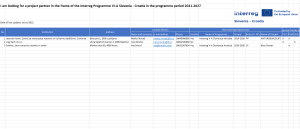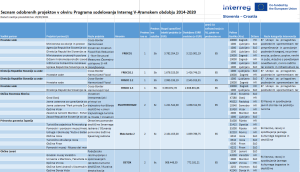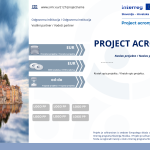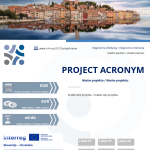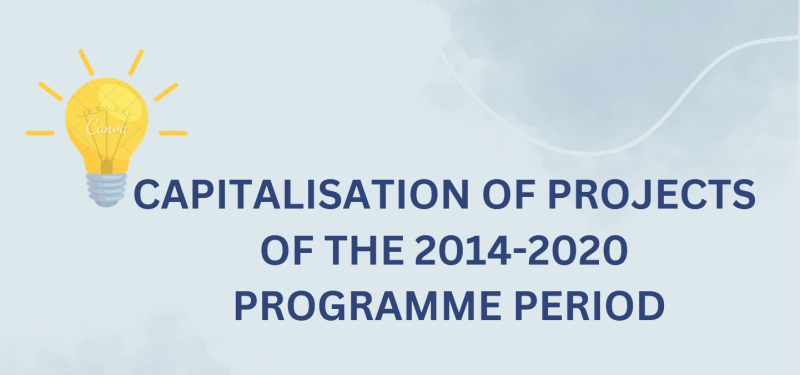Looking for a Project Partner?
Welcome to our applicant matchmaking community!
This community will help you to get in touch with other organisations from Slovenia and Croatia and facilitate bilateral exchanges in view of the upcoming call for project proposals of the Interreg Programme Slovenia – Croatia that opened on 24 March 2023 in all Priority with an indicative budget of 36,2m EUR.
If you are interested in joining a project idea or in finding partners for your own project idea, this community is the best place to start your cooperation!
List of Potential Project Partners will be updated daily.
List of Potential Project Partners
Approved Projects
16
Approved Standard Projects
72
Approved Small-scale Projects
PRIORITY 1

Summaries of Projects in 1st deadline – SO 2.4
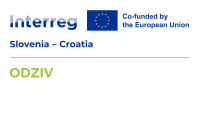
Project title: Strengthening the ability of cross-border response to natural disasters
Project budget (ERDF co-financing): EUR 796.479,68
Project duration: 1. 3. 2024 – 31. 8. 2026
Project Partners: Regionalna razvojna agencija za Podravje – Maribor, Rdeči križ Slovenije – Območno združenje Maribor, Javna ustanova za razvoj Međimurske županije REDEA, Hrvatski Crveni križ – Gradsko društvo Crvenog križa Čakovec
The cross-border area along the border between Slovenia and Croatia faces various challenges in the field of risk management and disaster recovery, where a common approach is needed. These challenges include in particular floods along the river corridors of the Mura, Drava and Sava rivers, and more recently earthquakes, fires and the humanitarian crisis linked to illegal migration flows and refugees. In the face of existing and potential new challenges, preparedness for natural and other disasters and emergencies is crucial to ensure the safety in the cross-border area.
The solidarity of both professional teams and the civilian population is at a high level, as seen in the response to major crises such as the earthquake in Petrinja, the fire in the Karst region, or the attack on Ukraine, where the willingness to help and to contribute by collecting humanitarian aid was very high, but there was an organizational problem of logistics and distribution of materials, as well as management of the human resources that were involved in dealing with and recovering from the consequences of elementary disasters and emergencies.
The ODZIV project will lay the foundations for a joint response by key stakeholders (such as: firefighters, civil protection, Red Cross) from both sides of the border, thus strengthening the capacity to respond to natural disasters in the cross-border area of Slovenia and Croatia. The project will analyze the security situation, update response protocols, create new cross-border cooperation and establish joint training for cross-border disaster risk management and disaster recovery.
An overview of the response preparedness situation will be carried out for the cross-border regions involved in the project (Podravska region, Međimurje County, Primorsko-Goranska County):
– identification of risks and needs in the cross-border area
– recording the organizations and their available equipment and logistic capacities for responding to elementary and other disasters and emergencies,
– Cross-border comparison of response protocols to natural and other disasters and emergencies.
Based on the overview, an updated protocol will be developed to allow a joint cross-border response of those organizations responsible for the response, depending on the type of risk (e.g. fire brigades). This will strengthen the capacity for joint action, allowing the pooling of resources (both material and human) to combat or deal with the consequences of elementary disasters.
As most cross-border areas are geographically rugged rural areas where the nearest response units are not always on the same side of the border as the disaster, and as disasters such as fire, flood or earthquake are not limited in cause or consequence to the area bounded by national borders, a cross-border approach is essential to enhance response capacity.
In order to ensure the quality implementation of the project, which will achieve the set objectives, a cross-border partnership has been established, which includes the Regional Development Agency for Podravje – Maribor (lead partner), the Slovenian Red Cross – Maribor Regional Association, the Maribor Fire Brigade, the Public Institution for Development of Međumurje County REDEA, the Crveni Križ Association Čakovec and the Public Fire Brigade of Krk. In addition, partners from both sides of the border will directly inform and involve other key regional and national stakeholders (like ministries of both Slovenia and Croatia, the Administration for Protection and Rescue, the Civil Protection Directorate, the Croatian Vatrogasna Zajednica, the Fire Brigades Association of Slovenia, all 102 territorial units [municipalities and cities] of the three regions involved in the project, and other key stakeholders) in the activities.
In addition to the situation survey, the inventory of equipment and the preparation of response protocols to enable a cross-border response, the partners of ODZIV project will also set up a joint cross-border centre, POLIGON, where response organizations will prepare together to combat or deal with the consequences of elementary disasters. POLIGON will be located on the island of Krk and will provide training for rescue divers, as well as first aid units, which will be trained to carry out activities in their own area of expertise, as well as to work together in the cross-border area. The location was chosen because it provides sufficient diving depth for the acquisition and renewal of diver-rescuer licensees, which is not possible in the rivers or the Slovenian coastal area.
Source: application form SIHR00057
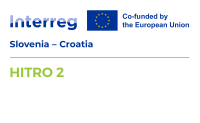
Project title: Joint operational management and action of protection and rescue forces in the event of disasters due to climate change and other disasters in the cross-border area in the valley of the Kolpa River
Project budget (ERDF co-financing): EUR 943.995,84
Project duration: 1. 3. 2024 – 31. 8. 2026
Project Partners: Gasilska zveza Črnomelj, Občina Črnomelj, Grad Vrbovsko, Vatrogasna zajednica grada Vrbovskog
The common challenge of the program area, which we tackle through cross-border cooperation in our project is the sensitivity of the program area to climate change linked to the ageing of the population in the border area along the Kolpa river. The increase in the number of climate change disasters linked to adverse demographic indicators in the cross-border area has a negative impact on the ability of the protection and rescue system, which is primarily based on volunteering. The ageing of the population and the exodus of young people from the partner area critically reduces the number of that part of the population, which is crucial that the protection and rescue system is effective and that it works at all.
With unfavourable demographic indicators in the cross-border area, both on the Slovenian and Croatian side, where the area of Primorsko-goranska županija with City of Vrbovsko in Croatia stands out mainly, the areas in the Kolpa river valley are the most underdeveloped and demographically depleted as a result of the natural decline and emigration of the population. Therefore cross-border measures to strengthen the resilience and capacity of the population are necessary to adapt to climate change and related disasters.
As a result, local communities responsible for organizing a local-level protection and rescue system are not sufficiently resilient to extreme natural events, which are increasingly occurring and affecting their inhabitants.
The overall objective of this project is to establish an effective protection and rescue system for the management of climate change and other disasters in the cross-border area of the Municipality of Črnomelj and City of Vrbovsko for swift and effective action to help and supply the endangered population and protect property and empower local people to respond properly in the face of an accident.
The project plans to upgrade the results of the HITRO project to increase the number of qualified persons by setting up a Joint cross-border operational unit for protection and rescue – HITRO 2, expanding the disaster action area to City of Vrbovsko and to other types of disasters, in addition to earthquake and floods. As things are currently under way, we want to improve the impact of disaster management over the course of the project by establishing joint management of large-scale interventions in the cross-border area and empower the command staff, who will be technically and professionally qualified to conduct interventions that last longer period of time.
The main outputs of the project will be:
– prepared and signed Operation plan of the Joint cross-border operational unit for protection and rescue – HITRO 2,
– pilot measures – testing the usability of virtual reality technology in the cross-border area,
– jointly formulated Recommendations for the further implementation of virtual reality technology equipment,
– organisations that cooperate across borders and
– display operational tactical exercises.
Local and national public authorities, interest groups including NGOs and the general public will benefit from the main outputs of the project.
A Joint cross-border operational protection and rescue unit – HITRO 2 will be established, equipped and trained to respond rapidly and effectively to climate change and other disasters in the cross-border area .
This project will extend good practices of organizing a Joint cross-border operational unit for protection and rescue – HITRO from the field of protection and rescue from the project HITRO to the City of Vrbovsko and thus also to the upper stream of the Kolpa river. The creation of a joint cross-border disaster intervention unit, which will also have a qualified and equipped staff to jointly manage large-scale interventions in the cross-border area, a new important protection and rescue forces will be created in this part of the cross-border area as well.
As part of the project, we will implement pilot actions – testing the usefulness of virtual reality technology in the cross-border area. Virtual fire-fighting training is fully in line with the principles of the European Green Deal and the EU Action Plan: “Towards a Zero Pollution for Air, Water and Soil”. New population awareness practices will be implemented in a completely safe environment for participants in an environmentally friendly way (without CO2 emissions). Systemic awareness of the population through virtual reality will be the first of its kind in the program area. By using this technology by children and youth, we will attract them to volunteering. Children and youth need experience in the areas of protection and rescue, volunteering, community participation and cooperation between generations.
Cross-border cooperation between project partners will continue after the project has been completed and will benefit a wider group of stakeholders (general public, local public authorities, protection and rescue forces authorities).
Source: application form SIHR00195
Summaries of Projects in 1st deadline – SO 2.7
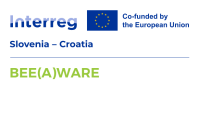
Project title: Multidisciplinary capacity building and development of new solutions in order to conserve, protect, and enhance endangered wild pollinator communities and honeybee within the ecosystem
Project budget (ERDF co-financing): EUR 822.491,36
Project duration: 1. 3. 2024 – 31. 8. 2026
Project Partners: Javna ustanova za razvoj Međimurske županije REDEA, Međimurska priroda – Javna ustanova za zaštitu prirode, Javni zavod Krajinski park Goričko, Galerija – Muzej Lendava / Galéria – Múzeum Lendva, Nacionalni inštitut za biologijo
Project named”Multidisciplinary capacity building and development of new solutions in order to conserve, protect, and enhance endangered wild pollinator communities and honeybee within the ecosystems. Project acronym: BEE(A)WARE.” is focused on addressing common territorial challenges. While conducting the analysis of problems and needs, it was determined that the most prominent issues are related to a drastic reduction in the number of wild pollinators and honey bees. Furthermore, there is an issue with lack of communication and collaboration among the nature conservation experts, beekeepers, farmers, and other target groups, resulting in uncoordinated and individual measures that do not solve the aforementioned problem as a whole. In order to create a strong, resilient community and a sustainable ecosystem, it is necessary to engage nature conservation experts and beekeepers in educational activities.Activities aimed at raising awareness among the general public are highly needed to create a general understanding and to change the attitudes and perceptions of general population in the program area in order to emphasis the importance and contribution of pollinators for biodiversity. Therefore, the main goal of the BEE(A)WARE project is to enhance knowledge and existing practices in the protection and preservation of wild pollinators and honey bee in the cross-border area, using common multidisciplinary and integrated tools. By introducing innovative solutions and involving target groups such as nature conservation experts, beekeeping associations, farmers, representatives of local and regional self-governments, and the general public in the project’s strategic activities, will contribute to the better systematic collection, exchange of information and knowledge among the partner countries. The main outcomes of the project are focused on establishing a long-term cooperation among partners and target groups through the creation of a Cross-border pollinator protection Network. In order to develop concrete measures and recommendations for enhancing the population of wild pollinators, honey bee, and their natural habitats, a joint Strategic Plan for Sustainable conservation of wild pollinators and honeybee will be developed for the project’s pilot area, which includes Mura-Drava-Danube Biosphere Reserve and the Goričko Nature Park.The first pilot intervention will involve joint development, testing, and validation of a wild pollinator monitoring system, since solution like this is currently not established in the mentioned pilot area. This system will collect data on key pollinator communities, identify significant threats they face, and provide accompanying conservation measures for mentioned species. Additionally, an outdoor educational facility will be established to raise awareness about wild pollinators, and „honey corridors“ will be created.The second pilot intervention, focused on sustainable beekeeping, will establish a solution for monitoring climate parameters to create a common database for beekeepers in the Lendava and Međimurje region. Monitoring climate parameters allows beekeepers to be aware of risks and take measures to mitigate their negative impact. To promote sustainable beekeeping and the transfer of good practices, a dedicated educational workspace for beekeepers will be set up, including a permanent exhibition on sustainable beekeeping and a practical apiary for the further education of younger generations. Through numerous joint specialized education sessions, workshops, training, and demonstrations, experts and beekeepers will gain specific knowledge and skills, primarily through the “train the trainer” method. The importance of cross-border cooperation in the implementation of these activities is evident, as the identified challenges are common, and a joint approach is necessary due to the larger area of operation, the availability of a greater amount of knowledge, and the possibility of involving a larger number of professional experts. The project’s innovativeness is evident in the establishment of new solutions that will create databases relevant for further research on the abundance and vulnerability of pollinators. Moreover, involving various target groups in concrete project activities will contribute to the project’s quality, as it will receive input and feedback from stakeholders that are directly involved in the project’s theme.By adopting a participatory and collaborative approach, a long-term and sustainable impact will be achieved through informing and educating a broader audience and target groups, as increased knowledge and awareness lead to long-term changes in thinking, habits, behavior, and attitudes. This will ultimately have a positive impact on the coexistence of humans and nature. This is precisely the importance of the project BEE(A)WARE, as its name suggests, with an emphasis on raising awareness and respecting all components and communities within the ecosystems
Source: application form SIHR00062
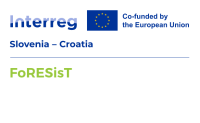
Project title: Preservation and evaluation of forest and agricultural ecosystems in the cross-border area
Project budget (ERDF co-financing): EUR 1.179.812,73
Project duration: 1. 3. 2024 – 31. 8. 2026
Project Partners: Grad Opatija, Komunalno društvo Dubašnica d.o.o., Hrvatski šumarski institut, Gozdarski inštitut Slovenije, Univerza na Primorskem – Fakulteta za matematiko, naravoslovje in informacijske tehnologije, Nativa, Inštitut za trajnostno rast
The FoRESisT project is aligned with the specific goal of strengthening the protection and preservation of nature, biological diversity, and green infrastructure. The project aims to improve the conservation status of habitats, support biodiversity, and evaluate ecosystem services in the program area, especially in relation to forests, agricultural, and freshwater habitats, which are facing poor conservation status due to a number of threats. The project also recognizes the importance of cross-border cooperation in achieving this goal, given that habitats and species know no borders. By promoting a coordinated response among stakeholders from different sectors and levels on both sides of the border, the project aims to achieve better-connected nature-based solutions that can contribute to mitigating threats and solving common territorial challenges, such as habitat loss and fragmentation, invasive alien species, diseases, pollution, urbanization, anthropogenic impact, tourism, climate change, etc. All in all, the FoRESisT project is well positioned to contribute to the specific objective of the call and wider objectives of the Interreg SI-HR program, given that it has a comprehensive approach that aims to address the protection and preservation of endangered habitats and landscapes in the program area, primarily forest and agricultural ecosystems, through three work packages with specific objectives and with a strong emphasis on joint cross-border cooperation and communication. The project is divided into three WPs, with WP1 focused on the analysis and definition of conservation measures, WP2 focused on the implementation of pilot actions and the development of a common solution, and WP3 focused on educational and awareness-raising activities. The main outputs and results of the project include the Joint cross-border strategy for the conservation of forest and agricultural ecosystems, the establishment of a cross-border network of experts – FoRESisT Expert Group, three ecosystem protection pilot actions, the Model of sustainability and transferability of forest and agricultural ecosystem conservation measures, and jointly organized public cross-border event, all for the purpose of improving cooperation and management of Natura2000 areas and other ecological important areas in the cross-border area. Furthermore, the project activities will include mutual learning and joint activities between the six project partners to bring about change in priority areas and improve the resilience and adaptability of organizations and communities. The expected change is to improve the understanding and ecological responsibility of all stakeholders regarding environmental threats and habitat resilience. The project will contribute to the protection of nature, which is a priority area supported by the program, and will support objectives related to biological diversity. This can help prepare new or improved activities to prevent biodiversity loss and focus on communication and education of visitors and residents to change behavior and attitudes towards nature and the environment. The approach of the project is to promote cross-border cooperation among PPs and stakeholders in order to exchange knowledge and experience, develop plans and strategies for the preservation of biodiversity and ecosystems, implement innovative solutions through pilots, and evaluate ecosystem services. The project is also aimed at strengthening the capacity of relevant actors to include forest resilience in their policies and practices, increasing awareness and participation of the general public, and promoting sustainable forest management practices. The project is innovative in several ways. First, the research of ecosystem services, especially in the field of agroforestry, which is a relatively new and unexplored area, represents a novelty in the approach of the project. Second, the project aims to integrate innovative nature-based solutions, to increase forest resilience. Thirdly, the project promotes the involvement and participation of relevant stakeholders and the general public in the process of creating strategic documents in a participatory manner, which is crucial for the long-term sustainability of the results and outcomes of the project. Finally, it is also expected that the project’s emphasis on knowledge transfer and capacity building will have a lasting effect beyond the duration of the project. In conclusion, the FoRESisT project will improve forest ecosystem management in the Natura 2000 network (and wider in other ecological important areas) by strengthening the capacity of public bodies, promoting habitat conservation and valorization of ecosystem services, involving local communities and stakeholders, and contributing to biodiversity conservation. The project will develop innovative methods and approaches, provide educational activities, and encourage cooperation and exchange of knowledge between partners and relevant actors.
Source: application form SIHR00099
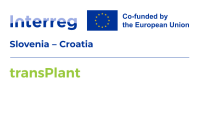
Project title: Integral cross-border protection of Natura 2000 plant species
Project budget (ERDF co-financing): EUR 1.326.343,54
Project duration: 1. 4. 2024 – 30. 9. 2026
Project Partners: Prirodoslovni muzej Rijeka, Znanstvenoraziskovalni center Slovenske akademije znanosti in umetnosti, Istarska županija, Univerza na Primorskem – Fakulteta za matematiko, naravoslovje in informacijske tehnologije, Javna ustanova »Nacionalni park Risnjak«, Javni zavod park Škocjanske jame, Općina Matulji, Zavod Republike Slovenije za varstvo narave
Throughout Earth’s history, global biodiversity has experienced natural but relatively slow and sometimes sudden ups and downs, often due to climate change or catastrophic events. Since the Anthropocene, humans have been one of the main factors influencing global and local patterns of biodiversity. This influence can be indirect (by affecting global or regional climate change) or direct, by threatening organisms and their habitats. Species living in areas with pronounced ecological gradients in rugged karst landscapes are particularly sensitive to climate change. Numerous studies have shown that the upper elevational limits of forests are shifting to higher elevations, meaning that organisms and their habitats above the tree line are increasingly at risk. While models have been developed for habitat loss and species declines due to upward shifts in the tree line, there are not yet models that address downward shifts in the natural lower tree line, particularly in the Cross-Border Program Area (CBPA) where temperature and vegetation inversions are occurring in the high karst valleys. The habitat below the lower tree line represents unique remnants of former glacial vegetation, now surrounded by dense forests. Such habitats are also inhabited by the Cerastium dinaricum, a Natura 2000 (N2K) species with a fragmented distribution along the Dinaric Alps. The Slovenian population, which is restricted to a single karst valley, consists of only about 20 individuals and is threatened with extinction. Active conservation measures such as collection and storage of seeds, habitat mapping or identification of potential habitats, growineedlings from suitable source populations, strengthening populations and translocations are crucial for the long-term survival of the species in the CBPA and need to be planned and coordinated across borders. Similar actions need to be taken for Arabis scopoliana, also a N2K species which occurs in similar habitats. The lack of knowledge about its biology and population genetics represent a challenge for population monitoring on both sides of the border. Specific conservation measures will be taken for both species and guidelines for joint transboundary management plans will be proposed.
Eastern sub-Mediterranean dry grasslands (N2K Habitat 62A0), which develop on karstic terrain, are among the most species-rich habitats in the CBPA and represent a valuable natural and cultural heritage. The greatest direct threat to their existence is abandonment of traditional agricultural practices, fragmentation, and overgrowth. A particularly endangered species of this habitat is Klasea lycopifolia, a priority N2K species, of which there are few populations in the CBPA. Active in-situ and ex-situ conservation actions are urgently needed for this species, including permanent seed bank establishment, molecular genotyping of populations, identification of suitable populations for translocation, habitat modeling, restoration, and development of joint transboundary management plans. The project will conduct pilot habitat improvement activities for this species and restore completely destroyed dry grasslands. In addition, seeds of N2K plant species from dry grasslands in the CBPA will be permanently stored in a new transboundary seed bank network system. Based on active conservation measures implemented in the field, current distribution of the species and understanding of the impacts of future climate change, and knowledge of their biology, population genetics, and reproductive status of populations, the proposed project will develop a conservation strategy for the three N2K species mentioned above in the transboundary area. The strategy will be developed in collaboration with stakeholders, land users, and the interested public. It will contribute to improved conservation planning for species in the CBPA by providing protocols for incorporating key findings and for planning and implementing protection and monitoring of the transboundary area. The issue of protection and monitoring of N2K species needs to be addressed on a transboundary basis involving Slovenian and Croatian authorities, as these are unique populations in a unique and specific biogeographic region that thus require a common management. To date, no transboundary management plans have been developed in the CBPA based on knowledge of species biology and expected climate change. The present project was prepared in cooperation with several partners, including the Institute of the Republic of Slovenia for Nature Protection, and in dialogue with the Directorate for Environmental Protection and Nature Conservation in Croatia. The main benefit for all stakeholders, such as both institutes, public institutions managing protected and N2K areas, the scientific community, border residents and visitors of protected areas of all ages, will be achieved through active participation in project activities and dissemination of project results.
Source: application form SIHR00142

Project title: Taking care of dry grasslands important for biodiversity
Project budget (ERDF co-financing): EUR 547.228,46
Project duration: 1. 3. 2024 – 31. 8. 2026
Project Partners: Nacionalni inštitut za biologijo, Kozjanski park, Hrvatska akademija znanosti i umjetnosti, Hrvatski prirodoslovni muzej, Javna ustanova Park prirode Žumberak – Samoborsko gorje
The CarEx project (from the English phrase “Care for extensive grasslands”) will define key parameters for the management of threatened dry grasslands in two project areas, both protected areas and Natura 2000 sites: Kozjansko Park (in Slovenia) and Žumberak Samoborsko gorje Nature Park (in Croatia). The aim is to develop grassland management practices (mainly mowing) that will ensure a favourable state of biodiversity and to assess the effect. This will be determined by classical field sampling and by an innovative DNA metabarcoding method. Some of the new management approaches will also be tested in pilot grasslands. We will share the results with local farmers, other grasslandland managers, people in government institutions working on nature conservation and the general public. An important part of the project will also be to raise awareness among the professional and general public about the importance of ecological corridors between patches of similar ecosystems.
Grasslands, ecosystems dominated by herbaceous vegetation, provide a wide range of ecosystem services, from provisioning, supporting, regulating to cultural. Grasslands are also a habitat that supports a unique biodiversity. Over the last 40 years, the global population of wild flora and fauna has declined by 60%. In developed areas such as the EU, grassland species are among the most threatened. Grassland birds have declined by 60% in 40 years, flying insects by 70% in 30 years and grassland plant diversity by up to 50%. The main reason is intensive grassland management.
The Interreg Programme Slovenia-Croatia 2021-2027 states that grasslands are among the most threatened habitats in the cross-border area SI-HR. In order to achieve the objectives of the EU Biodiversity Strategy for 2030, it is essential to adequately protect the threatened ecosystems and restore them in the next phase. This is also the only way to achieve the UN Sustainable Development Goal 15 “Life on Land”. Protecting biodiversity in grasslands is fully in line with the EU Strategy for the Danube Region, as the second pillar focuses entirely on environmental protection issues, and is specifically addressed in the concrete action: Conserving biodiversity, landscapes, air and soil quality. There is also a recognition in the EU’s Biodiversity Strategy for 2030, that protection will not be effective unless protected areas are linked to ecological corridors, which alone can prevent genetic isolation and allow species migration.
In its last report to the European Commission, Slovenia stated that the protection of dry grasslands in Natura 2000 sites is insufficient, as is the case in Croatia. We have therefore focused the project on research and protection of dry grasslands. Our aim is to learn about the current state of grassland biodiversity in two sites, the Kozjansko Regional Park and the Žumberak Samoborsko gorje Nature Park. The two parks form a border area with dry grasslands, although they do not physically touch each other. In addition to classical field methods, we will introduce an innovative, modern DNA metabarcoding method, which allows us to assess a much more complex biodiversity status based on a much larger number of taxonomic units than classical approaches. This method will also allow us to describe seasonal changes in biodiversity and changes due to mowing. With the newly acquired data, we will develop and test pioneering mowing regimes on pilot plots. We will analyse which regime is more beneficial for a larger number of grassland species, not just for individual species as is the case today. An important objective of the project is to raise awareness in both countries of the importance of connecting corridors between protected areas. The connectivity of dry grasslands in both project areas will be monitored for birds and butterflies, and a document will be produced to raise awareness in professional and general public of the importance of these measures, which are currently not implemented in Slovenia or Croatia.
A very important part of the project is to educate and promote the importance and threats of dry grasslands and the newly developed management solutions. The project members have many years of experience in this field and the staff in both parks have good links with the local population. We will organise lectures and workshops, make a film, we will organise nature days and lectures for schools, and we will invite people from regional and national institutions dealing with nature conservation to workshops where we will present our findings. We will participate in the Kozjanska Apple Festival, which is visited by over 20,000 people a year. We will link up with other protected areas, search European literature to find the best practice to preserve the biodiversity of dry meadows.
Source: application form SIHR00157
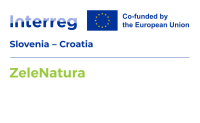
Project title: Improvement of urban infrastructure for greener city centres of the northern Adriatic
Project budget (ERDF co-financing): EUR 1.529.018,10
Project duration: 1. 3. 2024 – 31. 8. 2026
Project Partners: Grad Kastav, Mestna občina Koper, Občina Izola – Comune di Isola, Lokalna akcijska grupa “Terra liburna”, Univerza v Ljubljani-Biotehniška fakulteta, Sveučilište u Zagrebu Agronomski fakultet
The main goal of the project ZeleNatura is to improve the urban areas of the cities in northern Adriatic with green infrastructure, to improve the tools and methods of managing and monitoring the state of green infrastructure, and to raise awareness and educate the citizens of the cross-border area about the multiple benefits of green infrastructure. With regard to current state of urban infrastructure, the local public bodies of the project area face the challenge of arranging green infrastructure within densely populated urban areas and reducing the effect of heat islands. Although they began including green infrastructure planning in their spatial plans while following the principles of national documents aimed at the development of green infrastructure, in Croatia and Slovenia, concrete results are not yet visible. This is due to the lack of a unified system for managing and monitoring the condition of green infrastructure, as well as the lack of a documentation that would standardize the parameters important for monitoring the condition and management of green infrastructure.
The ZeleNatura project will tackle the aforementioned challenges and solve problems on two levels: by involving other local public bodies from the project area to improve the quality of the project results, and by involving the local population in the spatial planning of green infrastructure in the urban areas of Kastav, Koper and Izola. By jointly solving the mentioned problems, a new green urban network will be created in the project area which, through the activities of the ZeleNatura project, will encourage other local public bodies to apply the project outcomes themselves in order to increase the green urban network and create a greener region of the northern Adriatic.
By analysing the examples of best-practice of already successfully implemented green infrastructure development projects in urban centers of Europe and by cooperating with other units of local self- governments through focus groups, the partners will create a Joint Plan for the standardization of green infrastructure in the area of the northern Adriatic. The standardization plan implies the unification of terms related to green infrastructure, a set of elements of the green infrastructure, and defining the legality of implementation in certain territory, the methodology of mapping and creating a database, and the principles of green infrastructure management. The aforementioned Plan will be the basis for the creation of all local documents related to investment in green infrastructure, the implementation of jointly developed pilot projects for the development and arrangement of green areas in Kastav, Koper and Izola, and the creation of a joint solution (tool) in the form of a digital system for managing and monitoring the condition of green infrastructure areas. The tool will be implemented in the form of a web interface that will be available on partner websites and it will be open to the public. Data will be entered and updated based on the mapping of green infrastructure, according to the instructions from the Standardization Plan. The special feature of this system is, in addition to the unification of data in the program area and open access to information for the public, the possibility of predicting the creation of heat islands and their timely prevention. In order to be able to monitor the difference in the state of biodiversity and climatic conditions before and after the arrangement of green areas, the new tool will enable displaying of results of monitoring in pilot areas.
Added value to this approach to green infrastructure is the inclusion of local residents’ proposals in
the planning stage because of the uniqueness of the spatial urban plans in the area of pilot cities. Through advisory activities of the Green Council and by organizing educational workshops about applying the principles and methods of green infrastructure, the local population will be involved in the project ZeleNatura in order to contribute to the improvement of the quality of life in the urban areas of the northern Adriatic. This will contribute to the spread of awareness of the importance of nature and biodiversity in general. Through expert conferences, the mentioned overall system for managing and monitoring the state of green infrastructure, based on the Joint Plan for Green Infrastructure Standardization, will be presented to local government bodies and relevant stakeholders who would benefit from the implementation of the mentioned solutions.
The greening of Kastav, Koper and Izola will create an opportunity to better connect the mentioned area of the northern Adriatic and create a greener border area. New green attractions in the cities will also influence the retention of the local population in the area.
Source: application form SIHR00182
PRIORITY 2

Summaries of Projects in 1st deadline – SO 4.6
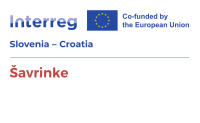
Project title: Revitalization of the cross-border cultural heritage of Savrink with a sustainable tourist offer
Project budget (ERDF co-financing): EUR 1.040.827,20
Project duration: 1. 9. 2024 – 28. 2. 2027
Project Partners: KZ Agraria Koper, z.o.o., Koper, Mestna občina Koper, Univerza v Ljubljani-Fakulteta za elektrotehniko, Istarska županija, AZRRI-Agencija za ruralni razvoj Istre d.o.o. Pazin, Općina Lanišće
We are witnessing the economic weakening of the hinterland of Istria and the emigration of the population, especially from the northern border areas. The pandemic has further reduced the level of entrepreneurial activities and the local food supply. However, the demand in tourism for green and cultural experiences in remote places is increasing. Due to a fast-paced lifestyle, tourists want a break from their everyday routine. Vacations in smaller towns provide authentic flavors of the region and offer relaxation away from the crowds of tourists. With the right content, based on the region’s identity, and a responsible approach that does not change the image of the cultural landscape, we could redirect the coastal flow of tourists to the hinterland.
The specific goal of the Šavrinka project is to revive the cross-border cultural heritage of Šavrinka with a sustainable tourist offer that strengthens the economy of the hinterland of Istria and the development of responsible tourism. The valorization of Šavrink’s heritage, the development of a strategy and action plan for the integration of heritage into tourism, the digitization of recreational routes, a tool for checking the sustainability of products, and the establishment of a smart hinterland supply chain will improve the quality of life of visitors, residents, and business operators.
The main effects of the project are: Ethnographic study and research with the valorization of the Šavrink cultural heritage in Croatian and Slovenian Istria, Strategy and action plan for the integration of the Šavrink heritage into a cultural tourism product Along the Šavrink routes, which will attract more visitors and open new opportunities for providers in the hinterland; Established cross-border digital/interactive experiences Along the Šavrink routes, which include natural, cultural and gastronomic attractions, an investment in a museum point in the village of Krkavče, and the Šavrinka
The Exhibition Center in the Municipality of Lanišće will enrich the quality and active time spent by tourists; Joint cross-border event Festival Šavrink, which will take place on both sides of the border;
12 modern Šavrink baskets with a selection of sustainable and typical products of the region, which interweave the diversity and diversity of tastes from both sides of the border and combine them into typical dishes and follow the lifestyle of modern tourists; Gastronomic Atlas, which connects providers of these products and gastronomy in a digital map accessible to travelers; The online calculator and rules for checking the ecological footprint and meeting the criteria for the green passport of products increase the competitiveness of providers of green products and enable the consumer to make a more informed choice; Jointly conducted trainings on typical gastronomy and sustainable food production, a study tour with a showcase of good practices on the topic of inclusive green tourism, green strategies and cultural tourism strategies for providers and organizations in tourism and agri-food activities; The establishment of a smart supply route and the procurement of the Traveling Šavrinka ambulance to supply tourists and residents with Šavrinka baskets from the coast to the hinterland of Slovenian and Croatian Istria, establishment of a digital reservation system for the Šavrink basket; The e-platform as a common cross-border portal for the presentation of the destination of sustainable tourism in the hinterland under the name of Šavrinka with a presentation of a set of useful content and online tools created in the project for everyone, from tourists to providers, policy makers and promoters of development.
Cross-border cooperation between Slovenian and Croatian Istria is crucial to achieving the goal of the Šavrinka project, as we share a common history and heritage. The Šavrinka routes have always crossed both sides of the border, all the way from Ćićarija to Trieste in Italy. Both countries face a lack of resources for the preservation of cultural heritage, which leads to the neglect and decay of buildings and the extinction of customs, traditions, and local dishes.
The Šavrinka project goes beyond existing practice, as it strives to create a sustainable tourist offer that will attract tourists who appreciate green and cultural experiences, want to get to know smaller settlements, and enjoy the local gastronomy. The project uses a modern approach and technologies for the digital presentation of content to visitors and an understanding of the tourist offer based on the heritage of Šavrink and its hinterland, highlighting care for the rural environment and responsible tourism with a special emphasis on environmentally sound activities and products. In this way, the basket and the paths of Šavrink will become a complete, unique cultural, touristic, gastronomic, and “green” product that will find its place with a larger number of stakeholders.
Source: application form SIHR00296
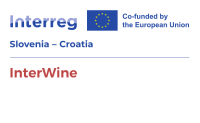
Project title: Combining cultural heritage and wine tourism to create a sustainable cross-border destination
Project budget (ERDF co-financing): EUR 1.106.463,99
Project duration: 1. 8. 2024 – 31. 1. 2027
Project Partners: Turistička zajednica Zagrebačke županije, Grad Velika Gorica, Općina Pušća, Obrtničko učilište – ustanova za obrazovanje odraslih, Zavod za podjetništvo turizem in mladino Brežice, Univerza v Mariboru-Fakulteta za turizem, Posavski muzej Brežice
The analysis of the destinations of the City of Velika Gorica, the Municipality of Pušća and Brežice shows that the development of their tourist products is primarily based on a list of all existing products. Such a broad orientation does not offer clear guidelines for the development of a tourist product, which would derive from the advantages and possibilities of the destination, from its natural peculiarities, cultural heritage and from the uniqueness, autochthonousness and originality of its offer. The lack of clear content of tourist products led to an unclear strategy for communicating the tourist offer of municipalities and the city, which resulted in a weak perception of the destination, a fragmented tourist offer and unsustainable development.
The absence of an appropriate tourist destination management model is one of the key obstacles of the development of tourism in OP, GVG and the Municipality of Brežice. The fact is that today the tourist market is not dominated by individual tourist providers, but by tourist destinations. The choice of tourists is increasingly dominated by those destinations that offer the best possible combination of individual tourist products and services, which can satisfy their expectations to the greatest extent possible. Authentic, unique experiences in a tourist destination consist of a variety of tourist products (accommodation, food, drink, experience) and, in particular, of a variety of products and services derived from the destination’s natural values and cultural heritage. What connects these three destinations are close historical and cultural ties as well as a recognized wine-making tradition. With the entry of the Republic of Croatia into the Schengen zone, the cross-border area becomes even closer and more easily accessible, both to the local population and to foreign travellers and enables the creation of a common tourist product.
Therefore, the main goal of the project is to strengthen the role of culture and sustainable tourism in the area of the City of Velika Gorica, the Municipality of Pušća and Brežice through the development of a new joint tourist product based on the combination of cultural heritage and the tradition of winemaking and viticulture. The project defines the destination with a bottom-up participatory approach. Such tourism is oriented towards sustainability, contributes to the well-being of the community, fosters a holistic, unobtrusive approach, sets a high level of quality as the ultimate goal and is based on the cooperation and partnership of all key stakeholders. Participation will be achieved through focus groups and workshops with key stakeholders from HR and SI who will actively work on defining and creating a plan for the establishment of a common destination. Based on this plan, the partners will develop a new tourism product, which will be based on a series of tangible and online elements. InterWine rooms will be equipped in GVG, OP and PMB, which will be a key point of contact between stories, cultural heritage and wine offerings and traditions, thus presenting one common cross-border destination in three locations in two countries. A new joint souvenir, joint itineraries and a tourist guide will be developed on this track, which will round off the offer of the destination. Also, as part of strengthening the promotion, attractiveness and accessibility of the destination, an intuitive platform will be created that will contain interactive relevant information about the wine and gastronomic offer and cultural heritage and experiences. Such a comprehensive approach will increase the quality and attractiveness of the destination, but also ensure the sustainability and resilience of tourism and culture. In order for the key stakeholders to be ready to change their behaviour and attitudes and adopt new competencies that meet the needs of modern tourism, the partners will develop 3 educational programs and conduct targeted training and motivational workshops. Furthermore, partners will pilot all elements of the tourist product and actively promote it in the media, among tourism workers and the general public. Piloting will demonstrate a common destination and a new tourist product, provide the opportunity for different stakeholders to create an experience that they can pass on to others and thereby create a multiplier effect. Finally, in order to capitalize on the results of the InterWine project and to ensure the adoption of examples of good practice and the cooperation of stakeholders at the local and regional level in the future, the partners will create an InterWine manual as a summary of all implemented project activities, including a report with recommendations from pilot activities. The manual will also be part of the Agreement on future cooperation to ensure the continuation of activities, the commitment of partners and involved stakeholders, and the sustainability of results after the end of the project.
Source: application form SIHR00295
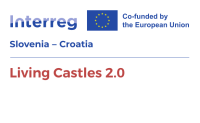
Project title: Strengthening the cross-border network of “living” castles by promoting inclusive and accessible cross-border cultural tourism
Project budget (ERDF co-financing): EUR 1.225.118,67
Project duration: 1. 9. 2024 – 31. 8. 2027
Project Partners: Zavod za kulturo, turizem in šport Murska Sobota, Znanstveno-raziskovalno središče Bistra Ptuj, Zavod za kulturne prireditve in turizem Celeia Celje, Gradski muzej Varaždin, Muzej Međimurja Čakovec, Muzeji Hrvatskog zagorja
The project Living Castles 2.0 is a continuation or upgrade of the project Living Castles (Interreg SI-HR 2014-2020), which aimed at the conservation and valorisation of castles and mansions through the development of a common cross-border tourist offer and the integration of innovative activities for conservation and presentation of heritage. The main objective of the project was to establish a common Living Castles brand, which helped to improve the recognisability and promotion of the joint tourism product. The project Living Castles 2.0 tackles new common cross-border challenges and extends further the cross-border cooperation, established in the frame of the previous project.
Tourism is one of the most important economic sectors as well in SLO as in CRO, with a significant impact on the economy, generating significant revenues for states and regions and contributing to their development. Cult. heritage is an important part of the tourism offer in both states. The diversified and innovative integration of culT. heritage into the tourism offer of an individual region or state promotes the active use of heritage and improves the attitude of society towards its holistic conservation at the same time. The Living Castles network has successfully established a network of SLO and CRO castles. A first step has been taken towards the preservation and joint promotion of the common cult. heritage in the cross-border area between SLO and CRO. However, further steps are needed for the sustainable preservation of cult. heritage in the border area. Castles and mansions are living witnesses of past times, which have today many untapped potentials and can, if properly approached, make a significant contribution to the strengthening of tourism and thus the economy of a region.
The aim of this project is to promote and strengthen the cross-border cult. tourism by a higher quality offering and fewer unique experiences in line with the local and historical identity of rural areas and the needs of vulnerable groups, through the integration and performance of cult. heritage for tourism purposes and the development as well as implementation of new cultural tourism experiences and cultural tourism offers.
The focus of this project will be on the development, testing and optimisation of pilot models for enhancing cultural tourism through various cultural experiences and events on the theme “Culture of life in living Castles”, combining culture, cuisine, music, wine and various experiential experiences, pilot models to improve the user experience through digital solutions (digitalisation and gamification as well as digital solutions for the identification, interpretation and presentation of cultural heritage) and pilot models for the inclusion of vulnerable groups (upgrade and/or development of tourism experiences and tourism offer tailored to vulnerable groups and inclusion of vulnerable groups in the co-design of the tourism offer).
The Covid-19 pandemic has brought not only new challenges and restrictions, but also opportunities to increase competitiveness, taking into account new tourism needs. One of such opportunities is the use of modern technologies for the interpretation of culture and to ensure the digital attractiveness as well as visibility of tourism destinations. As part of a model to improve the user experience, a gamified guide through living castles will be developed in the form of a mobile application, combining educational and entertainment elements and will encourage visitors to visit all castles and mansions that are included in the cross-border castle network by means of a rewarding system. Digital solutions will also enhance the existing offer of castles, making them more accessible.
The tourist experience “Culture of life in living Castles” will bring together culture, cuisine, music and wine, in line with the principles of slow tourism. By higher quality offering and fewer unique experiences (events), the cultural and historical wealth of the cross-border region will be presented and brought closer to the public.
An important aspect of this project will be the inclusion of vulnerable groups, for which we want to ensure access to cultural and tourist facilities and at the same time involve them in the co-creation of the tourism offer.
The upgrade of the Living Castles network and the Living Castles brand will increase the diversity and quality of the cultural and tourist offer in the cross-border region and improve the accessibility to cultural heritage and cultural contents, including vulnerable groups. The aim is to offer solutions that will strengthen the cross-border cultural tourism and improve the accessibility of the cultural tourism offer, with a focus on inclusion and experiential experiences, which will be transferable to other organisations or similar associations and initiatives, thus contributing to the recovery and strengthening of the cross-border tourism, its competitiveness and resilience.
Source: application form SIHR00253
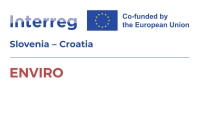
Project title: ENVIRO – Experiencing Sustainable Tourism to Inspire CrossBorder Changes
Project budget (ERDF co-financing): EUR 1.226.527,68
Project duration: 1. 9. 2024 – 28. 2. 2027
Project Partners: Občina Brežice, Turistička zajednica grada Zaprešića, Zavod za podjetništvo, turizem in mladino Brežice, Univerza v Mariboru-Fakulteta za energetiko, Oikon d.o.o. – Institut za primijenjenu ekologiju
Project “ENVIRO – Experiencing Sustainable Tourism to Inspire Cross Border Changes,” emphasizes the importance of sustainable and intercultural cross-border cooperation to develop an attractive tourism product that focuses on a new and innovative concept of the triple paradigm of Tourism-Environment-Energy. Through the ENVIRO project, we implement cross-border strategies in climate action and energy transition; sustainable development and responsible management of the environment and natural resources; education, tourism, and connectivity. The project will establish and interconnect two experiential centres on the Slovenian and Croatian sides, with new educational and promotional content tailored also to individuals with disabilities.
The common challenge of the program area addressed by the cross-border project ENVIRO is how to develop a diverse and attractive tourism product at the international level, the results of which will reflect changes in individuals’ habits to promote sustainable development. When designing the tourism product, we have based it on four sustainable development goals: ensuring health and well-being, quality education, affordable and clean energy, and climate action. The vision of the ENVIRO is based on the principle that climate change, clean energy, environmental and biodiversity conservation, cultural diversity, quality of life, population health and education, and concern for others know no borders. With an all-inclusive tourism product that connects the knowledge, virtues, and competencies of experts from two neighbouring countries, we aim to create a pilot project that integrates tourism, energy, and environment, serving as the best practice example at the European level.
The main effects we aim to achieve through the ENVIRO project are:
– Raising awareness about the importance of environmental, energy, and social responsibility for everyone.
– Promoting tourism development in rural areas that have great potential and introducing visitors to the hidden potentials of the Posavje and Zagreb regions, which lie in their natural and biological diversity, energy, low-carbon energy production, and boutique tourism offerings.
– Encouraging a shift in thinking and habits of individuals and motivating responsible actions to achieve a green transition.
–
The key beneficiaries of the project will include tourists, visitors, students, pupils, teachers and tourism workers, professional community, individuals with disabilities, and, last but not least, all project partners.
The ENVIRO Experiential Interpretation Centre (Kušljanova Villa in Brežice and Kuća Marof in Zaprešić) is aimed at more effectively raising awareness about the environmental and energy challenges of the 21st century and possible solutions for faster achievement of climate goals. ENVIRO promotes a multidisciplinary approach to addressing environmental and energy challenges, taking into account the expert opinions of key stakeholders in both fields. The environmental and energy sectors often appear conflicting and compromise due to allegedly different interests. However, it is increasingly clear that we can achieve climate goals and protect nature and the planet only by considering both fields jointly and holistically. To that end, ENVIRO will present content from both energy and environmental perspectives and will also engage in organizing events for professionals and the public that will reaffirm this intention and establish ENVIRO as a credible centre for addressing such issues. The purpose of ENVIRO is to become a bridge between the professionals and public, which is why the experience of the interpretive centre is designed as “edutainment,” where multidisciplinary expertise is presented in accordance with the principles of modern interpretation, using new technologies and innovative approaches. It is important that ENVIRO attracts a wide range of diverse visitors, not only those already aware of the importance of addressing environmental and energy challenges but especially those for whom achieving climate goals is not seen as crucial for the planet’s survival. Therefore, interpretation is provided as an experience that engages visitors in a sensory, entertaining, educational, and exploratory adventure, where they actively participate by expressing their opinions. Through a connecting game, visitors will be presented with a mirror that, at the end of the experience in augmented reality, reveals their environmental and energy image, hopefully prompting them to reflect on their stance on these issues. All content will be designed to remind people of the essence of the question about the actual need for a transition to renewable energy sources and the importance of environmental protection. We strongly believe that the ENVIRO project, with its approach and all planned activities, can make a significant long-term contribution and stimulate changes in individuals’ habits to promote sustainable development.
Source: application form SIHR00263
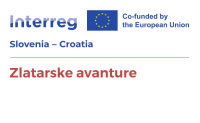
Project title: Goldsmith Adventures
Project budget (ERDF co-financing): EUR 968.612,67
Project duration: 1. 9. 2024 – 28. 2. 2027
Project Partners: Lokalna akcijska grupa Mura-Drava, Općina Donja Dubrava, Turistička zajednica Međimurske županije, Občina Zavrč, Občina Duplek, Razvojna agencija Slovenske gorice d.o.o.
Rural tourism in the continental regions of the SI-HR cross-border area is underdeveloped and less recognized compared to coastal tourism in HR or holiday tourism in Bled located in the Slovenian Alps. The cross-border area is rich in natural resources and cultural-historical heritage, but the overall tourism potential of the area has not been significantly utilized, which is also reflected in the fact that most tourist traffic occurs in the form of day trips without overnight stays. Additionally, in recent years, the lives of residents and tourism in the cross-border area have been significantly affected by negative demographic changes and the COVID-19 pandemic, which has also been faced by the members of LAG Mura Drava and the Municipality of Donja Dubrava in Croatia, as well as the municipalities of Zavrč and Duplek in SI. They have recognized that the potential for the development of rural tourism lies in connecting stakeholders who need to be meaningfully included in various forms of regional development, focusing on the natural beauty of the Drava River, tradition, and cultural heritage, which provides the basis for the development of cross-border tourism and the creation of a joint tourist offer.
For this reason, LAG, the Municipalities of Donja Dubrava, Zavrč, and Duplek have decided to establish cooperation with other relevant partners (TZMŽ and RASG d.o.o.), with the main goal being the development of active tourism based on the gold panning tradition in the SI-HR cross-border area.
The following outcomes will be achieved within the project:
1. Jointly developed pilot action aimed at testing the model and concept of the Gold Panning Walk interpretation based on cultural heritage and the gold panning tradition: As part of the project, a total of 6 points of connection of the Gold Panning Walk in the cross-border area will be established. The connection points will be adequately equipped to attract a larger number of tourists, while partners will enable the use of the innovative thematic game “Cultural Escape Room on the Gold Panning Walk” along the entire Gold Panning Walk.
2. Jointly developed interactive cross-border interpretation model of the Gold Panning Walk based on cultural heritage and the gold panning tradition: This refers to the establishment of 6 points of the walk and the development of content and methods of its interpretation for potential visitors. The model includes 6 connection points in Donja Dubrava, Donji Vidovec, Sveta Marija, Zavrč, Duplek, and Lenart. The development of this model will be facilitated by organizing gold panning demonstrations, cross-border tours, events aimed at testing the “Cultural Escape Room on the Gold Panning Walk” game, and rafting.
3. Organizations cooperating across borders with the aim of developing a joint tourist offer (the Gold Panning Walk) in the Slovenian-Croatian cross-border area: 6 partner project organizations will formally cooperate in the implementation of this project, all with the goal of developing the Gold Panning Walk.
4. Jointly organized cross-border public events aimed at introducing the newly established Gold Panning Walk: Partners will organize a cross-border public event in the City of Zavrč to introduce visitors to the newly established Gold Panning Walk.
5. Jointly developed management plan for the newly developed cross-border tourist offer, i.e., the Gold Panning Walk in the SI-HR area: Thanks to active cooperation and the involvement of other stakeholders from both sides of the border, partners will develop and adopt a joint management plan for the cross-border tourist offer with the aim of developing active tourism based on the gold panning tradition.
The local tourist communities, local communities, local government units, Mura Region EGTS, students, tourists, and others will benefit from these outcomes.
In conclusion, the importance of the project for the cross-border area is unquestionable.
Source: application form SIHR00280
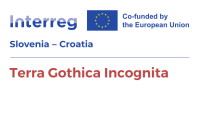
Project title: Terra Gothica Incognita
Project budget (ERDF co-financing): EUR 1.946.459,01
Project duration: 1. 9. 2024 – 28. 2. 2027
Project Partners: Grad Kastav, Pokrajinski muzej Koper, Museo regionale di Capodistria, Povijesni i pomorski muzej Istre – Museo storico e navale dell’Istria, Mestna občina Koper -Comune città di Capodistria, Udruga hrvatskih putničkih agencija, Regionalni razvojni center Koper – Centro regionale di sviluppo Capodistria
The Terra Gothica Incognita project will tackle the identified common cross-border challenges, i.e. unrestored and unprotected cultural heritage of the Middle Ages, insufficiently valorized cultural heritage, the local population being uneducated about the importance of culture in economic development, the region being unrecognized on the cultural-tourism map, lack of a common strategy for the development of cultural tourism and vast differences in quality and service in the cross-border area in the provision of tourist services.
The main goals of the project are the preservation of the common cultural heritage from oblivion and decay, its tourist valorization through the development of cross-border cultural-tourist destinations and cross-border products, the implementation of various heritage interpretation methods and promotion to raise awareness among the locals of its importance and potential and to revive the common cultural identity.
The expected changes include cultural heritage protection, the creation of a recognizable cultural and tourist destination, an increase in the number of tourists visiting less attractive historical sites, cooperation with local stakeholders, reduction of regional inequality, and overall improvement of the quality of life in the cross-border area. A network of innovative and highly experiential cultural and tourist content based on heritage defines the cultural and tourist offer but also encourages the economic improvement of micro-environments. Interpretation centers and events reduce the seasonality of the tourist and cultural offer and enable the locals to enrich life in their community through their associations and personal entrepreneurial projects.
The main results of the project are as follows:
• Developed strategic documentation as a foundation for sustainable development of a cross- border cultural-tourism destination (Strategy with a destination management model, Action plan, and Historical sites management plan);
• Establishment of visitor infrastructure (Interpretation centre of Vincent and John of Kastav, museum space of the Prem Castle);
• Developed and implemented innovative interpretation methods for the “Terra Gothica Incognita” destination (exhibitions, workshops, thematic events);
• Expanded and upgraded cultural heritage database Patrimonio with an interactive map of historical sites in the cross-border area and 3D images of historical sites;
• Developed innovative thematic cross-border products (interactive games, picture books);
• Developed marketing plan and a completed promotional campaign to increase the visibility of the common destination and cultural-tourism products through events, exhibitions, and concerts, which will increase the number of visits to lesser-known cultural-tourism localities;
• Completed pilot action of testing and evaluating developed tourist routes;
• Exchange of knowledge, resources, and good practices between partners and stakeholders through a popular-scientific conference;
• Education of target group members on the topic of promotion od the destination and developed cross-border products.
The implementation of the project will rely on the bottom-up approach in an integrated manner, therefore laying the foundations for quality reflection on the way to develop a new cultural-tourist destination and the realization of investments by exploring the tourists’ needs and wishes. The approach will focus on educating the population of the cross-border area, where the population will be introduced to the importance of developing a common cultural and tourist destination and its economic benefits.
To achieve the project’s goals and results, a cross-border approach is needed. A joint approach, through the exchange of knowledge and experience, will help create the conditions for effective cross-border challenges solving, and by strengthening partnerships, it is possible to create a unique cross-border cultural destination.
Historical heritage interpretation models are innovative to remove cross-border obstacles in practice and create sustainable conditions for the development of cultural and tourist destinations and slow- living tourism. The implementation of a successful promotional campaign will increase the visibility of joint cultural and tourist products, resulting in an increased number of visitors. With this kind of integrated concept, cross-border cooperation will enable the creation of a recognizable cultural-tourist destination, thus ensuring citizen mobility in both countries.
Source: application form SIHR00272
PRIORITY 3
Standard Projects

Summaries of Projects in 1st deadline – SO 6.2
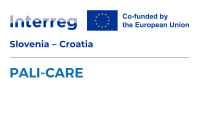
Project title: Strengthening comprehensive palliative care in the cross-border regions of Croatia and Slovenia
Project budget (ERDF co-financing): EUR 688.059,26
Project duration: 1. 3. 2024 – 28. 2. 2026
Project Partners: Županijska bolnica Čakovec, Dom zdravlja Čakovec, Slovensko društvo Hospic, Splošna bolnišnica Murska Sobota
The project addresses common challenges in the program area related to palliative care, ensuring quality education for palliative care professionals,the lack of regulatory framework of the area,the absence of cross-border cooperation in palliative care despite the proximity of the border and similarities in the healthcare workforce structure and finally,the project deals with the insufficient awareness among palliative care professionals and the general public.Given the aging population and the increasing prevalence of incurable diseases,which consequently leads to an increase in the number of palliative care service users across the entire cross-border region,it is crucial that the quality of these services be of the highest quality.Providers of palliative care services come from various sectors or professions,including:healthcare professionals, psychologists, social workers, and spiritual care providers (referred to as professionals hereinafter).None of these professionals receives sufficient education and training in palliative care during their formal education, which poses a challenge to their work in this field.The field of palliative care covers various areas of practice, and its beneficiaries are not only patients but also their families and society at large.Therefore, professionals in this field need to have knowledge and skills in different areas, including the principles and organization of palliative care,patient care (physical, psychosocial, spiritual), family care (support for pain and grieving),ethics in palliative care, interdisciplinary teamwork, and communication(which is crucial as the palliative care team works together to care for the individual).The palliative care system at the national level in none of the partner countries has not been established. Therefore, professionals are in a situation where they need to establish a system in the cross-border area through this project with joint solutions and pilot actions, they aim to enhance and improve the quality of healthcare services in palliative care.
The main common objective of the project is to strengthen the capacity of professionals in the field of palliative care and establish cross-border cooperation in the exchange of knowledge and experience in palliative care. This will be achieved through the development of joint sustainable solutions to improve access to palliative care for users in the cross-border area.
The objective will be achieved through the implementation of project activities that are purposefully designed to approach palliative care in a more integrated and systematic way, and that are designed to be multiplied in all regions in the cross-border area, as well as in other EU regions.
The main outcomes that will be achieved are:
1.A joint action plan for the provision of palliative care services in the cross-border area and protocols as a unified document for the establishment and improvement of the palliative care system in each healthcare institution and/or community in the cross-border area.
2.Joint participation of 4 institutions, whose extensive experience and expertise of their professionals in this field is an indication that the implementation of project activities will guarantee an improvement in the palliative care service, not only in the border area but also as a catalyst momentum for the development of the field at national and EU levels.
3.Joint educational pilot material in the form of educational digital resources on palliative care to bridge the gap between the necessary knowledge in providing palliative care services and the knowledge obtained through formal education of healthcare professionals and other stakeholders in palliative care.
Already at the time of the development of the project idea, areas and systematic approaches were identified that are regulated better than elsewhere at certain local, regional and national levels. Cross-border cooperation is therefore necessary to address common issues, transfer work methods, knowledge, and regulations, demonstrate in a real environment, and pilot test shared experiences.All project outcomes will serve as a professional basis for systematic or normative regulations in the field.From the above mentioned, it is clear that the implementation of this project with only a local, regional, or national approach would not be possible, as it would not lead to international cooperation and intensive transfer of knowledge, work methods, and new practices between areas with different regulatory systems.
The project is innovative in its approach as it also contributes to reducing inequalities within and between regions in the cross-border area.All professional staff employed by project partners will have equal participation in developing their competencies and shaping a unique learning model.Consequently,end-users of palliative care,regardless of their location, will have equal access to hospital-based or home-based palliative care, according to their needs.
Source: application form SIHR00063
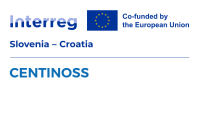
Project title: CENTer for INnOvations in Social Services
Project budget (ERDF co-financing): EUR 690.147,87
Project duration: 1. 3. 2024 – 28. 2. 2026
Project Partners: Primorsko-goranska županija, DOM ZA STARIJE OSOBE „KANTRIDA“, RIJEKA, Zaklada Sveučilišta u Rijeci, DOM NINE POKORN GRMOVJE, Alma Mater Europaea – Evropski center, Maribor
The “CENTINOSS” project focuses on the development and implementation of new models for delivering social services. Due to their age, older people and individuals with mental disabilities not only face various health issues but often live alone or in nursing homes for the elderly and individuals with mental disabilities, which makes them less connected to society and more vulnerable to social isolation. This can hurt their health and lead to feelings of loneliness and depression.
Considering the aforementioned, nursing homes and senior clubs play a vital role in providing a safe and adequate environment for older individuals. These are places where older people and individuals with mental disabilities can spend time with their peers and have access to various activities and social interactions, which is particularly important if other social contacts are limited. Additionally, these clubs and homes provide professional care and assistance to older individuals who rely on others for their basic daily needs. Nursing homes are often necessary for those who cannot live independently due to physical or mental limitations, while senior clubs offer activity programs and help maintain social connections that are crucial for the well-being of older individuals.
Furthermore, senior clubs are extremely important in maintaining the quality of life and well-being of older individuals who are not direct users of nursing homes. With the rapid increase in care needs due to an aging population, no single public or professional system can fully meet the care demands. It must rely on existing informal social care networks, which currently cover three-quarters of care needs in the EU and are inherently community-based.
Community-based services aim to enable older dependent individuals or those with mental disabilities to remain in their own homes for as long as possible while maintaining a satisfactory quality of life. It also aims to increase the number of current users and make services more accessible, as well as to raise public awareness about the elderly through promotional activities that inform the public about available services, which is one of the objectives of the activities planned within this project.
For these reasons, the main goal of the project is to strengthen cross-border institutional cooperation among stakeholders in the social care and healthcare systems and related fields to improve the health and quality of life of older individuals and those with mental disabilities in the cross-border area of Slovenia and Croatia, as well as to enhance partnerships and collaboration among organizations responsible for their care. This is expected to be achieved through improving care quality and enhancing collaboration among care service providers. The project will deliver a range of outcomes, including the development of new care models, the establishment of a collaborative network among elderly care organizations crowned with a joint cross-border strategy, and the establishment of a new “Center for Social Innovation” to continue the education of their volunteers and staff.
The benefits of these outcomes will be enjoyed by older individuals and those with mental disabilities in the cross-border area, as well as by care service organizations and their staff. The approach applied in the project involves cross-border cooperation between organizations in Slovenia and Croatia, enabling the exchange of knowledge and experiences and joint problem-solving in elderly care. Cross-border collaboration is essential because older individuals in the cross-border area face the same challenges but are often limited in accessing appropriate services. This is planned to be achieved through expert knowledge and experience exchange among employees working in nursing homes, the day center of the “Nina Pokorni”, and senior clubs of the “Kantrida” Home for elderly, as well as through the involvement of users directly participating in pilot activities, facilitating the exchange of opinions and experiences.
Furthermore, the synergy between decision-makers in the program area, scientific centers, and professional organizations will be utilized as the main driver to stimulate new social and healthcare innovations and knowledge to elevate elderly care in the program area to a higher level. Within the project, with the institutional support of the lead partner, the “Center for Social Innovation” will be established as a support for all future endeavors aimed at improving service provision in nursing homes and senior clubs.
The project results will be directly transferable to other stakeholders through methodologies and tools developed within the project. The establishment of the “Center for Social Innovation” and the long-term reach of all project deliverables will ensure the transferability of project results even after its official completion.
Source: application form SIHR00165

Project title: Challenges for preventing and combating energy poverty
Project budget (ERDF co-financing): EUR 404.281,60
Project duration: 1. 4. 2024 – 31. 3. 2026
Project Partners: Međimurska energetska agencija d.o.o., Regionalna energetska agencija Sjever, Lokalna energetska agentura Spodnje Podravje, Lokalna energetska agencija za Pomurje
The common challenge that the project addresses through cross-border cooperation relates to improvement of the knowledge and awareness of decision-makers, as well as increasement of the collaboration between decision-makers and the “on-the-ground” situation in the prevention and mitigation of energy poverty in households. Assessments linking energy poverty to the corresponding level of risk of social exclusion and own projections show that around 20% of households in the program area are facing the energy poverty issues. The program area has also recently experienced an increase in energy and fuel prices, which further contributes to the rise of energy poverty issues. Action is required on the ground. To identify energy poverty, it is necessary to establish realistic starting points; collect actual field data and determine the number of households already facing energy poverty and the number of those who will soon be facing it. Energy poverty is indeed a multidimensional problem and challenge that requires collaboration between key actors and decision-makers who can take concrete actions. On the other hand, it is necessary to prepare a basis for action and propose possible solutions. The project will contribute to the reduction of energy poverty through activities focused on improving energy efficiency and the use of renewable energy sources in households. The results will be reflected in lower energy consumption, energy efficiency, better utilization of the endogenous potential of local energy sources, and ultimately, reduced CO2 emissions. The action plan includes socially vulnerable and disadvantaged groups in the program area who are most affected by energy poverty. Within the project an initiative based on a bottom-up approach will be created, various approaches will be tested, starting points will be prepared and obligations for coordinated action against energy poverty will be defined.
The I-PRODER project brings together four partners, each responsible for implementing activities in their respective regions. The partners possess internal knowledge and expertise as they have already participated in the implementation of various projects. During the period of high energy costs resulting from the war in Ukraine, project partners observed that the problems and challenges related to energy poverty in all regions of the program area have further increased. The fact is that the partners are familiar with the terrain but do not have all the necessary data concerning the situation and have not collected examples of good practices, policies and instruments that they could provide through collaboration in the project. The lead partner has already carried out activities related to mitigating energy poverty, PP4 has conducted field surveys and possesses certain data for the Slovenian regions Pomurje and Podravje, while the Croatian partners will conduct energy surveys in households as part of the project to provide input data for the analysis and presentation of energy poverty hazards. All project partners will establish contact with key organizations in the region that can provide missing data. Methodology for implementing these activities will be developed, and an analytical report of the situation will be conducted in the end. Under the WP2, a review of good policies and instruments will be prepared. Through a comparative analysis of policies and instruments for the fight against energy poverty, a cross-section of key elements will be prepared and based on this, a pilot model of technical assistance for the preparation of projects aimed at solving energy poverty for cities/municipalities will be created. The action plan of preventing and mitigating energy poverty with recommendations for the SI-HR cross-border area will serve as the foundation for collaboration and will define the work plan and a framework that will identify potential organizations for its implementation. An important part of this document will be the identified and proposed measures to prevent and alleviate energy poverty. Organizations will sign a Visibility and implementation protocol for measures to reduce energy poverty. Signatories, such as decision-makers at the local, regional, and national levels, as well as other key organizations influencing energy poverty, will ensure that the project has a lasting impact on the program area and its inhabitants after its completion.
A cross-border group will be formed, whose long-term collaboration will focus on monitoring the implementation of the protocol and cross-border monitoring of policy changes and new instruments in the field of energy poverty. The content of the collaboration will be enhanced, to the extent relevant and necessary, through cooperation and/or integration into other EU projects. The added value of the project will be the reduction of energy poverty in less developed regions of Slovenia and Croatia.
Source: application form SIHR00173
Small-scale Projects
Summaries of Projects in 1st deadline – SO 6.3

Project title: Strengthening cooperation between population of Samobor and Brežice through promotion of healthy lifestyles
Project budget (ERDF co-financing): EUR 24,800.00
Project duration: 1. 4. 2025 – 31. 12. 2025
Project Partners: Hrvatski Crveni križ, Gradsko društvo Crvenog križa Samobor, Rdeči križ Slovenije – Območno združenje Brežice, Dom zdravlja Zagrebačke županije
The aim of the VitaMed project is to contribute to the reestablishment and strengthening of ties between the inhabitants of Samobor on the Croatian side and Brežica on the Slovenian side through the promotion of healthy lifestyles.
The state border greatly changed relations between the inhabitants of the border area after 1991 and the recognition of Croatia and Slovenia as independent states. Since these relations to date, despite the accession of Croatia and Slovenia to the European Union, have not been restored to the former framework, additional efforts are needed to rebuild close neighbourly cooperation and mutual trust.
Bearing in mind the traditional ties between Samobor and Brežice – social, economic, commercial, family, health – the focus of the project is the promotion of healthy living habits through the organization of two specialized fairs for the population of local communities of Samobor and Brežice.
By organizing joint cross-border events – 2 one-day healthy life fair in Samobor and Brežice – the project aims to reestablish trust and connections between residents in the local cross-border area and use the tradition of cooperation and co-existence to establish new relations and ways to exchange knowledge, experiences and good practices among communities. Fairs will be held outdoors for the general public – at least 200 people are expected to attend each event during the 6 hours of the fair programme, which will include advisory and educational elements in the field of lifestyle medicine and health protection, demonstration of healthy living habits, and exhibition content.
Activities that raise awareness of the importance of healthy lifestyles and prevention of the most common diseases of today are of great importance to society. Chronic non-communicable diseases (CNDS) such as heart and blood vessel diseases, diabetes mellitus, chronic respiratory diseases and malignancies have been the main cause of death in the world in the last half century. Data from the World Health Organization (WHO) show that chronic non-communicable diseases account for 80% of all diseases in the EU and are the leading cause of mortality. Similar trends have been observed in the European Union, and Slovenia and Croatia are above the average among EU Member States, especially in terms of the incidence of cardiovascular disease and diabetes.
Chronic non-communicable diseases threaten the life, health and well-being of a large number of people, and consequently have a negative impact on the costs and burdens of the health system. Chronic non-communicable diseases are also known as “lifestyle diseases” because they are characterized by common risk factors and are based on the lifestyle of individuals and communities. The impact on these factors can reduce the incidence and burden of chronic non-communicable diseases in the cross-border area. The project is aimed at the opportunity of mutual learning and cooperation based on mutual trust, respect and intercultural dialogue through the development and raising awareness of the link between lifestyles and health risks in the general public.
Source: application form SIHR00309

Project title: Connecting cross-border communities: Solving the challenges of marginalized groups through innovative cooperation between the Red Cross of Slovenia and Croatia
Project budget (ERDF co-financing): EUR 12,288.00
Project duration: 1. 5. 2025 – 31. 12. 2025
Project Partners: Hrvatski crveni križ Gradsko društvo crvenog križa Ludbreg, Rdeči križ Slovenije Območno združenje Ormož
In the cross-border program area, the organization Red Cross Slovenia, Regional Association Ormož (RKS OZ ORMOŽ) in the Podravje region in Slovenia, and the City Red Cross Society Ludbreg (GDCK Ludbreg) in the Varaždin County in Croatia, observe common challenges in working with the local population. The prolonged pandemic of COVID-19 and the measures that had to be taken due to the pandemic have further intensified existing issues: weak connectivity among organizations with similar goals and addressing similar problems, poor connectivity of the population in the cross-border area, and social exclusion of specific marginalized groups within the local population. Organizations are missing the opportunity for valuable exchange of good practices and joint resolution of similar or related issues. The population in the cross-border area is thus losing the opportunity for connection and further development of collaboration. Particularly affected is a socially deprived group characterized by long-term unemployment and individuals with disabilities facing a lack of financial resources. The lack of financial means leads to an inability to acquire new knowledge and skills, a deficit in social contacts, and ultimately to social isolation, often resulting in mental and physical issues. Such a group becomes marginalized and caught in a kind of negative cause-and-effect cycle.
The project’s objective is to connect the partner organizations RKS OZ Ormož and GDCK Ludbreg to establish cross-border cooperation in addressing common challenges in their activities, with the aim of connecting the local population in the cross-border area, especially marginalized groups. Long-term collaboration between partner organizations is expected, along with the establishment of joint activities, leading to improved cohesion among the population in the cross-border area.
The planned activities and outcomes of the project include six workshops conducted in the cross-border area. In Croatia, three workshops will be organized: a workshop on cooking traditional food, a workshop on traditional crafts, and a workshop on traditional dance. Each of these workshops will involve 20 participants from Slovenia. In Slovenia, three workshops will also be organized: a workshop on cooking traditional food, a workshop on traditional crafts, and a workshop on traditional dance. Each of these workshops in Slovenia will involve 20 participants from Croatia. The benefits of the workshops will reach a total of 120 members of the target group: 60 from Slovenia and 60 from Croatia, characterized by long-term unemployment, disability, and social exclusion. The workshops will contribute to the development of their skills and the establishment of new connections and friendships within and beyond their local communities. Project activities also include roundtable discussions (2), one in Slovenia and one in Croatia, where experiences, ideas, and needs of the cross-border area will be exchanged among the target groups of the project (including non-governmental organizations), project partners, and local authorities, and the results will be published in the local Bulletin. The project will also benefit partner organizations RKS OZ Ormož and GDCK Ludbreg, helping them achieve their own work objectives and establishing lasting forms of collaboration. Additionally, local authorities in the Podravje region and Varaždin County in the cross-border area, where activities are taking place, will benefit from these outcomes by directly empowering vulnerable groups in the local population they govern and establishing additional social content in their areas. Simultaneously, the outcomes address part of the problem the social isolation of their marginalized residents. The entire cross-border area will benefit from these outcomes, contributing to social cohesion and serving as an example of good practice.
The idea of the project proposal is to establish the foundations for the sustainability and endurance of the project achieved in collaboration with stakeholders in the program area. Project management will involve joint implementation, joint coordination, and shared beneficiaries. Workshops during the project will be held alternately in Croatia and Slovenia, as well as two roundtable discussions. Collaboration is necessary to improve the social status of marginalized groups and contribute to building mutual trust.
The innovation introduced by the project is defining members of marginalized groups as part of the solution. Through project activities, they play a key role in connecting the cross-border area: from socially deprived individuals, they become key drivers of significant change extending far beyond their local environment. In other words, they become a solution rather than a problem, as they mostly perceive themselves, and as society perceives them. They thus become leaders of positive change, connection, and cohesion throughout the entire cross-border area.
Source: application form SIHR00339
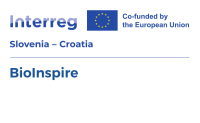
Project title: Promoting Biodynamic Ideas in the Pomurje Region and Međimurje County
Project budget (ERDF co-financing): EUR 14,336.00
Project duration: 1. 4. 2025 – 30. 9. 2025
Project Partners: Centar dr. Rudolfa Steinera, Institute of Agriculture and Forestry Murska Sobota
The challenge that the BioInspire project wants to solve in the cross-border area of the Pomurje Region and Međimurje County is the lack of understanding and knowledge of biodynamic agriculture. Considering the large number of farms,the tradition that agriculture has always had in this area, and the never-greater importance of healthy lifestyles,the preservation of biodiversity,which often suffers from conventional agricultural activities,and the importance of the quality and vitality of food, the project partners will hold two educational workshops to gather farmers and experts from the cross-border region and encourage them to adopt innovative and environmentally acceptable ways of thinking, acting and gathering.The main goal of the project is to raise the awareness of farmers and the professional public about the application and importance of biodynamic agriculture and to promote its positive impact on society,biodiversity and the quality and vitality of food.We want to achieve a change in the way of working and thinking of farmers and the professional public,by encouraging a greater understanding of biodynamics and support for biodynamic methods,which would result in long-term changes in the way sustainable agricultural practices are applied.
The main outcomes of the project include the increased awareness of farmers and experts in the fields of agriculture,ecology and sustainable development about biodynamic methods of growing food and its advantages.The project will establish a platform for the exchange of knowledge and establish a support network for the application of biodynamic methods in the Pomurje region and Međimurje County,considering that the project partners have many years of experience and professional knowledge,and will take on the role as a contact point for the exchange of knowledge and cooperation between farmers and professional public.Local farmers,the professional public,and consequently the general public will also benefit from the project,through the strengthened capacities of farmers and a change in their way of thinking,they will get access to healthier, more vital food and a better quality of life.
The main outcome of the project is two expert educational workshops focused on specific topics of biodynamics to promote healthy lifestyles and preserve the environment.This cross-border cooperation is crucial because it enables the exchange of best practices,the establishment of partnerships and the promotion of innovative agricultural approaches that cross national borders.
The innovation of the project is that for the first time,farmers and experts in the fields of agriculture, ecology and sustainable development who live in the cross-border area will gather,and biodynamic approaches to growing food will be explained to them practically and educationally.In addition, the focus is to gather the project partners,farmers and the expert public in a platform/network even after the end of the event and create preconditions for future projects in the field of sustainable agriculture.This project is not only educational but also encourages changes in practice to improve agricultural methods through the preservation of the environment and biological diversity.
Furthermore,the project plan includes a detailed implementation of the event with activities adapted to each theme. In Croatia,the Center Dr. Rudolf Steiner will organize an educational workshop on “The impact of biodynamics on biodiversity and bees”.One interactive workshop with involved experts is planned to provide practical information and experiences. Representatives of target groups from the Pomurje Region and Međimurje County will participate.
In Slovenia, the partner Institute of Agriculture and Forestry Murska Sobota will host a workshop on the topic “The influence of biodynamics on the vitality of food”.The focus of this workshop, which will also be attended by farmers and experts from the Pomurje region and Međimurje County,will be focused on the quality of food grown using biodynamic methods,providing insight into the practical application of biodynamic techniques.
The cooperation between the LP and PP will be key to the success of the project,enabling the sharing of best practices, theoretical knowledge and practical experiences between experts and farmers.
Throughout the project,the emphasis is on an innovative approach to educating and promoting biodynamic agriculture through interactive events.This approach allows participants to gain hands-on experience and direct interaction with the subject,which goes beyond conventional educational methods.
Through these activities,we want to encourage not only farmers and the professional public but also local communities to accept sustainable agricultural practices, promote biodynamic methods as an innovative approach to agriculture,and establish cross-border cooperation and exchange of knowledge to promote the long-term sustainability of the environment and the local economy.
Source: application form SIHR00391
 Project title: dAn daRovitih učENikA
Project title: dAn daRovitih učENikA
Project budget (ERDF co-financing): EUR 15.974,40
Project duration: 1. 4. 2025 – 30. 11. 2025
Project Partners: VI. osnovna škola Varaždin, Osnovna šola Hajdina
The implementation of the activity is planned within 8 months from the signing of the contract (March 20, 2025 – November 20, 2025).Gifted children look for challenges, creativity, customized approach, and content and are often left without adequate additional elements related to education because there is not enough time for them, and often not adequate professional support for the development of their potential. Such a situation was also observed in the cross-border program area of SLO and CRO, specifically in the partner regions – Varaždin County and Podravina Region. It was observed that there is insufficient cooperation of relevant stakeholders dealing with gifted children. The main goal of the ARENA project is the development and strengthening of the Slovenian-Croatian cross-border partnership of primary schools and their mutual trust through the partnership implementation of the 6th Primary School Varaždin and Primary School Hajdina and related to activities for gifted students to create a stimulating and inclusive environment that will support their development. Through the implementation of activities, the development of sustainable cooperation will be encouraged between schools in working with gifted students to better identify, encourage and monitor giftedness in the STEM field, the cultural field (acquaintance with Croatian and Slovenian cultural expression, poetry, translation, painting) and in the field of environmental protection (beekeeping in school space) which will provide an opportunity for the development of their special talents as well as the development of mutual trust between partners and the wider community in the cross-border area. By participating in joint activities that the students themselves will create together, in addition to gain new knowledge and experience, cross-border ties will be strengthened, and mutual trust will be built between students, teachers and other participants. In the context of cooperation, one of the main goals is the innovation and creativity of the students, because this is crucial in supporting gifted students in acquiring new knowledge and skills and problem-solving abilities. We want to achieve student success in a modern, multicultural, and inclusive society with strong collaborative competencies. The experience of mobility is an important step in their educational progress and broadening of horizons. By participating in the project, both schools, by organizing and carrying out activities from various fields, will try to develop new methods and tools to encourage creativity and giftedness of students and to enable gifted students to realize their full potential, and the project will initiate the development of long-term partnership cooperation that will be built on and in the future. Project partners have many related development goals, which they can realize and build on together, and at the same time, by exchanging mutual experiences, raise relevant competencies. Serious intentions of future cooperation will be confirmed by signing the Agreement on Future Cooperation. The main outcomes of the project are: – Realized cross-border partnership cooperation between schools through the implementation of joint activities for work with gifted children in CRO and SLO – 2 schools that cooperate across borders – Conducted joint cross-border meetings in Varaždin – activities with gifted children – 2 events in Varaždin – Conducted joint cross-border meetings in SLO – activities with gifted children – 2 events in Slovenia The following will be directly involved in the project as target groups: – primary school students aged 12 to 15, especially those who show giftedness and creativity in various areas. By participating in all activities and events in the project, they will have the opportunity to further develop their potential, knowledge, and skills – school teachers and professional associates, employees of partner schools in the project, those who work with gifted students. They will have the opportunity to exchange experiences in working with gifted students and will be able to improve their methods for working in that area. A minimum of 160 participants – students, teachers and professional associates – employees of partner schools will be involved in the activities Indirectly, the project will benefit from: – Interest groups, including non-governmental organizations dealing with topics in the field of work with gifted students – Local public body – representatives of local self-government – school founders – General public – the project activities that will be held as part of Hajdina Market as well as the project communication activities will promote the benefit of cross-border partner action to the general public of the cross-border project area in order to create a stimulating and inclusive environment for the development of special talents of students and encourage the building of trust among stakeholders – Parents and families of gifted students.
Source: application form SIHR00411
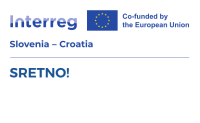
Project title: Meeting of Mining Traditions: Cultural Heritage Without Borders
Project budget (ERDF co-financing): EUR 24.800,00
Project duration: 1.4.2025 – 31.10.2025
Project Partners: Kulturno umjetničko društvo Oštrc, Delavsko kulturno društvo Svoboda Senovo, Turistično društvo Senovo
The project ‘SRETNO!’ – “Encounter of Mining Traditions: Cultural Heritage Without Borders!” was conceived with the challenges faced by the border region of Croatia and Slovenia in mind. These challenges include the need to re-establish communication among the populations on both sides of the border, but also to to restore, and especially increase mutual trust. The importance of this trust became evident during the experience of isolation and the closure of state borders. The opportunity for increased understanding and trust among the border population was facilitated by the abolition of the border and the continuation of European projects connecting Croatia and Slovenia.
‘SRETNO!’ is primarily a project of mutual cultural exchange, consisting of activities related to local traditions, particularly mining heritage shared by the locations where the activities take place (the project’s name signifies the traditional mining greeting before entering the mine). The project outcomes serve the main goal of connecting the local population on both sides of the Croatian-Slovenian border through the work of associations focused on cultural activities. The connection based on common mining heritage serves as an identity touchpoint for the populations on both sides of the border, and as such presents fertile ground for building mutual trust and understanding via mutual lerning, which is a programmatic goal.
The expected outcome of the project is the hosting of two cross-border cultural events, assuming successful collaboration among project partners – the leading partner KUD Oštrc from Rude (Croatia) and two other partners, KUD Svoboda Senovo, Folklorno društvo and TD Senovo from Senovo (Slovenia). The successful implementation of the events will encourage local engagement on both sides in activities aimed at connecting Croatian and Slovenian populations. Furthermore, the example of successful collaboration among partners facilitates future cooperation among the local population and local organizations, both within and beyond the scope of European projects.
The project comprises two public cross-border cultural events. The Croatian partner will be hosted in Senovo, while the Slovenian partners will be hosted in Rude. Thematically, the activities revolve around the mining profession and are predominantly interactive, but certain activities will also introduce participants to local folklore. The purpose of the activities at the events is to present the specificities related to the mining heritage of each region and thus connect local citizens with those from the neighboring country.
What makes ‘SRETNO!’ innovative is its interdisciplinary and inclusive approach to activities. There is significant variation in approach towards the thematically-connected activities, ensuring greater involvement of the local population and cultural organizations interested in fostering collaboration between the bordering Croatian and Slovenian populations.
Source: application form SIHR00424
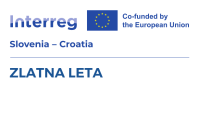
Project title: Preserving mental health for better quality of life for the elderly in the Međimurje County and the Podravska Region
Project budget (ERDF co-financing): EUR 15,360.00
Project duration: 1. 4. 2025 – 31. 7. 2025
Project Partners: Knjižnica “Nikola Zrinski” Čakovec, Knjižnica Franca Ksavra Meška Ormož
The “ZLATNA LETA” project is aimed at preserving mental health, improving the quality of life, and enhancing social inclusion for elderly in the Međimurje County of Croatia and the Podravska region of Slovenia. This will be achieved through cross-border cooperation between the Library Nikola Zrinski Čakovec and the Franc Ksaver Meško Ormož Library.
The project solves the shared challenges of an aging population, social exclusion, and health issues of the elderly. Given the high aging index and increasing number of single households in these regions, the project concentrates on enhancing the quality of life and mental health of the elderly through organizing cross-border events in Čakovec and Ormož. The project activities include workshops, lectures, and social gatherings that foster social interaction, reduce isolation, and strengthen cross-border connections. The ZLATNA LETA project is crucial for social cohesion and improving the quality of life for the elderly, offering them opportunities for active participation in the community and building new relationships through increased social interaction.
The main goal of the project is to enhance social inclusivity, strengthen mental health, and improve the quality of life for the elderly in Međimurje County and the Podravska region through the organization of two joint cross-border events. These events will allow participants to develop new healthy habits and skills for crafting. The key activities include organizing two main cross-border events by the project partners, the Library Nikola Zrinski Čakovec (LNZČK) and the Ormož Library. LNZČK will organize the “Rhythm of Knitting” event, featuring a lecture on mental health preservation and the benefits of therapeutic knitting, particularly aimed at the people of the third age. This event will also include practical knitting workshops where participants will have the opportunity to learn various knitting techniques and craft making. The Ormož Library will undertake the “Healthy Mind and Green Fingers for Sustainable Living” activity, focusing on healthy eating, planting, and gardening, with an emphasis on health improvement and creativity in the elderly. This event will feature three lectures promoting the importance and benefits of adopting healthy lifestyle habits and connecting in old age. Additionally, the “Green Fingers of Čakovec and Ormož” Facebook group will be established for virtual socializing and experience sharing, and the event will end with a practical workshop on planting, gardening, and cooking.
These activities contribute to strengthening mutual trust and cooperation between the elderly and their support providers in the cross-border area, promoting their mental health and social inclusion. One of the main outcomes is the continuation of cooperation between project partners, which is crucial for maintaining and improving the results achieved during the project. The collaboration between NZČKL and the Ormož Library will continue even after the project’s completion. This ongoing engagement will enable further joint organization of activities and events aimed at improving the quality of life for the elderly and other groups within local communities.
By raising awareness about the importance of preserving mental health, healthy eating, and hands-on activities like gardening and knitting, behavioral and lifestyle changes will be encouraged, achieving positive effects that reflect on the health and quality of life of the target groups. Target groups include individuals over the age of 65 and those who work with them professionally or as volunteers, providing support. The project focuses on strengthening cross-border ties and trust, encouraging mutual socializing and experience sharing between participants from both countries, and acquiring new skills and knowledge. The innovation of the project lies in its focus on practical and creative activities that promote mental health and social interaction, providing useful tools and skills that contribute to a better everday life for the target population.
Source: application form SIHR00445
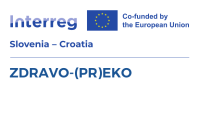
Project title: From promotion of healthy nutrition and ecological food production to a healthy population in the cross-border area
Project budget (ERDF co-financing): EUR 24,800.00
Project duration: 1. 3. 2025 – 30. 11. 2025
Project Partners: Općina Mala Subotica, Javni zavod za turizem, kulturo in šport Beltinci
The ZDRAVO-(PR)EKO project is jointly implemented by the partner organizations Municipality of Mala Subotica from the Međimurje County (Republic of Croatia) and the Public Institute for Tourism, Culture and Sports Beltinci from the Pomurje Region (Republic of Slovenia). In the project area, common territorial challenges that will be solved by project activities have been identified. They relate to the unfavorable health condition of the population in the context of overweight and diseases associated with poor-quality eating habits. The process of senility of the population has been identified and expressed in both regions, which is why the mortality rates are also increasing, and one of the reasons is the unfavorable lifestyle that negatively affect the health of the population.
With the aim of solving the aforementioned territorial challenges, the main project goal is to increase awareness and additionally educate the local population about healthy nutrition and healthy eating habits, ecological food production and healthy lifestyles through cross-border cooperation, mutual interaction of local communities and identified target groups. Awareness will be raised by organizing two public bilateral events in Mala Subotica and Beltinci through activities to raise awareness, encourage socializing, connect and exchange experience in order to continue cooperation between the involved organizations even after the project lifetime. The events that will be organized will increase the population’s awareness of the needs and potential of healthy lifestyles with the aim of improving health, which include healthy eating habits and habits of regular recreation or any form of physical activity. Therefore, the Sobočki Eco Fair – Fair of healthy food and movement promotion will be organized in Mala Subotica, while an event called the Island of Taste will be organized in Beltinci.
The events will be organised for the identified target groups of the project: the general public (local population of all age groups, with an emphasis on children and youth, the elderly population and other vulnerable groups), local associations and non-governmental organizations, and the local government, which as the organizer or co-organizer of the activity will acquire new knowledge and experience in the implementation of the project and the organization of public events, which will be the basis for the organization of similar events in the future.
Through the implementation of joint cross-border events, the main outcomes of the project will be achieved together with the project specific objective, which refers to encouraging citizens to recognize the importance of healthy eating, environmental awareness and physical activity, and encouraging their active role in promoting these values in their communities in order to increase awareness of the role of each individual in improving the health of the community, all through encouraging cross-border cooperation, building trust and cooperative relations between partners and other relevant institutions and organizations. The transfer of knowledge and available information between cooperating organizations, their sharing of experience as examples of good practice, and generally connecting with each other is crucial. The main outcomes of the project relate to newly created cross-border cooperation for a healthy population and the organization of joint cross-border events for a healthy population. The main result of the project are two cross-border events organized jointly by the project partners, which represent the basis for the development of further cooperation after the end of the project through the involvement of other relevant stakeholders and organizations in the cross-border area.
When implementing the project, the partners will use an interdisciplinary and integrated approach and will jointly implement activities, with continuous communication and ensuring visibility. It is the cross-border cooperation that will contribute to the exchange of best practices, through the past experiences of the partners and the acquired knowledge, the challenges that have been identified in the entire project area will be solved, regardless of the borders of the country. When solving the identified challenges, innovative approaches will be used in transferring knowledge and examples of good practice at the local level – from local stakeholder to local participant. The participants of the event will be actively involved through educational and informative workshops and public events where, along with practical examples, they will be able to adopt new knowledge and practices that will motivate them to introduce them into their daily habits. In addition, at the events, the participants will use specific and thematically adapted promotional materials that will serve as a guide for the residents of the cross-border region to adopt healthy lifestyle and encourage them to introduce lifestyle changes.
Source: application form SIHR00449
 Project title: Š(K)OLA 5.0 – Sharing best practices of edTech in classrooms
Project title: Š(K)OLA 5.0 – Sharing best practices of edTech in classrooms
Project budget (ERDF co-financing): EUR 12,800.00
Project duration: 1.7.2025 – 31.12.2025
Project Partners: Podjetniški inkubator Kočevje, REGIONALNA RAZVOJNA AGENCIJA Primorsko-goranske županije
Cross-border cooperation within project Š(K)OLA 5.0 will significantly contribute to networking, improvement of mutual trust in the cross-border area, exchange of experience of good practice, inclusion in the wider social community and encourage active participation from the earliest ages. Given the fact that cross-border cooperation does not exist, the effects of the project will positively influence the improvement of socio-economic relations, encourage active participation in the community, and significantly influence networking and cross-border cooperation, both among students, educational institutions and local/regional development institutions. The aforementioned will be achieved by the implementation of two workshops, the participants of which will be students of the 4th/5th grade of the elementary schools from bordering rural areas. The goal of the workshops is to familiarize students with content and specific knowledge in the fields of informatics, robotics and artificial intelligence through an innovative program. In addition to the students, workshops will also be organized for the accompanying teachers who will exchange their experiences, knowledge and teaching practice with their colleagues through the realization of the activities. The workshops will encourage the development of digital skills through the implementation of robotics and artificial intelligence workshops. In addition to the impact on the target group, the benefits of the project will also be implied on the wider cross-border community. The goal of the project is to stimulate students’ additional interest in acquiring new knowledge and skills through fun and games, introduce them to smart industry, rapidly growing technologies, prepare them for the future labor market and use of new technologies with the aim of their remaining in rural areas.
Source: application form SIHR00455

Project title: Days of Cross-border Artistic Amateurism
Project budget (ERDF co-financing): EUR 24,800.00
Project duration: 1.5.2025 – 30.4.2026
Project Partners: Centar za kulturu “Rudar”, Knjižnica – Kulturni center Lendava
The common challenge of the the program area addressed by the Mura CULTURE project relates to the reconnection of the local population of smaller towns, Mursko Središće and Lendava, both located along the borders of Međimurje County and Pomurska Region. The inhabitants of these border areas were significantly connected at a time when there were no state borders. Daily business, family, and friendly contacts were prevalent, involving the mutual use of various cultural content and events. In both places, public institutions – cultural centers were established in the meantime, serving as places for cultural and artistic activities and community gatherings. The opening of free movement within the Schengen Area for Croatia, along with the existence of cultural centers on both sides of the border and the presence of amateur cultural organizations on both sides, are the common advantages of this program area in the project aimed at establishing Days of Cross-border Artistic Amateurism.
The main goal of the project is to connect the local populations of Croatia and Slovenia by strengthening cross-border amateur cultural scenes through collaborative efforts between cross-border cultural centers and the participation of relevant cultural and artistic societies. The desired change is the mutual accessibility of cross-border culture for the local population as an instrument for building mutual trust based on the notion that “art knows no boundaries.” By organizing three bigger joint cross-border events, the project aims to foster mutual trust through better understanding of linguistic and cultural differences, creating a foundation for further cross-border collaboration among cultural centers after the project’s completion, formalized through agreements on continuing cross-border cultural cooperation.
The main outcomes of the project will be implemented cross-border collaboration through three jointly organized major public cultural events, organized by two partner organizations – the Cultural Center “Rudar” Mursko Središće and the Library – Cultural Center Lendava. Project activities are intended for the general public, including children and adult local residents, through various programs within events related to the amateur cultural scene. Partners will enhance their experience of mutual collaboration and project activities. Children will become acquainted with cross-border language through performances, and the adult audience will reconnect with cross-border language and culture, facilitating further motivation for connection. Cultural and artistic societies will have the opportunity to present their activities and network with each other.
The approach is to conduct all activities in a way that both partners are always involved in planning and implementing activities, regardless of where the activity takes place. Collaborative cultural and artistic organizations from both sides of the border, as well as program participants from both sides, will always be included. This systematically encourages the motivation of the local population in various social segments and creates a synergistic effect as a basis for further cross-border collaboration after the project’s completion. The networked actions of cultural centers, as a condition for their more efficient operation at the regional and national levels, add value to addressing common territorial challenges between Croatia and Slovenia by contributing to cross-border cultural cooperation, accessible and connected region, and strengthening a shared European identity based on multiculturalism.
The cultural centers in Mursko Središće and Lendava are public institutions with a wide range of activities in the field of cultural activities. Their organizational infrastructure allows for the implementation of various joint cross-border activities. In this sense, there are favorable conditions for long-term cross-border cooperation stimulated by the implementation of this project, especially from the perspective of cross-border proximity.
The role of Mursko Središće and Lendava as locations for cultural centers is crucial for the development not only of these cities but also of the surrounding areas in Međimurje County and Pomurska Region that gravitate towards these cities. In these areas, civil society organizations active in the field of artistic amateurism also operate, and their residents are visitors to the cultural center programs.
All three vertical and horizontal approaches to connecting the mentioned segments of local communities in this cross-border area of Međimurje County and Pomurska Region during the project’s implementation contribute to motivation and opportunities for further building mutual trust and.encouraging “from citizens to citizens” actions. There are possibilities for the multiplication of innovative approaches in a broader part of Međimurje County and Pomurska Region related to other cultural centers in those areas.
Source: application form SIHR00471

Project title: Cultural and gastronomic fair of cross-border traditions
Project budget (ERDF co-financing): EUR 24,800.00
Project duration: 30.4.2025 – 29.12.2025
Project Partners: Općina Donja Dubrava, Občina Dornava
The municipality of Donja Dubrava (CRO) and the municipality of Dornava (SLO) are two municipalities in a cross-border area with fewer than 3,000 inhabitants. Both municipalities are unique in that they nurture and preserve the tradition of their region, especially the cultural and gastronomic traditions. However, due to the COVID-19 pandemic that lasted from 2019 to 2022, residents of the cross-border area were deprived of physical contacts, communication, exchange of information and experiences, and, most importantly, visits to various fairs and events where residents of the cross-border area would connect and establish and deepen collaboration and understanding. Ultimately, the social isolation of the residents of the cross-border area resulted in isolation and the interruption of contact with the other side of the border. All of the above represents common challenges that the partners aim to address through the implementation of activities in this project proposal.
The main goal of this project is to build mutual trust and understanding among the residents of the CRO-SLO cross-border area by supporting cross-border cultural and gastronomic events. The project results are essential for the local community and residents of Donja Dubrava, Međimurje (CRO), Dornava and the Drava (Podravska) region (SLO), and by organizing joint public events, the project aims to establish a solid foundation for building mutual trust and understanding among the residents of the cross-border area, leading to positive changes such as intergenerational collaboration, joint learning activities, and increased awareness.
During the implementation of this project, the following outcomes will be achieved:
Organizations collaborating across borders with the aim of building mutual trust and understanding among the residents of the CRO-SLO cross-border area by supporting cultural and gastronomic events: The municipality of Donja Dubrava (CRO) and the municipality of Dornava (SLO) will collaborate and jointly organize and carry out public events on the themes of culture, gastronomy, and tradition of their regions on both sides of the border, with the goal of building mutual trust and understanding among the residents of the CRO-SLO cross-border area.
Jointly organized cross-border public events with the aim of building mutual trust and understanding among the residents of the CRO-SLO cross-border area: The municipality of Donja Dubrava (CRO) and the municipality of Dornava (SLO) will jointly organize and carry out two public events on the themes of culture, gastronomy, and tradition of their regions on both sides of the border, with the goal of building mutual trust and understanding among the residents of the CRO-SLO cross-border area.
As a result of the mutual cooperation and connectivity developed within this project, the municipality of Donja Dubrava (CRO) and the municipality of Dornava (SLO) will sign a Agreement on Future Cooperation, guaranteeing the continuation of collaboration, including joint project applications. All of this aims to collectively address common issues affecting both municipalities and to strengthen mutual trust and understanding among the residents of the cross-border area, thereby reinforcing the connection among them.
The benefits of this initiative will be enjoyed by the local population, local cultural and artistic societies, local agricultural producers, local authorities and institutions, the general public, and the Mura Region EGTS.
Furthermore, the organization of two public events (fairs) on both sides of the border, showcasing the cross-border cultural-gastronomic tradition, is of great importance for the cross-border area. This will lead to a valuable exchange of experiences, strengthened trust among residents, reduced prejudices, and cultural and social connectivity among all project stakeholders.
The joint organization of events between the municipality of Donja Dubrava and the municipality of Dornava is a novelty in Donja Dubrava and Dornava, considering that each municipality has traditionally organized its own events. Ultimately, cross-border collaboration has the potential to bring about sustainable changes at the local level, enhancing the quality of life for residents in both areas. In addition, the joint organization ensures a far greater and stronger positive impact on regional development compared to events organized exclusively at the local level.
Source: application form SIHR00483

Project title: Cross-border integration and cooperation of day care centers for children and young people
Project budget (ERDF co-financing): EUR 15,974.40
Project duration: 1.4.2025 – 31.10.2025
Project Partners: Društvo za strpne odnose Eksena, Udruga Centar za kulturu dijaloga
The Culture of Dialogue project addresses the common cross-border challenge between Slovenia and Croatia in the field of social welfare, where, due to the lack of knowledge of the cultural diversity of socially and materially disadvantaged children in the Slovenia-Croatia program area, there is misunderstanding and ignorance among children in the field of intercultural relations.
The general goal of the project is to learn about and exchange knowledge and experience in the field of social welfare programs and activities for children and young people. The expected change that we want to achieve with the Culture of Dialogue project is the acquisition of appropriate social skills and competences for controlling emotions and the strengthening of positive self-image in the target group of children aged 6 to 15 years, where through the promotion of learning about cultural diversity and the development of cross-border relations, it will contribute to better cooperation and understanding in the border regions and between the two nations in general.
The general goal of the project will be achieved through the cooperation of both partners in the preparation of two social care programs and the implementation of two three-day camps for children and adolescents aged 6 to 15, where the connection between Croatian and Slovenian children will be strengthened by offering them a pre-prepared and a structured social care program, where they will have the opportunity to socialize while creating, playing social games and various musical, sports and creative activities, the knowledge of which they will be able to implement in their everyday life. Organized camps will offer children and young people support in overcoming their hardships, acquiring appropriate social skills and competences for managing emotions and strengthening a positive self-image, where we will encourage learning about cultural diversity and develop cross-border relations in the Slovenia-Croatia program area.
The first camp will be held at the partner Eksena Association in their Eksena Day Center for Children and Youth in Šentjur, Slovenia, and the second camp will be held at the partner Association for the Culture of Dialogue from Croatia in their Day Center for Children called My place under the Sun in Rijeka in Croatia. Children of both partners and their mentors will be present at both camps.
This will strengthen trust and bonding between Croatian and Slovenian children during and after the project, and at the same time, their mentors will also be empowered. The project will thereby also contribute to cross-border development and benefit the wider community, as it will contribute to the reach hte visibility of the program in the wider public.
The original feature of the Culture of Dialogue project is that the social care mentors from both organizations will actively participate in the participation in the Interreg SI-HR program, who are in daily contact with the children and will prepare all the results of the project and implement them together with the children of both organizations. At the same time, 2 cross-border social care programs will be prepared in the project, which will serve cross-border development both during the duration of the project and after the project itself for both organizations and other housing organizations, such as day care centers for children and adolescents, family centers, multi-generational centers and schools.
The results of the project will be published on the website of both partners in both languages, where they will be permanently accessible to the general public free of charge. At the same time, we will introduce the results of the Culture of Dialogue project to all relevant stakeholders, such as day care centers for children and adolescents, family centers, multigenerational centers, as well as other educational centers and elementary schools in the program area, through various consultations, meetings, conferences, etc.
The Culture of Dialogue project will contribute to the visibility of the program by strengthening trust and cooperation between people so that the entire partnership will carry out joint activities based on the multifaceted connection of people and institutions across the border. In this way, people on both sides will connect, as through a joint initiative, innovative pilot activities in the field of learning about intercultural differences will be implemented and trust in the field of education and social care will be strengthened. The importance of the project will be visible through the cooperation between Slovenia and Croatia and will thus contribute to the reduction of cross-border barriers. All this will make it possible to activate the potential for a flexible and competitive region, as the project will contribute to a more connected and successful space and, consequently, to the strengthening of trust and cooperation between people living in the border area.
Source: application form SIHR00505

Project title: Connecting the cross-border area of Međimurje and Prekmurje through gastronomy and culinary tradition
Project budget (ERDF co-financing): EUR 24.800,00
Project duration: 1.4.2025 – 30.9.2025
Project Partners: Platforma za Društveni centar Čakovec, Kulturno turistično društvo Puconci
The ‘Čušpajz b(r)ez meje’ project is conceived as an innovative approach to enhancing intercultural communication and exchange in the cross-border area between Slovenia and Croatia. The primary goal of the project is to reduce cultural barriers, strengthening ties between Croatian and Slovenian partners from the city of Čakovec and the municipality of Puconci. Through joint gastronomy-related activities, partners will have the opportunity to exchange experiences related to culture and tradition, utilizing gastronomy as a powerful means of connection. One of the main challenges addressed by the project is the lack of continuous and structured cooperation between Međimurje and Prekmurje, despite their geographical proximity and historical connections. Over time, these two regions have developed certain links, but the intensity has not been constant or systematic, with collaborations being sporadic, uncoordinated, and not reaching a sufficient number of citizens. There is also modest knowledge of each other’s cultures and traditions which, although quite similar and sharing some cultural elements, are still sufficiently distinct. There is a noticeable gap in mutual understanding of everyday life, customs, cultural and culinary traditions, due to a lack of platforms and initiatives for connection, interaction, and joint activities. This limits the potential for synergy and joint development in the border area. Therefore, the project primarily aims to bridge this gap through joint activities focused on food as a universal language that is woven into our cultures and identities, representing home and family, and has great power to connect. Along with Slovenian and Croatian partners, the project will also include communities of foreign workers from so-called third countries, especially from the Philippines, Nepal, and India, who have been living and working in Međimurje and Prekmurje in recent years; are residents of these regions who contribute economically, culturally, and sociologically to the local communities where they live but are currently perceived differently and are very minimally involved in social life. The project thereby contributes to a broader understanding and acceptance of diversity, empowering the local community, and creating lasting connections among all participants who share living space on both sides of the border. The main outcomes of the project are the organization of two culinary festivals, one in Čakovec and one in Puconci, in which the entire local population and partner representatives will participate. These events will be opportunities to demonstrate cultural diversity through food, and also to create lasting connections among participants. The central events build on the previous experience of project partners in organizing similar activities – PDCCK organized the ‘Festival of Flavors – Taste Fest’, a pilot project in which foreign workers living and working in Međimurje cooked dishes from their national cuisines at a small culinary festival, aiming to meet and connect with the local population. KTDP, on the other hand, organizes a series of traditional events, the most important being Dödolijada, a competition in cooking dödoli, a dish specific to the Slovenian region of Prekmurje. Besides the two main events, several interactive educational workshops are planned where, in addition to preparing traditional dishes from Međimurje (trganci), Prekmurje (dödoli), and foreign countries (e.g., Nepalese momo, Filipino pancit, or Indian naan), participants will learn about the culinary traditions of different cultures, thus encouraging mutual learning and understanding, building trust, and strengthening connections among residents of the border area. Cross-border cooperation between Međimurje and Prekmurje is essential to strengthen the ties between the two regions that share similar cultural and historical roots. This cooperation offers a unique opportunity to build bridges, exchange experiences and best practices, and create joint initiatives that can have a significant impact on social cohesion and intercultural understanding, as well as on achieving greater impact and sustainability. The project aims to create a more inclusive and open society where different cultures not only coexist but actively contribute to enriching the shared social and cultural space, and this is the change expected from the implementation of the project. The project is innovative because it offers completely new events that are primarily aimed at connecting the inhabitants of Međimurje and Prekmurje as a border area, building trust and mutual understanding, and getting to know the cultures of both regions. These events provide people with the opportunity to get to know new, previously unknown dishes, as well as to learn how they are prepared, thus enriching the cultural life of the area, creating lasting connections among people of different cultures, encouraging international cooperation and understanding.
Source: application form SIHR00524
 Project title: Florijan se uči in zabava
Project title: Florijan se uči in zabava
Project budget (ERDF co-financing): EUR 24.800,00
Project duration: 1.4.2025 – 31.10.2025
Project Partners: Prostovoljno gasilsko društvo Jablane, Dobrovoljno vatrogasno društvo Nedelišće
Both partners are very well aware that if the work with youth is not built on a strong foundation, there may be a decline in social activity and an absolute decline in cross-border social cooperation. The main reason why we started the project and prepared it was because of our awareness that it is necessary to encourage young people to actively participate and cooperate at cross-border and social levels.
One of the main objectives of the project is to attract young people through games and socializing to more active participation in social cross-border activities and to attract new young members to the fire brigade, which is why we named the project with the acronym JUST 4 FUN.
In addition to the above, the JUST 4 FUN project is aimed at deepening cross-border ties, making the activities of partners more visible, and forging new ties, especially among young people, who are the future bearers of cross-border activities within the framework of the partnership. The project promotes the inclusion of young people in social activities at the cross-border level, the creation of ties between peers, and learning the basics of the languages of both cross-border areas. The project significantly contributes to the general objective 6.3: Strengthening mutual trust, especially by promoting measures related to people-to-people projects. Through the organization of two events, one for each partner, with joint organizational teams and mentors at both events, we are connecting the cross-border area, deepening cross-border cooperation and integration, and deepening and consolidating mutual trust for cross-border cooperation in the future and for future generations. The results of achieving this goal are as follows.
RCR84 6.3: Organizations that cooperate cross-border after the completion of the project, both organizations undertake to continue to cooperate on a cross-border level in the future;
RCO115 6.3: Public jointly organized cross-border events, as part of the project, both organizations will hold 1 pilot cross-border event each, which will also include the general public and not just the membership of the societies, and if necessary, they will also be upgraded and maintained in similar scopes and activities in the future.
RCO87 6.3: Organizations that cooperate across borders, and partner organizations will continue to cooperate across borders.
To bridge the language barrier between young people, the two organizations came up with an innovative approach that enables young people to learn the language of the partner organization through the animation activities of the fire brigade camp and the firefighting skills test for young people. Thus, as part of the project, a short SLO-HR language course will be held for young people at the events, or vice versa, an HR-SLO language course will be held on the Croatian side, which the partners will prepare to teach the young people the basics of the language of the partner cross-border association for basic communication. The result of this activity will be a common Firefighter’s SLO-HR and HR-SLO dictionary, which the young participants will receive at the events.
With the desire to increase the visibility of the activities and with the inclusion of a wider audience, especially at the events that the two partners will carry out through the project, the partnership decided on a joint approach to the communication plan and joint implementation of communication on the Internet, social networks, and media.
Source: application form SIHR00545
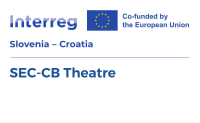
Project title: StagEd Connect: Enriching Education through Cross-Border Theatre
Project budget (ERDF co-financing): EUR 15,974.40
Project duration: 1.8.2025-28.2.2026
Project Partners: Zavod Kuskus, umetniška produkcija, Umjetnička organizacija Kuća Klajn
The artistic organizations Kuskus Institute from Slovenia and Kuća Klajn from Croatia are facing a lack of sustained and long-term collaboration, as well as a lack of organized joint events in the educational sector. The absence of such collaboration results in a shortage of cultural initiatives targeting participants in the educational process in the cross-border areas of Slovenia and Croatia. Additionally, the lack of collaboration affects cultural awareness, diversity, and mutual trust between organizations, potentially limiting the potential for developing lasting cultural initiatives in a cross-border context. The project activities aim to address this issue by organizing joint events in the border areas of Slovenia and Croatia to achieve long-term collaboration and build trust between the two artistic organizations. This collaboration will benefit participants in the educational sector and promote cultural diversity in the cross-border areas of Slovenia and Croatia.
The joint events organized by Kuskus Institute from Slovenia Kuća Klajn from Croatia include performances, workshops, and professional seminars aimed at participants in the educational sector to encourage cultural awareness and diversity. In this way, mutual trust between Kuskus Institute and Kuća Klajn will be built through the successful implementation of shared activities. The project will contribute to increasing cultural diversity in the cross-border area, not only by organizing events but also by increasing interest in culture among all participants in the educational process, especially students and teachers. The project will provide an educational experience for all participants in the educational sector through performances, discussions about performances, and workshops on creating original instruments, puppetry and contemporary circus. Cross-border cultural bridges will be created to connect the audience and artistic organizations from Slovenia and Croatia, fostering dialogue and exchange between cross-border communities.
Project activities include the organization of two jointly organized activities comprising four events, with one activity taking place at two locations in Slovenian border areas and the other at two locations in Croatian border areas. In Slovenia, a play from Croatia will be performed, and in Croatia, a play from Slovenia will be performed. After each performance, jointly prepared workshops and professional seminars on the themes of each selected play, preparation of the play with original instruments, puppetry, contemporary circus and similar topics will be organized. In this way, after becoming acquainted with a play from a neighboring country, participants in the educational process will receive practical information about specific knowledge that can be applied in the educational process. Different plays and workshops, as well as accompanying professional seminars, will be organized at each of the four events.
The project involves participants in the educational sector, focusing on primary schools and kindergartens in the cross-border areas of Slovenia and Croatia. Teachers and educators will gain specific pedagogical knowledge that they can apply in the educational process and exchange existing experiences with other teachers. On the other hand, students will have the opportunity to see a performance from a neighboring country, expanding their perspectives and fostering an interest in culture and cultural activities in the border areas of Slovenia and Croatia. The participation of teachers and other education professionals from both countries creates mutual exchange of experiences and different teaching methods.
Long-term collaboration enables regular and long-lasting cultural initiatives and activities stemming from the project. It also provides the opportunity for joint planning and securing financial support through various sources, including regional, national, or international funds. Long-term collaboration with local communities establishes stable relationships with local partners, contributing to the overall sustainability of the project. This project will have a positive impact on the education system in the region, encouraging diversity and tolerance among students, teachers, and parents. Performing plays from a neighboring country will continue to promote an inclusive cultural atmosphere that contributes to the long-term strengthening of cultural ties and mutual understanding.
Source: application form SIHR00568
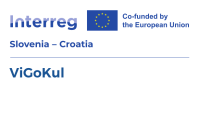 Project title: Vineyards and meadow orchards are an invaluable asset of our natural and cultural heritage
Project title: Vineyards and meadow orchards are an invaluable asset of our natural and cultural heritage
Project budget (ERDF co-financing): EUR 12,800.00
Project duration: 1.9.2025 – 30.4.2026
Project Partners: Jedro – zavod za razvoj socialne ekonomije, Gomila pri Kogu, so.p., Općina Štrigova
The main goal of the project ViGoKul is to strengthen mutual trust and connect organizations and residents in the cross-border region of Podravje and Međimurje in the field of preserving the cultural landscape of the cross-border wine-growing area. The project will establish a cross-border partnership of organizations that will contribute to the protection of nature and landscape and the sustainable development of the cross-border area with innovative approaches and solutions.
The area of implementation of the project activities is Vzhodne Slovenske gorice, which includes the territory west of the Slovenian-Croatian border and the hilly landscape east of the national border which is known as Međimurske gorice. The cross-border area is connected by a number of common geographical, cultural, developmental and natural characteristics, but above all the geographical location and the associated wine-growing tradition.
As early as the Austro-Hungarian period, meadow orchards were planted in this area, especially on steep and avalanche-prone areas and under vineyards. Thus, over time, the characteristic cultural landscape of this area was formed. Meadow orchards once adorned almost every homestead and vineyard. In the last thirty years, tall fruit trees have almost disappeared from this wine-growing area.
In addition, the polarization in viticulture in recent decades, in addition to the intensification of cultivation, has resulted in the abandonment of many areas that are not the most suitable for modern cultivation, and many small growers are also abandoning their vineyards.
Both processes are among the key reasons for the deterioration of the state of biodiversity and the increase in the share of agricultural land that is overgrown. As a result, the characteristic cultural landscape of the cross-border area is gradually disappearing, which reduces its aesthetic and ecological value and has negative consequences for the economy.
The preservation of the cultural landscape is the kind of content that requires cross-border cooperation, which, through numerous individual actions linked into a whole, enables the landscape to be beautiful and pleasant to live in and to work in. It requires awareness and motivation, as well as a challenging entry into the complexity of relationships between people, relationships with the environment and with agriculture.
The target groups of the project are viticultural and fruit growing associations, tourist farms, tourist organizations and other interested NGO-s and individuals.
The main goals of the ViGoKul project are:
• Establishing a cross-border partnership of landscape maintenance organizations
• Raising awareness, informing and educating residents about the environmental problems of the cross-border area
• Integration of the implemented activities into the tourist offer of the cross-border area
Expected results of the ViGoKul project:
1. Signed agreement on cross-border partnership of organizations for landscape maintenance, which will continue activities even after the end of the project – four signatories of the agreement
2. Adopted program of joint maintenance and further development of the cross-border fruit route implemented by the cross-border partnership
3. Three joint cross-border events held in the form of workshops on the topic of preserving the cultural landscape – 125 expected participants
4. Implemented joint cross-border educational fruit trail of native fruit varieties and species, connecting the Jerusalemsko ormoške gorice with the Međimurske gorice.
The cross-border partnership consists of the local community of the Municipality of Štrigova on the Croatian side and the social enterprise Jedro on the Slovenian side, which has a large collection-plantation of old autochthonous varieties of apples near the border and is active in the field of preservation and expansion of meadow orchards.
The cooperation of cross-border organizations in the field of preserving the value of the cultural landscape and improving biodiversity will have effects in several areas for the cross-border population. The project will have positive effects on the quality of life and the health of the inhabitants, the connection and cooperation of border organizations and the inhabitants of the area will be improved, especially in the joint solution of environmental and climate challenges. The joint cross-border educational fruit trail, as a form of green tourism infrastructure that will connect the cross-border area, will have beneficial effects on increased interaction and cooperation of residents and increased movement of tourist flows between the wine roads of the two countries.
The project is innovative because a common cross-border fruit route will be built, which will be maintained and upgraded by the residents as part of the cooperation of organizations even after the end of the project, and they will continue to cooperate and promote meadow orchards in the common cross-border area.
Source: application form SIHR00587
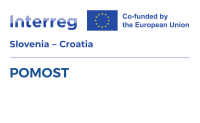 Project title: POMOST
Project title: POMOST
Project budget (ERDF co-financing): EUR 24,800.00
Project duration: 1.4.2025 – 31.12.2025
Project Partners: Občina Videm, Općina Bednja
The municipalities of Videm and Općina Bednja are smaller municipalities, nestled in less developed regions of their respective countries, facing challenges arising from natural factors, historical development, demographic changes, and social and economic conditions. Both municipalities confront challenges such as population decline, limited economic resources, and the need to preserve cultural identity. In this light, there arose a need for closer collaboration between the municipalities to address common challenges and strengthen the sustainable development.
The collaboration between the Municipality of Videm and Općina Bednja is not just a response to specific challenges but also an opportunity to devise shared solutions that enhance the interconnectedness of residents in both municipalities. Through cooperation, efforts are made to create synergy among different cultural, social, and economic contexts that characterize them. It is understood that only collective action can lead to sustainable solutions and establish strong bonds among residents while contributing to the preservation of local identity in both municipalities. The goal is to build bridges that transcend geographic and cultural differences, contributing to the long-term development and well-being of both communities.
Separated by less than 30 kilometers, with the need to cross a national border (which is now mainly “on paper”), the Municipality of Videm and Općina Bednja are already twinned and seek to enhance their collaboration, emphasizing the strengthening of mutual trust among people and the creation of sustainable connections between communities on both sides of the border. Despite their proximity, each municipality has its own characteristics and specialties, particularly in the fields of culture and cuisine.
Through this project, the municipalities focus on connecting, cross-border cooperation, promoting local offerings, and organizing joint events for future collaboration. This approach aims to have a positive impact on the local economy, mutual trust, and sustainability. The project intends to increase awareness among residents of both local communities about their cultural and culinary heritage, encouraging collaboration through joint event planning, cultural content exchange, and the involvement of local food providers and artists/cultural figures from both sides of the border.
The emphasis lies on mutual interconnectedness in the realms of cuisine and culture, with the goal of connecting residents of local communities, contributing to the sustainable development of both municipalities, and enriching cultural life on both sides of the border. Through the involvement of local communities in organizing both events, sustainable partnership relations will be established between the municipalities.
Source: application form SIHR00625
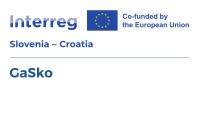 Project title: Firefighters for the Community
Project title: Firefighters for the Community
Project budget (ERDF co-financing): EUR 24,800.00
Project duration: 1.6.2025 – 31.10.2025
Project Partners: Prostovoljno gasilsko društvo Leskovec pri Krškem, Dobrovoljno vatrogasno društvo Radešić
Voluntary fire brigades are an important part of the local community, as they act as first responders in the event of natural and other disasters, maintain the safety of the local environment and their residents, ensure quick and effective action, and at the same time connect local residents, promote a sense of belonging and mutual assistance and solidarity among residents.
The project includes two important events in the field of firefighting, which, on the one hand, strengthen the safety and resilience of the area and its inhabitants, while on the other hand, they connect cross-border communities and promote the importance of the actions of firefighters in protecting people, property and the environment from fires and other disasters. With its activities, the project directly addresses the goal of strengthening mutual trust through measures to connect people and solve the challenges of the program area: building trust and a positive mindset, strengthening territorial cohesion and raising the quality of life of residents, especially after the covid-19 epidemic. The project includes all age groups, regardless of their social status or nationality.
The general goal of the project is to re-establish the international connection between the local communities and the fire brigades of Leskovec pri Krškem and Breznički Hum (Radešić), as a result of which an improved and updated twinning document was signed with the aim of long-term cooperation and further integration between the residents of both local communities by organizing cross-border events as well in the future.
Two key effects will be established in the project, i.e. the cooperation of two cross-border firefighting societies and the implementation of two cross-border events in the field of firefighting. Both events are designed holistically, as they include activities and workshops for children, the elderly and families, enable networking and improve the social skills of the participants, include active cooperation and promotion of the area from the point of view of culture, music, cuisine and handicrafts, and lay the foundations for further cooperation of other organizations of this areas, while at the same time ensuring the professionalism and quality of firefighting work, by transferring knowledge and practices between the associations and to the population.
The bottom-up principle was taken into account when planning the project. By closing and preventing social events, the covid-19 epidemic had a negative impact on the population, especially on children and the elderly, and on the development of their social skills. The negative impact is also evident in the two participating societies, as it made it impossible for them to carry out training and ensure active and quality leisure time. As a result, today they are faced with a lack of youth among their members, which threatens their existence, as well as the safety of the local environment and population. The project thus establishes an innovative cross-border cooperation between two fire brigades who enjoy trust and belonging in their local communities, and through cooperation contribute to the development and growth of societies and populations, promote diversity and build bridges between people.
The partnership responds proactively to the challenges of the program area with designed events that connect rural traditions (intangible heritage – village games, culture, music, cuisine, handicrafts) with the fire service. In both areas, it is a novelty and a creative approach, and at the same time the result of the project, i.e. the signed updated document on the cooperation (twinning) of the partner fire brigades ensures further cooperation and strengthening of established ties.
The importance of the implementation of events is reflected in:
– the need to raise public awareness about safety, which also includes informing about fire hazards in households, the correct use of fire extinguishers and planning exits in the event of an accident,
– connecting local communities, which allows fire brigades to introduce themselves to their neighbors, learn about safety together, thereby strengthening the sense of community and mutual assistance,
– promoting firefighting work, encouraging interest in the fire service and strengthening the sense of solidarity and volunteerism,
– training and readiness with demonstration activities, such as fire brigade demonstration exercises, workshops and equipment demonstrations,
– strengthening awareness of the importance of solidarity and mutual help, highlighting the values of self-sacrifice and caring for others, ensuring a safe environment and a quality life.
Source: application form SIHR00641
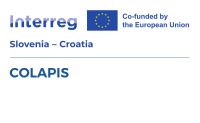 Project title: The River Kupa Connects Us
Project title: The River Kupa Connects Us
Project budget (ERDF co-financing): EUR 15,360.00
Project duration: 1.5.2025 – 31.12.2025
Project Partners: Javna ustanova NATURA VIVA, Javni zavod Razvojno informacijski center Bela krajina
A common challenge faced by residents of the cross-border area is the lack of cooperation and exchange of best practices, which leads to misunderstanding and a lack of trust among residents. To facilitate cooperation and establish mutual trust among the population of the cross-border area, the project focuses on the Kupa River as a symbol that connects the population. It is necessary to establish cooperation among the residents of the border area to preserve and nurture this region, increase monitoring and the number of necessary interventions in nature, and promote the use of the Kupa River more frequently for recreational and social purposes.
COLAPIS is a Type 1 project under IP SI-HR, encompassing the organization of two bilateral events that will be implemented in the cross-border program areas of Croatia and Slovenia, specifically in Karlovac County in Croatia and in the Southeast Slovenia region. The lead partner of the project is Javna ustanova NATURA VIVA (JUNV), and the project partner is Razvojno informacijski center Bela krajina (RICBK). The main goal of the project is to hold two bilateral events that will contribute to building mutual trust among the population of the cross-border area, strengthening their connection, and fostering cooperation.
The expected outcome of the project is the establishment of deeper friendly ties among participants from the cross-border area and the encouragement of long-term cooperation through the development of new projects and programs. The primary purpose of implementing project activities is to establish communication, social interaction, and mutual trust, as well as to foster cooperation through joint action and discussion. Additionally, it aims to preserve and protect nature, which is a common asset for both countries. The activities are structured according to the principles of inclusiveness, active participation, and responsibility for the environment and climate.
The project consists of two main activities with the following sub-activities:
A 1. Raising awareness among the local population about the importance of environmental conservation and protection
A 1.1. Cross-border cooperation for the protection and conservation of the Kupa River – Educational river descent
A 1.2. Wings of the Kupa River – Conservation of birds and nature through education and field observation
A 1.3. Cross-border citizen engagement through social activities
A 2. Sports event – Rafting on the Kupa River
A 2.1. Organization of rafting on the Kupa River
A 2.2. Quiz about the Kupa River and certificate distribution
The target group consists of young people aged 14 to 35, who are interested in cross-border engagement through recreational activities. Participation is open to all interested stakeholders, with a particular focus on young people to educate them at an early stage of life about the importance of nature conservation and actively involve them in positive ecological practices.
The total number of participants in this project is 150. Within Activity A 1, a total of 110 participants will take part, with:
40 participants in sub-activity A 1.1.
40 participants in sub-activity A 1.2.
30 participants in sub-activity A 1.3.
Within Activity A 2, a total of 40 participants will take part in sub-activities A 2.1. and A 2.2.
The activities contribute positively to the program outcome indicators RCO 87 (Organizations cooperating across borders – cooperation between two organizations) and RCR 84 (Organizations continuing cross-border cooperation after project completion – continued collaboration between two organizations post-project). Through this project, a positive program outcome will be achieved by involving two organizations from the cross-border area, establishing cooperation that will continue beyond the project’s completion, and organizing two bilateral events within the program area.
The project activities have been developed through joint efforts of the project partners, using an approach based on identified cross-border needs and creative and relevant topics.
The results and outcomes of the project will primarily benefit the local population, as they will contribute to building mutual trust and understanding among residents and will encourage connection and cooperation through educational, sports, and social activities, ultimately aiming for a healthier environment in their local area.
The total eligible project costs amount to €19,200.00, of which €15,360 is requested for ERDF co-financing. The lead partner will contribute €2,048, while the project partner will provide €1,792.
The planned project duration is 8 months.
Source: application form SIHR00673

Project title: Youth Without Borders – Building Trust through Collaboration
Project budget (ERDF co-financing): EUR 24,800.00
Project duration: 1. 5. 2025 – 30. 11. 2025
Project Partners: Općina Mače, Občina Sveti Andraž v Slovenskih goricah
The project oMLADINA – “Youth Without Borders – Building Trust through Collaboration” addresses the lack of collaboration and networking among the local population on the cross-border level, with a focus on children and youth from two municipalities in Croatia and Slovenia. Knowledge exchange, participation in joint activities, and language learning will contribute to increased mutual understanding among youth from both countries, fostering common interests, and expanding their horizons through the appreciation of diversities. Through two public cross-border events, the project will strengthen connections between communities within a year and lay the foundation for future collaboration. Over the course of a year, two public cultural and artistic events will be organized – one in the Municipality of Mače and one in the Municipality Sveti Andraž v Slovenskih goricah. The program of both events will include performances by folklore and artistic groups, mutual learning of Slovenian and Croatian languages, and joint learning about the importance of solidarity in crisis situations, exemplified through firefighting exercises. The project will result in a strong partnership between the two municipalities, leading to new events, projects, and initiatives in the future. Children, youth, and the local population will establish good neighborly relations, laying the foundation for continued socializing and cooperation. The project will strengthen both the programme area and cross-border area by investing in people. The innovative element of the project lies in its focus on building trust from an early age – involving youth and children will result in long-term collaboration between the two local communities from Croatia and Slovenia.
Source: application form SIHR00313
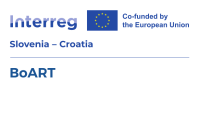
Project title: Artistic challenges of cross-border heritage: A tale of two galleries
Project budget (ERDF co-financing): EUR 8,192.00
Project duration: 1. 6. 2025 – 30. 4. 2026
Project Partners: Galerija Božidar Jakac – Muzej moderne in sodobne umetnosti, Pučko otvoreno učilište Samobor, Zaklada Zlatko i Vesna Prica
The BoART project is designed to address the lack of awareness of common cultural heritage on both sides of the border. Our activities are aimed at younger children (1st to 8th/89th grade) who are not sufficiently familiar with the artistic heritage and the tradition of cooperation in border areas from the past. As a concrete example of this heritage, we highlight the art exhibition of Zlatko Price held in 1971 at Lamut’s Art Salon in Kostanjevica na Krki, now part of the Gorjup collection at the Božidar Jakac Gallery.
Although the Schengen regime facilitates border crossing, it remains insufficiently present in everyday movements and school activities. By involving students from both sides of the border in collaboration at events, we aim to increase awareness of the importance of common heritage and emphasize the need for mutual learning and gaining experiences.
To achieve these goals, we are developing joint educational material that will serve as a guide for conducting creative and artistic workshops. The material will address the need for the design of programs and exchanges on both sides of the border and promote understanding of artistic heritage through theoretical and interactive methods. Through the project, we aim to buildconnections, encourage intercultural understanding, creativity, and collaboration.
Source: application form SIHR00350
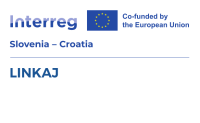
Project title: Culture link: LINKAJ (LINk Kajkaviana And public library Šmarje pri Jelšah)
Project budget (ERDF co-financing): EUR 15,974.40
Project duration: 20. 3. 2025 – 19. 12. 2025
Project Partners: Kajkaviana – društvo za prikupljanje, čuvanje i promicanje hrvatske kajkavske baštine, Javni zavod Knjižnica Šmarje pri Jelšah
The association Kajkaviana from Donja Stubica (HR) and The Public Library Šmarje pri Jelšah (SLO) have jointly designed the project “Culture link: LINKAJ (LINk Kajkaviana And library Šmarje pri Jelšah)” based on a common interest in culture and heritage as a link that opens space of communication with the aim of deepening the understanding and mutual trust with stronger connection between the inhabitants of the Krapina-Zagorje County and the Savinjska Region. The project aims to share experiences and examples of good practice in the activities of improving cultural life in the community, and at the same time draw attention to the links that connect the above-mentioned regions with the aim of reducing mutual differences through cooperation and encouraging social, economic and territorial cohesion.
The main challenge of the project is set so that the participants are not just passive observers of the events that someone organizes for them, but by actively involving citizens in the exchange of cultural content, the attractiveness of the planned content is increased. The partner institutions will only be coordinators of four cross-border events in which the local population becomes the main actor in the exchange of knowledge and experience with the aim of encouraging mutual trust by acting “from citizens for citizens”. At the same time, the focus is on the following questions: how well do we know each other and understand each other linguistically, what are we proud of or what would we like to present to our neighbors as particularly valuable and important from our tradition and contemporary cultural activities? The LINKAJ project will include elements of cultural diversity through the example of contemporary literature, but also folk legends, customs and traditional skills in order to promote inclusivity and celebrate the region’s rich cultural heritage, which in the past included much greater connectivity based on traditional pilgrimage routes. The most important communication messages conveyed by the LINKAJ project are: historical links between the above mentioned areas exist, cultural heritage is rich and diverse and it is important to preserve and promote it for future generations, and with the planned program that includes 4 cultural events, selected heritage examples will be presented, all of the above proves that the mentioned regions have a lot of opportunity for future cooperation.
Partner institutions operate in smaller towns that are geographically challenging areas for the organization of cultural content – unlike big cities. Insisting on organizing programs in smaller communities is particularly important for all those who cannot meet their cultural needs due to socio-economic status and economic barriers, and such programs additionally create opportunities that enable the inclusion of various interest groups and local non-governmental organizations, local small and medium-sized companies and craftsmen, which opens up opportunities for further cross-sectoral cooperation. All of the above proves that the LINKAJ project promotes the important principle of inclusion.
Through a minimum of 4 meetings with high-quality cultural content, it will be created a devoted group of participants from the area of activity of the Kajkaviana association and the Šmarje pri Jelšah Public Library, who will become familiar with the cultural and heritage values of the region where the partners operate and be aware of common linguistic links and cultural values of which they are rightly proud. The aforementioned group will be the starting point for future cooperation in new projects and proof of well established neighborly relations, and the partner institutions will strengthen their cooperative relations during the implementation of the project and create a solid foundation for further cooperation after the end of the LINKAJ project.
Source: application form SIHR00393
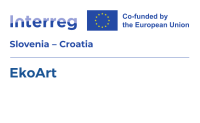
Project title: Strengthening connection and trust in the implementation of artistic activities
Project budget (ERDF co-financing): EUR 8.192,00
Project duration: 1. 4. 2025 – 31. 12. 2025
Project Partners: Likovno udruženje Čakovec, Glasbeno društvo Ivo-As
The project is aimed at the area on the Slovenian side: Podravska and Pomurska regions and on the Croatian side in the Međimurje county on citizens over 54 years of age. How economic and cultural cooperation between Slovenian and Croatian citizens has existed in this area for decades, which has been in a slight decline since the independence of each of the two countries. The whole situation culminated at the beginning of the pandemic, when all contacts were considerably reduced. The strengthening of the protection of the European Union through the application of the Schengen Agreement made the cooperation of citizens from both countries even more difficult. These new forms of communication between citizens, i.e. the reduction of communication, were most felt among people over 54 years of age who had long-term interactions of cross-border connections (economic, family, etc.).
The main goal of the project is the establishment of cooperation between project partners and citizens aged 54+ from both sides of the border, which connects artistic and creative expression and common interests. The target group is connected by awareness of ecology and the desire for new knowledge and new values. Through 2 joint events for a total of 80 citizens 54*, important information will be provided about the importance of nature protection and the establishment of sustainable management mechanisms, from which the local population will benefit the most.
The main outcomes of the project are the establishment of cooperation and connection between partner organizations and participants in joint events. Through implementation, agreements on further cooperation between the Čakovec Art Association and the Ivo-As Music Association will be signed. By including in the project itself other associations that also have a target group of people over 54 years of age.
The implementation of the project will also affect the citizens of local communities through interaction with citizens from other countries and the sharing of their knowledge. All other citizens who will be indirectly familiar with the project through physical contacts with citizens involved in the project or through various channels of information transmission (media, social platforms on the Internet) will develop a desire to increase the quality of life. This will make it possible to participate in some new projects and activities that will bring satisfaction to the citizens, and thanks to this, the state of health of the citizens will also improve. All other citizens who will be indirectly familiar with the project through physical contacts with citizens involved in the project or through various channels of information transmission (media, social platforms on the Internet)
Cross-border cooperation is necessary because it contributes to the members of the target group continuing to socialize not only after the education and workshop, but also by exchanging contacts and socializing in future events that the project partners have agreed upon during the project planning itself. In this way, through meetings, new topics and interests for further cooperation are opened, data of citizens participating in the project are exchanged while respecting data protection (GDPR) and experiences are shared that create new friendships for the future period. By arranging new educations and workshops, the sustainability of the project is ensured in some new future collaborations.
What is new in the project is the finding and use of ecological materials when creating works of art.
Source: application form SIHR00414
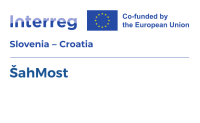 Project title: Chess bridges between Lendava and Čakovec
Project title: Chess bridges between Lendava and Čakovec
Project budget (ERDF co-financing): EUR 24.800,00
Project duration: 1.5. 2025 – 31.10.2025
Project Partners: ŠAHOVSKA ZVEZA SLOVENIJE, ŠAHOVSKI KLUB “STRIDON” ŠTRIGOVA
The Slovenian Chess Federation as the leading partner and the Chess Club Stridon as the project partner will jointly organize two major cross-border events with chess content, one in Lendava and one in Čakovec. The events are designed to be attractive to a wider audience, both for those familiar with chess and those who are not. Special attention will be given to children and the elderly. In the areas of Lendava and Čakovec, we will facilitate people from both sides of the border to get to know each other, connect, and build mutual cooperation. We will ensure that participants from the entire cross-border area are evenly represented at both events.
The project aims to establish new connections among the residents of the Lendava and Čakovec municipalities and strengthen mutual trust, with the goal of increasing mutual cooperation. At the same time, we expect an agreement for further cooperation between at least two organizations (at least one from Slovenia and one from Croatia). The events will be organized in accordance with sustainable principles.
The project has two main impacts: cross-border cooperation between the project partners and the implementation of two public cross-border events. The impacts are aligned with the project’s goal and are intended for the residents of the cross-border area and organizations working for the residents of this area. The main benefit of the project will be for the residents who attend the events and establish new contacts or renew old ones with residents from the other side of the border, enabling them to have a longer-lasting and closer connection that positively influences the quality of life along the border.
The project is planned to use chess as a fun way to enable socializing and getting to know people living along the border. There is also a significant emphasis on ensuring that residents from both sides of the border participate in both events in as equal numbers as possible, facilitating cross-border partnership.
Chess, as one of the world’s most popular game, has repeatedly proven to be an excellent tool for connecting people of different ages, languages, nationalities, beliefs, and orientations. Considering that this potential has not yet been fully utilized in the municipalities of Lendava and Čakovec. We aim for the residents of this area to use chess to build new and stronger interpersonal connections.
Source: application form SIHR00429
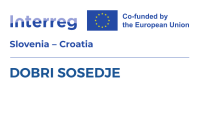 Project title: GOOD NEIGHBORS – TOGHETEHER WE BUILD A CROSS-BORDER COMMUNITY FOR A BETTER TOMORROW
Project title: GOOD NEIGHBORS – TOGHETEHER WE BUILD A CROSS-BORDER COMMUNITY FOR A BETTER TOMORROW
Project budget (ERDF co-financing): EUR 24.800,00
Project duration: 1.5. 2025 – 30.4.2026
Project Partners: JEZERSKI HRAM, ZAVOD ZA OHRANJANJE NARAVNE IN KULTURNE DEDIŠČINE, CERKNICA, SLOVENSKO KULTURNO DRUŠTVO GORSKI KOTAR
Common challenges:
– alienation of people in the cross-border area of the Primorje-Notranjska and Primorje-GorskiKotar regions
– no cooperation in the cross-border area, neither between individuals nor between organizations
– no friendly connections between individuals and no business connections between organizations
– target groups no longer know the common history of the area,the cultural heritage of the cross-border area
– no motivation to deepen relations with the cross-border area
– no opportunity to connect and cooperate, to overcome language barriers by socializing
– not enough thematic events that would include and combine culture and sport in the cross-border area
– sustainable development is not recognized as a priority and no good sustainable practices have been identified in
the cross-border area in the field of culture and sports
– no form that would connect organizations by content, e.g. into the network, with which they could
strengthen power in the sector
The general goal/changes:
– establishing/improving neighborly relations of residents – target grooups. By organizing events that deal with the topic of common history and cultural heritage and encourage an active lifestyle, we build mutual bonds and trust for further cross-border cooperation. Target groups need results. We aim to change behavior, awareness, knowledge and establish long-term cooperation.
Main effects/benefit: will be used after the project and will have a lasting impact on the cross-border area. Lasting impact is ensured through users – target groups, who will incorporate the mentioned effects into their everyday, educational, social or business life. All effects strengthen mutual trust by learning about common values and a common environment.
New behaviors/awareness: the representatives of the target groups will use them in further activities in their daily life. For elementary school students, new knowledge means new opportunities for integrating cultural heritage into new projects and learning. For the general public, it represents new opportunities for tourism and broadening horizons. For interest groups, new behaviors represent new opportunities for business connections with a starting point in sustainable development, for new projects, topics for cooperation.
New knowledge, skills, abilities in the field of culture, language and sports in the cross-border area: target groups will use them for the development of new products (traditional knowledge of processing wood, wool, other materials from nature,…), for new projects in schools (students transfer new knowledge to others).
New friendships/acquaintances: the strong social effect of new friendships and acquaintances will be used in the long run by all representatives of the target groups. It enables them to overcome loneliness by socializing, business connections between organizations with sustainable development themes, opportunities for new cultural and sports events. The strength and reason to persist in the countryside, the purpose of preserving the population of the cross-border (less developed) area.
Established new connections between organizations: they enable new projects, new contents, strengthened position of organizations in the area, greater influence of united organizations both in the fields of culture and sports.
The exchange of knowledge and good practices between organizations in cross-border areas is very valuable for organizations. Organizations improve their operations, they know how to emphasize the importance of sustainable development and its elements in their services and products, they design new projects, new cross-border products based on culture and sports.
The planned approach is the implementation of events after the temporary identification of content, motivation for participation and after event activities with the aim of creating a positive and inclusive climate for long-term cooperation even after the end of the project. The need for cross-border cooperation is identified and also perceived in practice – people in the cross-border area need events to get to know each other and socialize, they have a need to get to know the contents of culture and sports in the area as areas that bring them together. They have a need for connections between organizations, to strengthen the contents, joint performance for greater influence in local and regional structures. With this, the need to position the area as important, rich in natural and cultural resources, opportunities for development, new jobs based on elements of sustainable development.
Theh approach that we use is new: we solve the problem from the bottom up. By the people for the people. The contents of the project are combined in an innovative way – the fields of culture and sports are usually not considered together. The principle is new for the cross-border area, both in terms of content and organization, as there are no such events in regions.
Source: application form SIHR00446
 Project title: EU4Crafts
Project title: EU4Crafts
Project budget (ERDF co-financing): EUR 14,336.00
Project duration: 1.4. 2025 – 31.10.2025
Project Partners: Dvor Trakošćan, Posavski muzej Brežice
Common challenge
The border areas of SIovenia and Croatia have nurtured and still nurture similar forms of various cultural and craft traditions. Old crafts are almost identical and differ only in techniques or use of different materials. In the past,numerous handcrafts played an important economic and social role for local population in the entire area, while today fewer and fewer people are engaged in certain handcrafts and young people show no interest in them.
The modern era and its lifestyle have called into question the survival of intangible cultural heritage. New media and lifestyles are often focused on the future, while forgetting importance of the past. This has led to the fact that today many customs are slowly falling into oblivion. Since intangible heritage is transferred from generation to generation, involvement of the local population is a very important factor in the survival of tradition. Individuals are these who, with the cooperation of cultural organizations, can revive spirit of the past and strengthen the sense of cultural identity of individuals and society. Therefore, it is really necessary to preserve and continue to transmit cultural heritage to future generations, so that they can further transmit knowledge to those generations that are yet to come.
According to the above, the project will directly contribute to solving 3 challenges:
1. Insufficient knowledge of the cultural heritage of the population in the cross-border area
2. Insufficient encouragement of intergenerational solidarity through joint socializing and learning between younger and older people
3. Insufficiently developed awareness of the cross-border population about the importance of preserving cultural heritage
Overall objective
Through joint cooperation and transfer of knowledge, contribute to the preservation of traditional skills and crafts that are falling into oblivion and strengthen the quality of life of the population in smaller communities on both sides of the border by creating a sense of community and encouraging the population to share and nurture handicrafts. This will deepen mutual trust and understanding among residents and strengthen the connection between them, as well as improve cooperation between project partners.
Main outputs
The project activities will generate following outcomes:
– Established cross-border cooperation and connected citizenship through transfer of knowledge and skills in field of cultural heritage preservation
– Jointly organized cross-border events for children, young people, families and elderly in order to promote contacts, increase connectivity and interaction between people on both sides of the border
The combination of planned outcomes will result in a contribution to preservation of traditional skills and crafts through intergenerational learning about importance of cultural heritage and richness of the cross-border area, significant for preservation of cultural heritage and increasing quality of life of population on both sides of the border.
Cross-border cooperation
Considering the historical circumstances from the Baroque era, project cross-border area has many common characteristics that present similar challenges and that have influenced the development of the area. The use of intangible heritage plays an important role in preservation, research and presentation of this heritage. Through exhibitions, workshops, concerts, theater performances, interactive programs and other forms of interpretation, visitors are offered opportunities for a deeper and more emotional understanding of cultural traditions of a region. However, such action remains internationally unnoticed, and the project can only be established by acting across the border. These borders directly and indirectly affect the lives of citizens, taking into account the fact that more than one-third of citizens live and work in border areas of Europe. Cross-border cooperation will encourage overcoming obstacles and improving the quality of life of residents of border regions. Local contacts between people on both sides of the border will be established, new partnerships will be launched, exchange of experience and building trust will be promoted.
Innovation
The project includes innovative solutions that will enable heritage of the project area to be presented in a different, educational and attractive way in order to encourage younger generations to preserve handicraft heritage.
This primarily refers to the activity of creating an interactive bilingual booklet for children through which they will learn about Baroque era, culture of living and customs in a fun and interactive way. The same will represent educational material intended for all target groups, especially children, and an online version will be available on social and official websites of the partners. Furthermore, handicraft workshops will encourage the use of natural and recycled materials and in that way adapt to today’s way of life.
Source: application form SIHR00450

Project title: Feel health, heritage, and nature through the experience of Istrian olive oil – sustainable networking for a “green” future
Project budget (ERDF co-financing): EUR 24.800.00
Project duration: 1.4.2025 – 30.9.2025
Project Partners: Terra Centuria – zadruga za razvoj podeželja z.b.o., socialno podjetje, Institut za poljoprivredu i turizam, Udruga maslinara “Olea” Tar
The ISTRIAoilFEST project highlights olive cultivation, which represents the fundamental fabric of the Istrian landscape and culture. Olive cultivation, as a typical regional industry, extends beyond its economic significance, delving into the depths of health, ecology, and cultural heritage in Slovenian and Croatian Istria. Olive oil is not merely a culinary ingredient but a precious elixir carrying medicinal and preventive properties for human health. Ecologically produced olive oil reflects respect for the land and biodiversity, promoting sustainable practices that preserve the environment and the distinctive cultural landscape of this cross-border region. The importance of olive cultivation is reflected in the preservation of ancient olive varieties, traditional cultivation methods, and its role as a significant element of Istrian cultural identity.
Olive cultivation and olive oil are not just historical legacies but a living tradition passed down from generation to generation, a process that will be further facilitated by the ISTRIAoilFEST project. Within the project, two cross-border events focusing on Istrian olive oil will be held, one in Slovenian Istria and the other in Croatian Istria.
The ISTRIAoilFEST project addresses territorial challenges and opportunities in the program area, expressing the desire for connection and the strengthening of ties and trust among local residents of Slovenian and Croatian Istria in the field of olive cultivation, as a traditional industry in Istria, and in familiarizing themselves with the quality of Istrian olive oil, as an elixir of health and an essential traditional culinary ingredient. Although olive cultivation is on the rise in Istria, especially in Croatian Istria, without inspiring the younger generation, it still faces the risk of industry abandonment and the neglect of old olive groves. This not only signifies the abandonment of the industry but also the decay of the traditional Istrian cultural landscape and consequently the reduction of biodiversity.
The main goal of the ISTRIAoilFEST project is to strengthen cross-border ties between people in Slovenian and Croatian Istria through the gathering of all generations for learning and exploring the quality of Istrian olive oil, aiming to encourage cross-border transfer of ecological practices and the intergenerational transfer of this exceptional Istrian tradition. A long-term cross-border partnership will also be established to promote ecological practices in olive cultivation and the preservation of the cultural landscape of olive groves and biodiversity in Istria.
Two major cross-border events will be organized within the ISTRIAoilFEST project, impacting residents of the cross-border area and other project target groups. One project event will take place in Slovenia, while the other project event will be in Croatia. Both cross-border ISTRIAoilFEST events will be cultural-environmental events involving the gathering of residents at the cross-border presentation and tasting of organic olive oils, along with accompanying activities of learning and awareness-raising about ecological olive cultivation and participation in educational content such as guided tours of olive groves, olive planting, and experiments with olive oil. All project partners will actively engage and participate in the organization of both cross-border events.
Through the shared cultural-historical and geographical connection of Slovenian and Croatian Istria and the common cross-border heritage of olive cultivation and the tradition of using olive oil in Istria as a cross-border geographical region, there is a justified need for cross-border cooperation among project partners and a desire to establish a long-term cross-border partnership to preserve the Istrian olive grove landscape as the fundamental fabric of the Istrian landscape and maintain this invaluable source of biodiversity for future generations.
The innovation of this project is evident in the fact that, at these events organized on the Slovenian and Croatian sides of Istria, the main focus will be on ecological olive cultivation and organic olive oils, which is a new, but from the point of view of environmental and climate responsibility, a very important practice at such events. Another innovative element of the project is the active involvement of children, kindergartens, and schools in these events. Children will be actively engaged in the project by creating artworks on the theme of olives and olive oil, visiting olive groves for olive planting, tasting olive oil, and conducting experiments with olive oil. The aim is to instill a passion for olive cultivation in these young generations from an early age, which is crucial for the transfer of the olive cultivation tradition from generation to generation.
ISTRIAoilFEST – Experience health, heritage, and nature through the experiencing of Istrian organic olive oil – sustainable networking for a “green” future!
Source: application form SIHR00466
 Project title: Sosed pokaži kaj znaš
Project title: Sosed pokaži kaj znaš
Project budget (ERDF co-financing): EUR 24.800,00
Project duration: 1.4.2025 – 31.10.2025
Project Partners: Kulturno-umjetnička udruga “Seljačka sloga Nedelišće”, Prosvetno društvo Središče ob Dravi, Kulturno društvo Obrež
The focus of the Project entitled “Sosed pokaži kaj znaš” (“Neighbour, show us what you know”), abbreviated as “Pokaži kaj znaš” (“Show us what you know”), is to foster mutual trust and understanding among the residents of the Interreg SI-HR cross-border region. Before the establishment of the borders, the associations were closely linked. Their connection was actually so strong that at one time they shared the same leader and rehearsed the same folklore programme, even though their traditional dances are different. All the three associations in the Project belong to the Alpine Region and the fundamentals of the dance are the same. After the establishment of the borders, everything changed. The associations grew apart and their bond dwindled. When the borders finally reopened and the possibility for cooperation was looming, we were faced with a two-year standstill caused by the Covid-19 pandemic due to which the borders were closed and bans on public and private gatherings were imposed. When the end of the Covid-19 global health emergency was declared, the time finally arrived for free public and private gatherings, and the borders reopened, which created the opportunity to renew cross-border cooperation between cultural and other associations.
The main objective of the Project “Neighbour, show us what you know” is to connect and foster the cooperation among the three associations in the cross-border region. The Cultural and Artistic Association Seljačka sloga Nedelišće (Nedelišće Peasant Unity), as the lead partner of the project from Croatia, and the project partners Prosvetno društvo Središče ob Dravi (Središče ob Dravi Education Centre) and Kulturno društvo Obrež (Obrež Cultural Society) from Slovenia will jointly participate in the project development, implementation and financing. The focus of the project is on jointly organised cultural cooperation between the associations, which will foster their cooperation and bring the local population together. With this project, our aim is to establish a long-term cooperation between the cultural associations involved in the project. By renewing the cooperation between the cultural associations which are partners in the project we will achieve mutual trust and understanding among the residents of the border areas.
The project will enable a transfer of knowledge and experience of the associations involved in the project through two project activities, whereas joint performances will enable fostering of mutual trust and understanding among the residents.
Source: application form SIHR00476
 Project title: Organization of eco fairs and events for the local population of Štrigova and Razkrižje municipalities
Project title: Organization of eco fairs and events for the local population of Štrigova and Razkrižje municipalities
Project budget (ERDF co-financing): EUR 24,800.00
Project duration: 1.5.2025 – 31.10.2025
Project Partners: Turistička zajednica Općine Štrigova, Občina Razkrižje
The project “Organization of eco fairs and events for the local population of Štrigova Municipality and Razkrižje Municipality in the cross-border area of Međimurje County and Pomurska Region, the acronym of the project Local4Locals, is focused on building trust between border municipalities and the population. The main goal of the project is to build mutual trust and understanding between the target groups of the cross-border area by organizing an eco market in Štrigova, a fair of domestic products in Razkrižje and a joint gastronomic event at the border crossing Gibina, which will contribute to better connectivity and cooperation of stakeholders in the local border area. A common challenge that is being addressed is the reunification of the local population after the closing of the border. The Schengen border greatly influenced and changed life in the area of neighboring municipalities because the residents of neighboring regions have always been very connected. Connections were artificially severed, flows of people were redirected from the border to the interior, and with the project we want to redirect flows towards and across the border. The need for cross-border integration is justified by the common cultural heritage, which after the abolition of the border we want to revalue and upgrade with an attractive and acceptable image. On both sides of the border there is an outflow of young people and an increasingly elderly population, and there are no opportunities for mass employment in that area. Therefore, it is necessary to use existing resources, among which we point out the common cultural heritage, the tradition of wine production, domestic products in order to create opportunities for better cooperation of the border population on their basis. By using the abandoned border crossing and new events, we expect to achieve a change in greater cooperation, involvement and trust of residents on both sides of the border. The benefit from these effects will be very concrete at the level of connecting the cross-border area, because with all our activities we encourage the local population to cooperate and connect with each other. The main outcomes that will be achieved are Outcome 1.1. A higher level of cooperation and strengthening is ensured connections, networking and creation of trust of the cross-border local population and Outcome 1.2. Organized 3 physical cross-border events of a local character. Joint cross-border events are important for increasing connectivity and networking between people living in the border area and increasing the quality of life of those people. The project will use the approach of mutual cooperation and networking with the aim of building mutual trust and strengthening connections between people living in the cross-border area of Međimurje and Pomurje. The value of the project is manifested in the synergy that enriches everyday life, individuals and society in the cross-border area. The innovations that the project brings are visible in the area of establishing a higher level of cooperation and strengthening connectivity and networking in the cross-border area, especially by organizing events at the former Gibina border crossing. Residents will get new cultural and gastronomic events to enjoy in the immediate neighborhood. Public institutions and support organizations will benefit from enhanced cooperation. With a local approach and a new cross-border organization, we give cross-border cooperation a new dimension. Accompanying cultural and artistic events will be organized together, and in this way organization costs will be reduced and the cross-border flow of people will increase. The innovations brought by the project are visible in the area of establishment of joint coordination of accompanying cultural and artistic events. Until now, we did not have this kind of joint organization, but the partners showed the need and determination for this kind of integration. The using of the space of the abandoned border crossing Gibina-Bukovje, which from a symbol of separation becomes a symbol of integration, will have a great impact on the cultural pulse and population.
Source: application form SIHR00493
 Project title: The Istrian “green” table – where tradition, co-creation and sustainable practices meet for a long-term cross-border partnership of all generations
Project title: The Istrian “green” table – where tradition, co-creation and sustainable practices meet for a long-term cross-border partnership of all generations
Project budget (ERDF co-financing): EUR 24,800.00
Project duration: 1.5.2025 – 31.10.2025
Project Partners: ROS.TURIST – Inštitut za odgovorni turizem, Občina Ankaran, Udruga za održivi turizam u praksi »Eco I Do«, Općina Svetvinčenat
The main common cross-border element of the ISTRIANgreenTABLE project is the “Istrian Green Table”, which aims to promote cross-border coexistence between the inhabitants of Slovenia and Croatia – the Istrians – while eating together and reviving the common cross-border intangible, especially the traditional culinary heritage of the Istrian green landscape. The basic concepts of the project are “folk values” and tradition – participants from both sides of the border will symbolically gather around the table – as if the family had gathered for a “grandmum’s lunch”, emphasizing values such as connectedness, quality leisure time and sharing not only food but also common experiences, which strengthens the sense of unity, belonging and trust. The proposed concept of the traditional Istrian table in the ISTRIANgreenTABLE project is relevant because this table will be “green”/”sustainable”. This means that the organizers, performers and participants of the event will act responsibly towards the environment and society and that all aspects and activities of the event will incorporate current sustainable practices and measures to raise awareness and encourage residents to integrate them into their daily lives.
The ISTRIANgreenTABLE project is a response to the territorial challenges and opportunities in the program area, manifested in the desire to (1) create and strengthen connections and trust between the inhabitants of Slovenian and Croatian Istria, (2) promote awareness and implementation of sustainable practices in the daily lives of border residents and encourage them to become ‘ambassadors’ of sustainable practices in the wider community, and (3) revive Istria’s disappearing intangible cultural heritage and oral tradition – traditional foods and recipes. The project also emphasizes opportunities to promote social inclusion.
Due to the common cultural-historical and geographical links between Slovenian and Croatian Istria and the common cross-border need to introduce sustainable practices into everyday life, especially due to the high tourist load of Istria as a cross-border geographical region, there is also a justified need for cross-border cooperation between the project partners and the desire to build long-term cross-border partnerships to preserve Istria in the most authentic state possible for future generations.
The overall aim of the ISTRIANgreenTABLE project is to strengthen cross-border relations and trust between people living in the Slovenian and Croatian regions of Istria by socializing around the Istrian green table and raising awareness among the local population about the importance of sustainable practices and the transition to a low-carbon society, with a focus on respect for local traditions and the local origin of raw materials, products and services, as well as social inclusion.
The key effect/outcome of the ISTRIANgreenTABLE project will be the establishment of a long-term cross-border ‘green’ network of project partners and other stakeholders in the field of sustainable, environmentally and socially friendly activities. The core of the sustainable network will be formed by four cross-border partners, namely the project partners on the Slovenian side ROS and the Municipality of Ankaran and on the Croatian side the ECO I DO and the Municipality of Svetvinčenat.
As part of the ISTRIANgreenTABLE project, two major cross-border events will be organized that will have an impact on the inhabitants of the border area. One project event will take place in Slovenia, and the other in Croatia, and both will be cultural-sustainable/environmental events – they will include a feast in the framework of the traditional Istrian “green” table with accompanying learning and awareness activities on green transition and traditional entertainment and leisure content.
The originality of the ISTRIANgreenTABLE project lies in the interweaving of folk tradition and intangible heritage on the one hand and the modern concept of “green”sustainability on the other. The project innovatively updates the traditional table with environmental and climate-friendly approaches, including measuring the carbon footprint of the event. The uniqueness of the project is also reflected in the introduction of the ISTRIANgreenTABLE passport, a passport designed to encourage participants to become “ambassadors” of sustainable practices through concrete, environmentally friendly activities, both at cross-border events and in their local environment. The project will also highlight good practices of social inclusion and the consideration of multilingualism in Istria, adding a social and humanitarian dimension to a comprehensive sustainable approach. Thus, the project is an example of an innovative initiative that combines cultural heritage, sustainability and social responsibility.
Let’s unite the Istrian tables into a cross-border Istrian ‘green’ table and pave the way for sustainability!
Source: application form SIHR00510
 Project title: Disconnect – Connect: children and nature together again
Project title: Disconnect – Connect: children and nature together again
Project budget (ERDF co-financing): EUR 15.360,00
Project duration: 1.5.2025 – 30.11.2025
Project Partners: Općina Vrsar-Orsera, Občina Zreče, Osnovna škola Vladimira Nazora Vrsar, Osnovna šola Zreče
The Disconnect-Connect project symbolizes disconnecting from the digital world, which is a significant part of today’s children’s reality, in order to reconnect children with each other and with nature. Today’s children are engrossed in technology and confined to their familiar environment. They do not perceive their surroundings because the fast-paced way of life directs them towards using technology and spending time in a virtual environment. The connection with nature, as well as with people and the environment, is increasingly diminishing. By participating in the project, we aim to connect participants with peers who come not only from another environment but also from a foreign language area.
The project partners’ areas have in common that they include protected natural areas with different management models, but similar visitor experiences, including the experiences of children visitors who face a common challenge in the areas. The problem of mutual alienation among today’s younger generations and the lack of knowledge about their own environment is one of the key issues for sustainable future development.
The main goal of the project is to connect children from cross-border areas of Slovenia and Croatia, integrate them into society, and socialize them through mutual interaction during nature exploration activities, getting to know habits, culture, and language. To achieve a long-term impact of cross-border cooperation, the project will establish a cross-border region of children’s heritage friendship through collaboration between project partners and other stakeholders, continuing beyond the project’s completion.
The municipalities of Zreče (Slovenia) and Vrsar (Croatia) have protected natural areas with different management models. Zreče encourages visitors to actively enjoy sports and adrenaline activities in nature, while Vrsar manages natural areas to promote relaxation in nature. This difference in approach is a significant element of cross-border cooperation, bringing an interesting challenge of diversity in activities and tasks, which will further attract children. The joint activities will take place in nature, where children will learn about nature in areas where it is preserved in its authentic form, and at the same time, they will experience adrenaline activities in nature. The activities will be part of eco-camps where participants will be children and educators from Slovenia and Croatia, staying together in nature and experiencing both aspects of being in nature: relaxation and adrenaline. The project enables children to travel to another country, learn about its culture, different environment, and overcome language barriers. At the same time, the project is an opportunity for local authorities to exchange experience on managing protected natural areas and for educators to exchange experience in children’s education.
The most important outcome of the Disconnect-Connect project is the established cooperation between project partners, resulting in the establishment of a cross-border region of children’s heritage friendship. This will increase the visibility of the project, and the collaboration between project partners and other institutions will continue through the signing of a joint agreement among local authorities and educational institutions, as well as other institutions participating in project activities. The agreement will create the foundation for children’s friendship among locations to ensure that exchanges continue even after the project.
The Disconnect-Connect project will also achieve the following outcomes:
-Children from Slovenia and Croatia will get to know their cross-border peers, their habits, and culture, and learn how to communicate with each other.
-Eco-camps will be held with participants from Slovenia and Croatia who will stay together in nature and learn about the natural heritage of Slovenia and Croatia.
-Mutual tolerance and trust will increase among children from the cross-border area of Slovenia and Croatia through better understanding of each other’s language and culture.
-Experiences of managing protected areas will be exchanged among local authorities in the cross-border area.
-Experiences of educators related to non-formal education in nature will be exchanged.
The project’s innovation lies in the approach to shaping activities for children and their mutual interaction during eco-camps. The project will use heritage education and interpretation methodology by Interpret Europe. Heritage interpretation is an educational activity aimed at discovering the relationship between heritage and visitors in a way that allows experiencing heritage firsthand. Interpret Europe’s methodology is based on four standards: providing paths to deeper heritage meaning, turning heritage into an experience, encouraging active participation and preservation of heritage, and using various activities (pair work, group activities, discussions, asking open-ended questions).
Source: application form SIHR00525
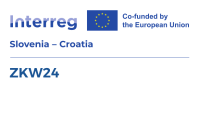
Project title: Together through fire and water
Project budget (ERDF co-financing): EUR 12.288,00
Project duration: 1.5.2025 – 31.12.2025
Project Partners: Dobrovoljno vatrogasno društvo Žiškovec, Prostovoljno gasilsko društvo Starše
Cooperation and exchange of knowledge and experience in the field of fire protection, and protection from natural disasters and technological accidents has always been a guide in connecting similar protection and rescue organizations in Croatia and Slovenia. Due to the turbulent environment, the improvement of existing and the development of new forms of cooperation, the organization has to try innovative approaches, as well as find new sources of funding. Therefore, the application of this project is an ideal opportunity to take advantage of additional opportunities when it comes to the cooperation of firefighting organizations at the international level.
This project foresees cooperation between the Voluntary Fire Department Starše from Slovenia (Podravina Region) and the Voluntary Fire Brigade Žiškovec from Croatia (Međimurje County). The mentioned fire departments have already participated in events that are organized as regular activities of fire departments (firefighting competitions, annual assemblies). There is great interest on both sides in further expansion of cooperation and joint action in the field of fire protection, and protection from natural and technological accidents. The development of joint activities is aimed at target groups in firefighting (children, young people, women) and joint operational activities, all through the mutual exchange of existing knowledge and experience as well as the acquisition of new ones through the organization of various joint activities such as youth camps, workshops, training, seminars for firefighting youth leaders and similar. Good cooperation between cross-border fire departments in the field of prevention and firefighting ensures the readiness and cohesion of members in case of disasters that may affect these areas. Primarily, this refers to the increasing dangers of flooding of rivers that form the natural border between Croatia and Slovenia, but also to all possible disasters and accidents that can be responded to with joint efforts.
As a part of this project, an organization of four events is planned, two of which are in Croatia and two in Slovenia, intending to further connect members of both societies as well as exchange knowledge and experience in the field of activity.
The implementation of the project will be managed by a team of five members from both fire departments, who will meet regularly to coordinate all planned activities together and on time. At the monthly meetings, with the joint contribution of the team members, all implemented activities will be analyzed and all future activities will be organized. Furthermore, everything will be accompanied by written reports on the implementation and progress of the project.
Planned project activities are aimed at all age structures of members of the fire departments – from the youngest to veterans, since both societies have a significant number of members who are included in the work either through operational activities, administrative tasks, or work with young people. The first specially planned activity is aimed at children and young people, which aims to further connect the youngest members and to animate and interest them in continuing to carry out firefighting activities. The second specially planned activity is the organization of activities for women that strive to strengthen the position of women in firefighting. Third specially planned activities are two operational exercises where knowledge and experience of handling firefighting equipment will be exchanged, as well as readiness in case of sudden accidents and disasters will be determined.
The main goal of this project is to connect members of partner organizations with each other, to encourage them to engage in additional cooperation, as well as to offer new activities that will animate and retain them in the organizations and the fire service. The goal is to continue the cooperation between the organizations even after the end of the project. The organizations will continue to cooperate through regular, but also new activities, and as a confirmation of the strengthened mutual relationship, the official signing of the muniment of cooperation is planned. The successful implementation of this project in the future can serve as a good example for other organizations located in border areas and encourage them to cooperate and recognize the benefits of co-financing various joint activities.
Source: application form SIHR00547
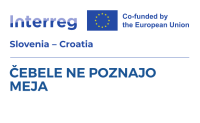
Project title: TRAINING AND ASSOCIATION OF BEEKEEPERS ON BOTH SIDES OF THE KOLPA RIVER
Project budget (ERDF co-financing): EUR 14.336,00
Project duration: 1.4.2025 – 30.9.2025
Project Partners: Čebelarsko društvo Črnomelj, Udruga pčelara Općine Žakanje
With the project “TRAINING AND ASSOCIATION OF BEEKEEPERS ON BOTH SIDES OF THE KOLPA RIVER”, which has the acronym “BEES KNOW NO BORDERS”, we address common cross-border territorial challenges faced by beekeepers in the area of the Kolpa River and beyond, namely:
1. Deterioration of the conservation status of species and habitats
In order to improve the condition of bee habitats, in accordance with the goals of the European Green Deal, it is necessary to promote sustainable approaches in beekeeping, reduce the use of pesticides and raise awareness of the importance of bees for the ecosystem.
2. Strengthening the territorial cohesion of the border area
The limited connection between local beekeeping societies on both sides of the border calls for the establishment of sustainable partnership relations, the organization of joint projects and the promotion of collaborative activities.
3. Building trust and a positive mindset and personal responsibility for a better future for residents living in the border area
Cooperation is one of the key factors for strengthening biodiversity and preserving and restoring habitats. It is necessary to focus on raising the awareness of event visitors and residents in general to change their attitude towards nature by raising awareness of nature protection.
The main goal of the project is to strengthen cross-border cooperation, the exchange of knowledge between beekeepers and the promotion of sustainable beekeeping in the cross-border area. We want to contribute to positive changes in the beekeeping community and the local environment. The project also aims at coordinated cross-border cooperation to care for endangered communities within ecosystems that support ecosystem services in the cross-border area (e.g. pollinators that play a special role in a community of species).
The outputs indicator “Organizations cooperating across borders” for our project is 2, which means that during the project, two partners participate in the implementation of activities. The result indicator “Organizations cooperating across borders after project completion” for our project is 2, which means that both partners continue to cooperate in activities even after the completion of the project, which will have a positive and lasting effect on the beekeeping community and the local population on both sides of the border. Even after the completion of the project, we plan to carry out joint trainings of beekeepers from Slovenia and Croatia, to carry out activities to educate the local population about the necessity of reducing the use of pesticides in order to increase biodiversity and other environmental benefits, and to include local communities in our joint activities. The users of the outputs indicator and the result indicator will be primarily beekeepers, beekeeping associations, the local population and local communities.
In order to strengthen cross-border cooperation, the exchange of knowledge between beekeepers and the promotion of sustainable beekeeping in the cross-border area we will jointly hold two social and educational events for beekeepers, one in Žuniči (Slovenia) and one in Žakanje (Croatia).
With the activities of our project, we contribute to the achievement of Specific Objective 6.3: Building up mutual trust, in particular by encouraging people-to-people actions.
Source: application form SIHR00569

Project title: Games of the past for a future without borders
Project budget (ERDF co-financing): EUR 24,800.00
Project duration: 1.5.2025 – 31.10.2025
Project Partners: Općina Donja Voća, Občina Starše
Project partners are municipalities from rural areas with negligible geographical distance between them. As such, they possess a rich tradition of folk and rural customs often passed down through oral tradition from generation to generation within the local community. Over time, with accelerated technological and social development, national, local, and family traditional customs are gradually fading into oblivion. The preservation of cultural rural identity thus becomes increasingly endangered over time. Given the proximity of partner municipalities and the partial similarities in rural customs, cross-border collaboration would prevent the loss of tradition while enriching and complementing the specificities of each municipality, emphasizing similarities, and bridging differences. The loss of folk customs impoverishes the uniqueness and cultural identity of local communities, especially among younger generations.
The main goal of the project is to revive old customs through engaging and accessible activities. One such example of interesting and motivating customs for participants is rural games. By organizing rural games accessible to the populations of partner regions, the aim is to preserve tradition, encourage participation and community bonding, and highlight the similarities between “neighbor” communities, fostering an understanding of different yet similar folk customs. By introducing communities to such customs, the project seeks to promote better understanding and encourage mutual closeness between neighboring countries. Therefore, the project plans to address the issue of the loss of intangible cultural heritage by promoting cultural interaction.
The main project objective is to learn “from citizens, for citizens” to preserve and revive rural games, strengthen the sense of belonging to cultural identity, and motivate citizens to adopt games for the promotion of physical and mental well-being.
The main outcomes include the implementation of two cultural events for the presentation and execution of traditional rural games and the introduction and execution of 10 traditional rural games with the community.
The approach to be used involves gathering knowledge about traditional rural games of partner municipalities through communication with citizens, with the assistance of local cultural and sports societies. After collecting various games, partners will select the most suitable and compatible ones for both municipalities and ensure, with the help of sports experts, that the implementation and learning of games are conducted safely. Following the selection of games, preparations for promotion and event organization will begin – one event in each municipality, allowing free and unhindered participation for citizens of local and broader communities. Event promotion will be carried out through media platforms and informing citizens through posters in public administration facilities and notice boards. To motivate attendance and enhance the offering, local craftsmen will be invited to participate and showcase their products, accompanied by local musicians during the events. The events will be planned and executed during spring and summer months for outdoor organization, preventing visitor number restrictions and providing sufficient space for planned activities.
The innovation in the project proposal lies in the planned outcome – traditional rural games. The preservation of intangible cultural heritage is often associated with crafts, musical and dance traditions, processions, and rituals. However, little attention is given to rural games as a recreational aspect of our ancestors’ daily lives. These are local and family customs that involve intergenerational components and inclusivity through leisure and entertainment.
Source: application form SIHR00588
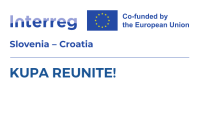
Project title: Building Mutual Trust in the Local Community of the Valley of the River Kupa
Project budget (ERDF co-financing): EUR 24,800.00
Project duration: 1.4.2025 – 30.9.2025
Project Partners: Udruga Wondernature, Zavod za kulturo in turizem Kostel
The project, titled “Building Mutual Trust in the Local Community of the Valley of the River Kupa,” is submitted by the Lead Partner, Association Wodernature, from Croatia, and the Project Partner, Institute for Culture and Tourism Kostel, from Slovenia.
The project addresses several common challenges through cross-border cooperation:
a) social exclusion of the local population of the Valley of the River Kupa as a negative consequence of the COVID-19 pandemic. The pandemic has intensified existing social exclusion, negatively impacting the quality of life in the area.
b) lack of mutual understanding, trust and positive a positive outlook for the future of the inhabitants of the Valley of river Kupa. Factors contributing to this include negative demographic trends, administrative separation following the independence of Croatia and Slovenia, the European migration crisis, construction of razor wire and panel fences, and insufficient investment in infrastructure of suspension bridges.
c) low awareness among the local population about the richness of the natural heritage of the Kupa Valley is one of the factors of the degradation of the conservation status of species and habitats in the project area.
d) lack of (inclusive) opportunities for re-learning the language, culture and traditions of the inhabitants of the Valley of river Kupa. This lack of events and opportunities for reconnection and joint gatherings of local people hampers cultural interaction, cross-border relations, and awareness of the cultural heritage of the Valley of the River Kupa, inclusive opportunities for learning the language, culture and traditions of the inhabitants of the project area, opportunities for intergenerational learning and passing on old customs and culture to younger generations.
This project will mitigate the aforementioned common challenges by positively contributing to the increase in the quality of life of the population of the border area by organizing 2 cross-border festivals under the common motto “Kupa Valley reunited / Kolpa Valley reunited”. At the bilateral festivals, the local community will have the opportunity to learn about cross-border traditions, culture, customs and identity. Furthermore, the local population will be actively involved in the festival activities, which will give them the opportunity to rebuild trust, strengthen ties and the positive attitude of the people of the Valley of river Kupa. Furthermore, people will connect not only at events but also through further cooperation between project partners and local actors with the aim of building mutual understanding and trust among residents.
Moreover, the project will address the challenge of raising awareness about the importance of preserving natural heritage through educational workshops during cross-border festivals. This is expected to create a significant territorial impact on the project area.
The main goal of the project is to rebuild mutual trust by implementing people-to-people actions of the Kupa Valley through the organization of 2 cross-border festivals under the common slogan “Kupa Valley reunited / Kolpa Valley reunited”.
The main project indicators are 2 jointly organized cross-border festivals, 2 organizations that cooperate across borders, and the project result is 4 organizations that cooperate across borders after the end of the project.
The approach used by the partners in solving the identified challenges refers to several elements: (a) project partners in their capability, scope of activities, operational, legal and financial capacities and taking into account continuous cooperation with relevant associations and other stakeholders from the project area, form a suitable partnership for elimination of the mentioned challenges; (b) the partnership is geographically balanced and the project impact in Slovenia is focused on the region directly bordering with Croatia; (c) project partners have clearly defined and logically divided roles in the project with the aim of building mutual trust of the local population of the Valley of river Kupa; (d) the project area has multiple benefits of the cooperation of project partners and related stakeholders in the period after the implementation of the project.
The innovativeness of the project lies in organizing a new form of cooperation – cross-border festivals on the protection of culture, tradition and natural heritage of Gorski Kotar and the area of Slovenia along the Valley of river Kupa, with active participation from local residents who will serve as leaders of festival workshops, in such a way that they are hosting each other at the festivals. This approach demonstrates the partners’ capacity to re-create strong links between the people of the project area and to erase existing borders, while being guided by the principles of inclusion, active participation and responsibility for the environment and the climate.
Source: application form SIHR00627
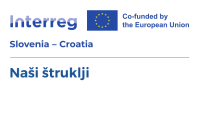
Project title: Slovenian and Croatian “štruklji” – cultural heritage in the tourist offer
Project budget (ERDF co-financing): EUR 15,360.00
Project duration: 1.4.2025 – 28.2.2026
Project Partners: Zavod za kulinariko in turizem Dobrote Dolenjske, Općina Radoboj
Each village, town, valley, area, region has its own specific local natural and cultural features that give it its own unique character. Culinary (and gastronomy) is certainly a cultural speciality and a topic of wider interest, both to the local population and, in particular, to visitors and tourists who want to get to know and experience the region through local dishes and flavours. And local culinary specialities, whose traditions go back centuries, do not begin and end with the borders of a municipality, statistical region or country, because recipes and dishes are older than administrative borders and are the result of shared traditions, history and local conditions. One such dish that links Slovenian and Croatian cuisine is certainly ŠTRUKELJ (traditional national dumplings), which is typical of almost the whole of Slovenia, especially Dolenjska, and of Zagorje in Croatia.
A key perceived challenge in the programme area is that although we share a common gastronomic heritage, it often divides us (the inhabitants on both sides) and leads to conflict in the sense of competition over whose štrukelj actually are, as we want to attach a national badge to them. But the fact is we live in a small area that has been within one country for most of its history, so it is logical that we also share a gastronomic heritage. With the project “Our štrukelj”, instead of rivalry, we want to create cooperation and understanding of a common gastronomic heritage in the programme area, so that all stakeholders are able to interpret, promote and keep it alive, both in theory and in practice. Given the complexity of the subject matter addressed by the project, we have decided to address different target groups (from the general public to professionals, tourism workers, caterers, etc.) through various events, covering the entire chain that plays a key role in preserving this gastronomic speciality with its long tradition.
Štrukelj is a Croatian traditional dish from Zagorje, which is included in the national list of intangible cultural heritage, while in Slovenia, štrukelj is at the very top of the Slovenian and Dolenjska culinary pyramid and one of the 10 most representative Slovenian dishes. Despite this, Slovenians know very little about Zagorje štrukelj and Croatians know very little about Dolenjska štrukelj. What are the similarities between our štrukelj, how do they differ in terms of preparation, ingredients and serving? How do we promote them and include them in the tourist offer of our region? What role do štrukelj play in promoting our cultural (gastronomic) heritage? Do caterers include them in their menus and how? Do people still make štrukelj at home nowadays? The project aims to answer all these questions, to educate the general public, tourism providers, organisations and tourism workers about our intangible cultural heritage, so that we all know, understand and interpret it correctly. In this way, we will help to promote our štrukelj, exchange good practices, knowledge and skills between the two regions and preserve our common intangible cultural heritage.
The figures show that gastronomic tourism is on the rise, with more and more people interested in local culinary heritage, flavours, specialities. Therefore, the aim of the project is to spread awareness of the importance of cultural (gastronomic) heritage in the development of the area’s tourist offer, both among the local population, which is “responsible” for the fact that a certain dish or our cultural heritage is alive, and among the tourism providers, who are the ones who present this cultural heritage to the world, i.e. to visitors, tourists, through the promotion of Slovenian and Croatian štrukelj. It is therefore vital to empower all stakeholders, both local people and tourism providers and workers in tourism, and to provide them with new expertise to ensure that the whole chain does its job well and to establish a Slovenian-Croatian link for the promotion of štrukelj, which does not yet exist in our regions.
To achieve these objectives, we will organise an expert conference aimed at tourism providers, tourism workers, tourist guides, informants, caterers and decision-makers at regional level from both countries. In the framework of the conference, we will organise expert lectures by speakers from both countries in order to acquire new knowledge in the field of gastronomic tourism, intangible cultural heritage and exchange new knowledge and experience. In addition, we will organise 4 practical cooking workshops for the general public (young people and adults) to exchange practical experience of making Slovenian and Croatian štrukelj. Through the workshops, we will empower the population in terms of knowledge of gastronomic heritage and especially the preparation of štrukelj, as this is the only way to preserve heritage.
This way, the štrukelj will no longer be Slovenian or Croatian, but ours! With all their similarities and differences.
Source: application form SIHR00650
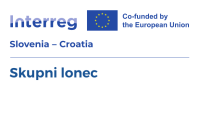
Project title: From Shared Pot
Project budget (ERDF co-financing): EUR 24,800.00
Project duration: 1.4.2025 – 31.12.2025
Project Partners: ZAVOD LONČARSKA VAS FILOVCI, Zavod za turizem, kulturo in proizvodnjo keramike, Zavičajni muzej Ozalj
The general objective of the project is to revitalize and preserve the tradition of pottery through the implementation of two events, directly connected to the customs of preparing traditional local food. This includes respecting the methods and techniques of preparation, aiming to strengthen the sense of community through intergenerational and cross-border collaboration. The project, named ‘From the Common Pot,’ aims to contribute to the preservation of the cultural heritage of pottery through cross-border cooperation between regions where the project will be implemented. On both sides of the border, there is a noticeable decline in this cultural local heritage, primarily due to the loss of interest in traditional crafts and a lack of resources for preservation and knowledge transfer to younger generations. The project aims to revive pottery as a traditional craft in the region, highlighting the specifics of each country while emphasizing commonalities that provide a strong foundation for building mutual trust, exchanging knowledge, and fostering a sense of community in a relaxed and inclusive environment.
The project’s goal is to instill a sense of belonging, solidarity, and social inclusion among the local population, as shared pride and understanding of one’s culture undoubtedly contribute to community cohesion. The project’s innovation lies in the joint effort to preserve cultural heritage and creatively interpret tradition by combining traditional crafts with modern approaches.
The project involves organizing two events, one on the Slovenian side and one on the Croatian side. In the event in the village of Filovci, Slovenia, knowledge about traditional pottery will be shared through lectures, a pottery exhibition, and demonstrations of pottery techniques. To actively involve the local communities on both sides of the border, a traditional goulash cooking competition will be organized. Although goulash has traditionally been prepared by men, our teams will consist of individuals of different genders, generations, and nationalities. We expect approximately half of the teams to be Croatian.
The event at the Etno Park Ozalj in Croatia aims to present the lives of ordinary people in the 18th and 19th centuries, showcasing the skills and knowledge used during that time. It serves as a complementary addition to the Filovci event. One of the skills for which the location is known is pottery and the production of ‘pekve,’ small elongated vessels with one or two handles used for cooking or baking food over an open fire. The tradition of making ‘pekve’ has practically disappeared today, along with most customs associated with pottery. Through the project, we aim to reintroduce local residents to old traditions and customs as part of cultural heritage and provide a practical demonstration of food preparation in ‘pekve.’
The project is carried out by two partners, Lončarska vas Filovci, an open-air museum specializing in Panonian architecture, and the Ethnological Museum Ozalj, featuring traditional architecture and everyday pre-industrial objects in its Etno Park, located 1 km from the center of Ozalj. Both partners have in-depth knowledge and extensive experience in the field of project implementation, cultural events, and education. The partners plan, implement, and finance the project together, with each partner assigning staff to ensure the maximum quality of execution. Project partnership is crucial for the successful implementation of the submitted project. Each partner will contribute specific knowledge and experience, enabling the acquisition of new perspectives, understanding of different approaches, and learning opportunities. Collaboration will also establish a strong network and long-term partnership, allowing for resource-sharing, cost-effective project implementation, and joint efforts to achieve common goals.
The primary beneficiaries of the project will be the local population, as the project enables the preservation and promotion of traditional crafts, preventing the loss of valuable cultural heritage by passing traditions across borders and to new generations. The project’s implementation strengthens the sense of belonging among residents on both sides of the border. Attendees of both events will have the opportunity for socializing, networking, cross-border, and intergenerational connections, contributing to social cohesion and a communal spirit. Overall, the project not only revitalizes and preserves cultural heritage but also has a positive impact on the local economy, education, and social cohesion in both communities.
Source: application form SIHR00675

Project title: ForestFest: Forest Bathing Festival as a Meeting Place
Project budget (ERDF co-financing): EUR 24,800.00
Project duration: 1. 4. 2025 – 31. 12. 2025
Project Partners: Općina Radoboj, Občina Beltinci
Project „ForestFest: Forest Bathing Festival as a Meeting Place“ by leading partner the Municipality of Radoboj of the Krapina-Zagorje County, and the project partner, the Municipality of Beltinci in the Pomurska region of Slovenia, is a bilateral forest therapy festival aimed of enhancing cross-border cooperation, involving local stakeholders, using the advantages of both regions. The planning and implementation of the ForestFest project is based on four pillars: joint implementation, joint coordination, joint beneficiaries and joint financing. The project’s intervention logic, guided by principles of inclusivity, active participation with environmental responsibility, seeks to address some of the territorial challenges in the area. The identified problems in the program area that ForestFest aims to address include weak social interaction of the cross-border area due to administrative and cultural barriers, negative health trends related to a decline in physical activity during and after the COVID-19 pandemic, and insufficient connectivity between local government units, non-profit organizations and citizens whose active collaboration is essential for the development of the local community.
The necessary change toward the desired outcome can be achieved through cooperation and connection of local residents across borders. The idea is to bring people together with planned activities in the project, encouraging them to socialize, build friendships, engage in informal language learning, and explore cross-border culture by getting to know the neighboring territory. Strategies for building trust through guided dialogues and networking at outdoor festival events will be applied. By developing the joint ForestFest project, partnerships between local government units, non-profit organizations, and local residents will be fostered, benefiting both sides. The specific goal of the project is to develop trust and collaboration among residents in the Slovenian and Croatian cross-border areas by strengthening connections between the residents through guided outdoor activities and sharing best practices among festival organizers and participants. The development strategies of both municipalities are focused on extending life expectancy and improving the quality of life, requiring continuous improvement and the development of events promoting a healthy lifestyle. Therefore, the project’s second specific sub-goal is to promote an active and healthy lifestyle for the overall improvement of the well-being of the residents. The joint coordination and implementation of ForestFest activities designed by the Slovenian partners in Croatia and the Croatian leading partner in Slovenia will connect civil society through the cooperation of LGUs, non-profit organizations and local residents.
Cross-border cooperation and partnership building between the Municipality of Radoboj on the Croatian side and the Municipality of Beltinci on the Slovenian side are the fundamental focus of the ForestFest project, which, in synergy with the residents and local non-profit organizations, will build shared results. The primary target group benefiting from the project’s outcomes will be the residents (400) of the Krapina-Zagorje County and the Pomurska region, the secondary target group being non-profit organizations (10) and educational centers (4) and the tertiary target group being local government units (2). The first joint pre-festival announcement event is planned for June on the Island of Love in Ižakovci, with the defined outcome of organizing a cross-border concert and awareness-raising event. The second and core bilateral ForestFest festival event, rich in learning activities for the improvement and promotion of the health of the local population, is planned for September, first on Mount Strahinjščica in Croatia, which has two forest therapy trails, and then in Ižakovci, Slovenia. The second part of the first bilateral event consists of post-festival activities “from citizens to citizens” taking place during October at the Radboa Museum in the Municipality of Radoboj. Project management will involve joint implementation, joint coordination, joint beneficiaries, and joint financing, thereby achieving the mandatory outcomes of programs RCO87 and RCO115.
Qualitative results of particular importance include establishing new cross-border partnerships, laying the foundations for trust-building, and networking with the aim of continuing collaboration, contributing to the sustainability of ForestFest on both sides of the border and achieving the mandatory results indicator of program RCR84. The innovation of ForestFest lies in establishing the first bilateral forest bathing festival in the region, allowing the exploration of innovative ideas such as forest bathing therapy and alternative tools, using available physical (natural) resources and human potential to develop cross-border contacts and partnerships.
Source: application form SIHR00319
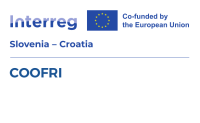
Project title: From cooperation to friendship
Project budget (ERDF co-financing): EUR 24,800.00
Project duration: 1. 4. 2025 – 31. 10. 2025
Project Partners: Sveučilište u Rijeci, Ekonomski fakultet, Osnovna škola Ivanke Trohar, Osnovna šola Gradec, Osnovna šola Podčetrtek
The project “From Cooperation to Friendship” is aimed at establishing cooperation, joint initiatives and strengthening ties between three cross-border regions, Savinja, Zasavska and Primorje-Gorski Kotar counties. The goal is to establish lasting and unbreakable ties and friendly relations that are built in the partner local communities from the earliest school days. The project is implemented by four educational institutions, Gradec Primary School from Litija, Ivanka Trohar Primary School from Fužine, Podčetrtek Primary School and the Faculty of Economics Rijeka, as a continuation of previously established cooperation and identified needs for establishing cross-border partnerships and exchanging good practices in education at various levels and forms. The project is primarily aimed at connecting the youngest residents of cross-border areas who will be offered participation in various educational, cultural and sports activities, with the support and contribution of teachers, parents, friends and interested participants. The above also stems from the strategic commitment of Slovenia and Croatia for education and science, according to which educational environments must be improved by encouraging creative thinking and innovative action in education at all levels.
The project partners will jointly organize, implement and participate in two one-day events. The first will be held in the premises of the Ivanka Trohar Elementary School and in public areas of the Fužine municipality. It will include a presentation of the work of the Kreša Golik film company, a performance by a drama group and a choir performance, as well as an organized exhibition and a ceramics workshop by the student cooperative “Ivančica” (student creativity: ceramics, silk, embroidery) which will highlight the importance of ecological topics and eco-actions for visitors. The sports part of the event will include a football tournament in the school hall for senior students, teachers, professors and all interested parties. Sports games for lower-grade students will be held on the playground in the center of Fužine. The largest number of participants will be gathered by the orienteering competition where participants will get to know the natural, cultural and historical sights of Fužine, but also strengthen their language skills (Croatian and Slovenian). The second event will be organized by the Podčetrtek elementary school, which includes 7 activities/workshops (culinary, music and dance, AI workshop, basketball derby) for different target groups, with contributions from other partners. Partner OŠ Podčetrtek will organize a one-day event (October 2025) that will include 7 activities/workshops with contributions from other partners. EFRI, OSG and OSIT will participate in all activities and will come by organized buses. The project partners will visit the cross-border area and the local population, potentials and opportunities and will identify elements of cooperation that can be developed in future projects.
This project will further contribute to the strengthening of cooperation and trust among partners, as well as among the wider local community. The project will provide the involved educational and higher education institutions with continuous cooperation, exchange of experiences and examples of good practice, and professional and financial support in the conception, implementation and evaluation of innovation projects. The project will also include the wider local, cross-border community. The project will result in getting to know and connecting the participating institutions and residents of the border areas, primarily pupils, students and professors, thus creating a solid base for continued joint action.
Source: application form SIHR00363

Project title: Bee Bridge
Project budget (ERDF co-financing): EUR 24,800.00
Project duration: 20. 3. 2025 – 19. 11. 2025
Project Partners: ČEBELARSKA ZVEZA KRŠKO, SAVEZ PČELARSKIH UDRUGA KRAPINSKO-ZAGORSKE ŽUPANIJE, OSNOVNA ŠKOLA ANTUNA MIHANOVIĆA
Our project concerns the preservation of nature and the strengthening of local communities in the cross-border area between Slovenia and Croatia. The general goal of the project is to strengthen cross-border cooperation for the preservation of natural heritage, the promotion of the importance of bees and the improvement of the quality of the environment. We expect that with the project we will achieve greater awareness of the importance of nature, increase the number of honey plants and improve the connection between local communities on both sides of the border. The main effects of the project will include the establishment of a cross-border local market and educational program, the organization of joint events/actions and workshops, and the promotion of sustainable practices in the local environment. The residents of the cross-border area, various non-governmental organizations, schools, local providers and nature itself will benefit from these effects. The planned approach of the project includes close cooperation between partners on both sides of the border, exchange of experience and expertise, and establishment of sustainable solutions for cross-border cooperation. The project’s innovation is reflected in the emphasis on the role of bees and natural heritage, primarily through a developed educational program, and the promotion of economic development and entrepreneurial thinking through local markets and nature conservation in the cross-border area.
With project activities, we will follow the specific goal of the program, i.e. strengthening cooperation with partners and mutual trust and promoting connections between people. Through the activities, we will emphasize intergenerational learning, a healthy lifestyle and the importance of natural and cultural heritage (especially beekeeping). Special attention will be paid to the preservation of the environment, the importance of bees and tradition. Together, we will create a network of participating organizations and individuals for the exchange of experience and knowledge.
The overall goal of the project is to create a comprehensive approach to sustainable development that combines natural values, cultural heritage and integration. The project will thus serve as a model of cooperation and sustainable development in the region and as an inspiration for other similar initiatives.
Main activities:
CAMPAIGN: raising awareness of the importance of bees, environmental conservation, natural heritage, dissemination of project activities and results.
o Digital: social networks, online advertising will be used, a presentation video will be made.
o Physical: posters, flyers, promotional material, promotion at events.
EDUCATIONAL PROGRAMS: Organize events and workshops that promote a healthy lifestyle, including the use of natural products.
o Joint development, visit of Croatian partners in Slovenia, in the Krško Beekeeping Center. For an easier idea of the program and easier preparation.
o Developed and implemented (managers and other partners) joint educational program on bees and beekeeping, environment, healthy lifestyle, nutrition, etc. Based on the developed program, we will hold a minimum of four workshops (2 in Slovak and 2 in Croatian) for children and for a mixed group of participants. The goal is to encourage young people and the general public to take an interest in nature and environmental protection. Teaching knowledge and strengthening interest in bees and nature.
COMMON EVENTS
o Organization of two local markets in SLO and HR, where we will combine beekeeping, sustainability, natural heritage and local food producers. Cooperation with beekeeping and other organizations in the border area, strengthening integration, sharing experiences. Local producers will present their products, and at the same time we encourage and promote a local and natural and thus a healthy lifestyle.
o Clean-up campaign and honey plant planting campaign: we help preserve the environment, strengthen cooperation, promote volunteering in local communities, where people come together in joint projects and intergenerationally cooperate for the common good.
The activities will enable hosting and cooperation between different groups to exchange experiences, ideas and traditions. Through joint educational programs, individuals will learn from each other, for example by sharing local recipes, approaches to beekeeping and traditions, and together take a step towards nature conservation.
Source: application form SIHR00397
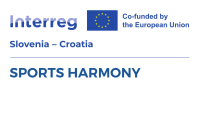
Project title: SPORTS HARMONY: Connecting Without Limits
Project budget (ERDF co-financing): EUR 15.974,40
Project duration: 1.4.2025 – 31.10.2025
Project Partners: Plavalni klub Slovenske Konjice, Zajednica spinalno ozlijeđenih
The cross-border project SPORTS HARMONY is an innovative initiative for sports inclusion focused on the inclusion of the disabled and the elderly. Cooperation takes place between Slovenia and Croatia, responding to the common challenge of the INTERREG program in terms of building trust, promoting a healthy lifestyle and improving the connection between different groups.
PROBLEM IDENTIFICATION
– Social exclusion of the disabled and the elderly. Lack of opportunities for the intermingling of cultures, generations and communication.
– Weak physical activity of the socially excluded.
– Ignorance of opportunities for inclusive sports activities in the local environment and limited access to them.
– Lack of cross-border cooperation.
EXPECTED CHANGE
To create sustainable sports inclusion for the disabled and the elderly in the cross-border area, which will increase their physical activity, improve mental health strengthen mutual trust and solidarity in local communities, and strengthen cross-border integration, cooperation and trust. The goal is to achieve a tangible change in the perception of sport and cross-border integration and to create a solid foundation for lasting cooperation between communities, which will contribute to an increase in mutual trust, which will be the basis for the organization of new inclusive sports events.
TARGET VALUES:
– Inclusion and equality in access to sports activities regardless of age and disability.
– Health and well-being of participants as a key value of sustainable sports inclusion.
– Mutual trust between participants, partners and local communities as a basis for successful further cooperation.
– The power of uniting different communities for the common good and strengthening the sense of solidarity.
– Sustainable integration that goes beyond the project’s scope and continues, forming an inclusive sports community in the cross-border area.
ACTION PLAN
In 2025, we will hold two events, one at RSC Jarun (City of Zagreb), and the other at the swimming pool in Slovenske Konjice. For this purpose, the Spinal Injuries Union (SOZ) from Zagreb and the Swimming Club of Slovenske Konjice (PKSK), which have various competencies and experience necessary for a successful implementation, will join forces. SOZ connects people with spinal cord impairment and is aimed at improving the quality of life and social care, as well as promoting the rights and interests of disabled people. The basic goal of PKSK is the inclusion of individuals with different abilities in diving activities. Various inclusive sports activities will take place at the events: Freediving and static apnea competition, Diving with autonomous diving equipment and driving underwater scooters, Inclusive Water Frolics, Archery, Rowing and Intercultural & intergenerational & inclusive & cross-border dialogue.
We expect more than 156 participants at both events. The target groups are:
– Local public authority (Municipality of Slovenske Konjica and City of Zagreb)
– National public body (national disability associations)
– The provider of the infrastructure where the events will take place
– Interest groups, including non-governmental organizations: members of PKSK and SOZ, members of local sports and disabled associations and pensioners’ associations.
– General public: random visitors to the Slovenske Konjica and Jaruna swimming pools, the media public.
– Children who are at the equestrian pool and Jarun every day.
RESULTS OF THE PROJECT:
Project results will be measured through the following key indicators:
– We want to ensure at least 40% participation of the disabled and the elderly at the events. Measuring the positive impact on the social network and intergenerational integration.
– Measuring the increased visibility of sports opportunities, increasing tourist attraction and strengthening social cohesion.
– Use of indicators by participants to assess personal development, including increased self-confidence, skills and social connectedness.
– Inspiration for further activities and involvement of new partners: Use indicators as inspiration for implementing similar inclusive projects by other organizations.
– Assessment of the durability and sustainability of the partnership formed by the project, which is the result of trust between the two partners.
– Cooperation between local communities strengthens cross-border ties. The project creates an opportunity for long-term cooperation that may exceed the duration of the project itself.
For the sustainability of the results, the key will be active monitoring of the indicator, constant evaluation and the integration of the acquired experience into further activities. Long-term plans include establishing traditional events, building lasting friendships, innovative recreational opportunities, and promoting intergenerational interaction. With these measures, the project will leave a lasting and positive impression in Slovenia and Croatia.
Source: application form SIHR00416
 Project title: Sport without borders – bike rides and a tennis match to connect
Project title: Sport without borders – bike rides and a tennis match to connect
Project budget (ERDF co-financing): EUR 24.800,00
Project duration: 1.4.2025 – 31.10.2025
Project Partners: Udruga “Biciklom do zdravlja”, ŠPORTNO DRUŠTVO GF TENNIS
The Zagreb County and the Posavina Region border each other, have a historical connection, but also many common interests and challenges in modern times. The period in which there were borders in that area and the covid period resulted in the weakening of ties between people. During the covid period, visits were impossible, and there were no organized events. Contacts have been lost, ties and a sense of connection have weakened. It is necessary to encourage “re-connection”, trust and togetherness.
The common challenge refers to the need for joint activities that establish contact and contribute to connecting people and organizations of the border area on both sides of the border.
Sports events are a platform for various forms of interaction. At events, people exchange their opinions and experiences, socialize and achieve communication that goes beyond the current event. Also, sports associations, on both sides of the border, are highly motivated for cross-border cooperation and the approach to starting new partnerships.
The Zagreb County and the Posavina Region have a lot of potential for outdoor sports activities. The partners in the project operate in these areas, know the opportunities and have the resources to organize sports events.
The main goal of the SPORT WITHOUT BORDERS project: To increase the connection of the local population of the border area through bilateral sports events organized by the cooperation of organizations from both countries.
Sports events will bring together the local population of the border area, fostering a sense of community, belonging and connection. The cooperation of organizations in the project achieves the building of a partnership, and lays the foundations for a long-term partnership.
Outcomes: the project is a partnership of 2 organizations, UBZ and GF TENNIS, which cooperate across the border in the organization of 2 bilateral, public sports events and which will continue their cooperation even after the end of the project.
The partners in the project will jointly organize two sports events, one in Croatia and the other in Slovenia. The increase in the ties of residents, on both sides of the border, will be achieved by direct involvement in the activities of sports events: cycling and tennis matches. The bike ride is planned for up to 200 participants, in the area of Zagreb County, along a 19.1 km route, from Bregana and along the border via Divlje vode to the Scout mountain lodge, where the gathering is planned. The tennis match will be held in Brežice for up to 200 participants. Both events will be attended by people from both sides of the border, from the Zagreb County and the Posavina Region, where the activities will be promoted. Events are planned to bring together people of different age groups, contributing to intergenerational connection.
Connecting the local population, on both sides of the border, contributes to cross-border cohesion and the emergence of new ideas for cross-border cooperation encouraged by citizens. Partner organizations build partnerships and foundations for future joint projects focused on local challenges. Local residents and organizations have direct insight into the real needs of the community, and their active participation contributes to increasing the quality of life in the community.
Connectivity contributes to awareness of common challenges. The project contributes to raising awareness of common challenges such as the importance of physical activity for health, insufficient cycling infrastructure, opportunities in tourism, sustainable transport and CO2 reduction. Awareness of common interests and connection encourage reflection on initiatives to improve the quality of life in the environment in which they live.
An innovative approach includes the involvement of doctors in the cycling activity. Doctors will be available to participants to measure blood pressure, measure blood sugar levels and provide counseling with the aim of increasing awareness of the importance of physical activity for health. This approach is based on the common challenge of the rising death rate caused by diabetes. Also, there is a common need for various preventive activities aimed at obesity and chronic diseases, as well as the need for activities for an active life in rural areas, especially after an “inactive” life during covid, which leaves consequences for health. An increased number (5) of licensed bicycle guides will participate in the cycling event, who will provide support and help to people with weaker physical competences.
Source: application form SIHR00441
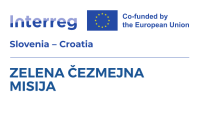 Project title: GREEN CROSS-BORDER MISSION – GREEN PASSAGE FOR THE SUSTAINABLE DEVELOPMENT OF THE CROSS-BORDER AREA
Project title: GREEN CROSS-BORDER MISSION – GREEN PASSAGE FOR THE SUSTAINABLE DEVELOPMENT OF THE CROSS-BORDER AREA
Project budget (ERDF co-financing): EUR 24.800,00
Project duration: 1.6.2025 – 30.4.2026
Project Partners: JEZERSKI HRAM, ZAVOD ZA OHRANJANJE NARAVNE IN KULTURNE DEDIŠČINE, CERKNICA, OSNOVNA ŠKOLA PETAR ZRINSKI ČABAR, DRUŠTVO ZA OHRANJANJE KULTURNE DEDIŠČINE, VARSTVO NARAVE, SAMOOSKRBO IN SONARAVNI TURIZEM MED NOTRANJSKO IN CERKLJANSKO DOLOMITNE LUTKE
Common challenge: residents of the cross-border area of the Primorje-Notranjska and Primorje-Gorski Kotar regions are alienated from each other, they do not cooperate and do not connect with each other – this is observed especially among young people (primary school students), the general public and organizations. They do not recognize the cross-border environment as a green area – this means that they do not fully recognize the value and also the values of beautiful nature and a preserved environment. They do not realize how very important it is to cooperate with each other, as they are interdependent in this geographical space. They do not recognize and do not implement sustainable living practices in the cross-border environment, they are not informed, aware of the importance of the green transition for the cross-border area. They do not understand how and why to implement a climate and environmentally friendly lifestyle in the cross-border area and they do not understand how this reflects the consequences in a positive or negative direction on climate change and biodiversity, climate change adaptation, environmental protection, they do not realize that it is important sustainable consumption. in the diet. They lack knowledge and, above all, practical solutions for all the mentioned content areas, which would be presented to them in an unobtrusive and non-patronizing way – from people to people. They don’t have opportunities to socialize with learning.
The general goal of the project is the implementation of 2 thematic events (Green transition of the cross-border area) with which we will strengthen the mutual trust of the target groups, connect people and organizations with each other and contribute to sustainable development by promoting the green transition of the Primorje-Notranjska and Primorje-Gorski Kotar regions. We are aiming for changes in priorities for environmental protection, green transition, self-awareness of the individual’s own responsibility, activation, integration, cooperation of individuals and organizations.
Main effects and who will benefit from them:
We will ensure the sustainability of the results through the personalization of the Green Transition – during the implementation of the project, we will address all target groups, give them new knowledge, awareness, and practical solutions in such way that they will internalize and personalize them. Users will transfer the results and effects to their own environment and act proactively there. In addition, the sustainability of the results will be ensured by establishing a Green Cross-Border Community.
The impact/achievement indicators will be used by the representatives of the target groups as well as the project partners.
– Acquired new awareness, theoretical and practical knowledge for own activation, personalization of the Green Transition:elementary school students, general public – households
-In-depth mutual trust and understanding of the importance of participation in the Green Transition: all target groups. With mutual trust, they will deepen their relations and establish new friendships in the cross-border area
-Established new collaborations/partnerships between organizations in the cross-border area: representatives of interest groups, including NGOs, organizations.
The planned approach/need for cross-border cooperation: is the implementation of events based on transitional motivation, the search for solutions, with the aim of creating a positive and inclusive climate for long-term cooperation even after the end of the project. The need for cross-border cooperation is identified in practice – people in the cross-border area need events to get to know each other, they need socializing, new knowledge, connections between organizations and between different stakeholders, in a form that would support them in their efforts for the Green Transition . With this, the need to position the area of preserved nature, of strategic importance also for other parts of the regions of both countries, opportunities for the sustainable development of the area.
What is original about our project is that we are taking the initiative for activation by organizations and people in the cross-border area. It is an innovative method of approach that connects several generations and areas of activity – youth (primary school students), the elderly (households in the general public), organizations in various fields (tourism, cuisine, the offer of nature experiences, culture,…) at the same time, it is innovative that they help the target public in finding/co-creating solutions for the green transition in the cross-border area, so they are active (activators) and stakeholders who personalize the green transition. The approach we use is from people to people – from the bottom up, which is new for our area, and the topic is also new.
Source: application form SIHR00447
 Project title: CROSS-BORDER INTERGENERATIONAL COOPERATION IN THE FIELD OF CULTURE, PROTECTION AND RESCUE
Project title: CROSS-BORDER INTERGENERATIONAL COOPERATION IN THE FIELD OF CULTURE, PROTECTION AND RESCUE
Project budget (ERDF co-financing): EUR 24.800,00
Project duration: 1.6.2025 – 28.2.2026
Project Partners: Gasilska zveza Črnomelj, Vatrogasna zajednica Grada Jastrebarsko
With the project, we address common cross-border territorial challenges of the cross-border area, namely the sensitivity of the program area to climate change and the aging of the population in the area of the Municipality of Črnomelj and the Town Jastrebarsko.
The program area is sensitive to climate change, the consequences of which are becoming more frequent and whose effects are already visible (increasing average temperatures and uneven precipitation patterns leading to extreme weather conditions). In the past few years, the number of extreme weather events in the cross-border area has increased significantly, which has also increased the consequences that have affected the population in this area.
In the past years, GZČ has already established active cooperation with the Firefighting Association of town Duga Resa and the Firefighting Association of town Vrbovsko. In the framework of this project, in order to take joint, quick and effective action to help and provide help to the population at risk and to protect property on both sides of the border between the Republic of Slovenia and the Republic of Croatia we will strengthen mutual trust for the further building of good relations with the Firefighting Association of town Jastrebarsko for effective joint action in the event of accidents in the future.
We face the same challenges on both sides of the border, where the demographic problem related to the aging of the population and the emigration of young people stands out in particular, which also poses a serious threat to the protection and rescue forces in the partner cross-border area, which is based mainly on volunteerism.
The general goal of this project is to strengthen mutual trust between the Firefighting Association Črnomelj and the Firefighting Association of town Jastrebarsko for future cooperation in establishing an effective protection and rescue system in the cross-border area of the Municipality of Črnomelj and the Town of Jastrebarsko. The goal of both project partners is to jointly organize two major public cross-border events, where members of both partners and the general public will get to know each other, which will have a positive impact on the residents of the cross-border area.
The implementation of this project provides a solid foundation for the development of a long-term partnership between the Firefighting Association Črnomelj and the Firefighting Association of town Jastrebarsko and represents a step in a series of planned joint activities. The output indicator and the result indicator will be a key tool for measuring the lasting impact of the project on the program area and its population. The output indicator “Organizations cooperating across borders” for our project is 2, which means that during the project, two partners participate in the implementation of activities. The result indicator “Organizations cooperating across borders after project completion” for our project is 2, which means that both partners continue to cooperate in activities even after the completion of the project, which will have a positive and lasting effect on the firefighting community and the local population on both sides of the border.
Even after the completion of the project, we plan to hold joint gatherings and training of firefighters from the area of operation of the two partner firefighting associations (both operational firefighters and firefighter youth). We are also planning to implement larger joint projects in the field of protection and rescue.
The users of the output indicator and the result indicator will primarily be firefighters, voluntary firefighter communities and both firefighting associations as well as the local population and local communities. Together, we want to achieve permanent cooperation of residents from the area of the Municipality of Črnomelj and Town of Jastrebarsko.
In this project, the partners plan to hold two large cross-border events Type 2 to strengthen trust and connection between the members of both partners and the general public from both sides of the border in the cross-border area of the Municipality of Črnomelj and the Town of Jastrebarsko.
With the activities of our project, we contribute to the achievement of Specific Objective 6.3: Building up mutual trust, in particular by encouraging people-to-people actions.
Source: application form SIHR00452
 Project title: Youth CAMP FOR FUTURE Cooperation
Project title: Youth CAMP FOR FUTURE Cooperation
Project budget (ERDF co-financing): EUR 14.336,00
Project duration: 1.4.2025 – 30.9.2025
Project Partners: Vatrogasna zajednica Grada Jastrebarsko, Gasilska zveza Črnomelj
The area that connects Croatia and Slovenia is an example of a region where borders do not separate but unite. The traditionally good cooperation in this cross-border area is reflected in the daily life of people who often live in one country and work in another, where family, friendship and business ties are strongly intertwined. This is a traditional area of community and cooperation, however, despite the strong foundations of cooperation, there is a constant need to strengthen ties between the local population, especially among the youth, to ensure a dynamic, adaptive and resilient cooperation ready for future challenges.
Maintaining the tradition of cross-border cooperation that is almost half a century long, the Črnomelj Fire Brigade (GZČ) continues to strengthen its cross-border friendly ties, and since the signing of the charter in 1976, it has been particularly close to the Duga Resa Fire Brigade. Cross-border cooperation does not stop there, they also cooperate with VZG Vrbovsko, while with VZG Jastrebarsko new doors of cross-border cooperation are opening. This project continues to strengthen cross-border ties and will build a new partnership.
The main goal of the project is to build and strengthen the partnership between the firefighting communities from Jastrebarsko and Črnomelj as a basis for future active cross-border cooperation on various projects such as cooperation with young people, operational firefighters, training, joint exercises in border areas and the like. The specific goal is to connect firefighting youth from the two countries and their stronger involvement in the work of firefighting communities. For this purpose, two cross-border events, three-day summer camps, will be organized, where various activities will be organized, and through getting to know firefighting youth from Croatia and Slovenia through their joint socializing, fun, learning, exchange of experiences, knowledge and skills, it will be ensured strengthening cross-border ties and continuous development and improvement of firefighting communities.
Project partners VZG Jastrebarsko and GZČ bring their valuable experience in organizing youth camps and working with young people to the project. However, this project opens space for the contribution of each organization with its specific knowledge, experiences and resources. The project plans to enrich the usual camp program with new and varied activities that go beyond the standard practice of firefighting youth camps, and therein lies the innovation of this project, as young people will have the opportunity to acquire new knowledge and skills outside of firefighting. As part of the planned events, special emphasis will be placed on cooperation with external collaborators who will introduce young people to natural beauty and cultural heritage. Through the presentation, the participants will learn about the protected areas of the Žumberak Nature Park – Samoborsko gorje and the Kolpa Regional Park, get acquainted with the cultural heritage of Jastrebarski and the village of Vinica in the Municipality of Črnomelj. In addition, cooperation with representatives of the civil protection of the Republic of Croatia, who will participate in setting up and dismantling the camp and provide logistical support (equipment, tents) from the logistics centre of the Directorate of Civil Protection in Jastrebarski, is planned. Another activity that will enrich the experience of young people at the camp in Croatia will be the independent preparation of meals. An additional attraction in Slovenia will be the opportunity to swim in the Kupa River, providing young people with a unique experience and the chance to relax and socialize by the river. At both camps, young people will participate in organized environmental clean-up actions to encourage them to participate actively in preserving the environment.
The most significant change that will take place after the implementation of the project is establishing the foundation for future active cooperation and joint growth of the Fire Brigades of Jastrebarski and Črnomlje.
The project of cross-border cooperation through the organization of summer camps for firefighting youth emphasizes the active involvement of young people, their connection, the creation of friendship and cooperation, and the strengthening of firefighting communities, which directly contributes to the specific goal 6.3. Building mutual trust, especially by encouraging activities “from citizens for citizens”.
Source: application form SIHR00467
 Project title: The Federation for Sport and Life
Project title: The Federation for Sport and Life
Project budget (ERDF co-financing): EUR 24.800,00
Project duration: 1.4.2025 – 31.10.2025
Project Partners: Nogometni klub Škola nogometa M-M, Nogometni klub Ormož
The Federation for Sport and Life is a project of partners from Croatia (NK Škola nogometa M-M) and Slovenia (NK Ormož) resulting from the Programme (Interreg SLO-HRV) detected challenges. The first challenge is the reduced territorial connection between the two countries, especially after the COVID-19 pandemic, while the second detected challenge is reduced physical activity in the so-called “new normal”. Reduced physical activity is particularly reflected in children, as well as the elderly, and leaves a hard-to-era mark and a heavy psychological burden because they were forced to accept a less active lifestyle. Such a way of life is not sustainable in the long run and will create numerous health problems for future generations, from the already mentioned mental problems, to cardiovascular diseases, type 2 diabetes and other chronic diseases. The chain reaction of all of the above also creates pressure on the health care system, which is still recovering from the pandemic. Therefore, cross-border cooperation aims to encourage the local population, especially children and young people, to engage and participate in sports activities. The involvement of children in sports activities not only prevents them from various diseases, but thus enriches their free time and encourages them to continuous physical activity. In addition, the international character of this project serves to raise awareness, build trust and learn about personal responsibility for a better future and gain positive attitudes in the subject area. The same will deepen trust and allow partner organizations to build a friendly relationship based on mutual trust. Motivation and desire for successful implementation of the project is particularly emphasized by sports associations in the form of support and connection, exchange of experience and establishing partnerships for life, which is ultimately complementary to the specific goal of the Interreg program Slovenia – Croatia.
Therefore, the main objective of the project is to establish cross-border cooperation to encourage the local population (children and young people) to participate in sports activities and to enrich leisure time through learning about the importance of an active and healthy lifestyle.
The outcomes resulting from the Project Alliance for Sport and Life are the implementation of two international sports and educational events for local residents in Slovenia and Croatia, which will include football matches and educational workshops.
The approach to be applied is based on active cross-border cooperation, which is essential to address detected problems in the area concerned. Cross-border cooperation, especially through sports activities, provides a platform for building links between sports communities, fans and local communities in Slovenia and Croatia. This approach enables the exchange of knowledge, experience and the promotion of common interests in a wider range of areas, including economy, culture, education and tourism. Once the teams on both sides have been defined and the final plan and program of the event has been developed, the promotion of activities through media platforms (Facebook and the official partner pages) and informing the local community through posters in the facilities of football clubs will be carried out.
Events will be planned and conducted during the spring and summer months for outdoor organization, which will prevent limiting the number of visitors and allow enough space for the implementation of planned activities. With sports experts, proper performance will be ensured to reduce the risk of unwanted injuries.
Following all of the above, the innovation of the project stems from the fact that a comprehensive approach through sports activities and educational workshops will approach solving the problems of the program area. By integrating football matches and educational workshops, a holistic approach will enable participants to not only participate in physical activities but also learn about the needs of an active lifestyle.
Source: application form SIHR00478
 Project title: Less is More – Clever Decisions for Clean Kvarner and Kras
Project title: Less is More – Clever Decisions for Clean Kvarner and Kras
Project budget (ERDF co-financing): EUR 24,800.00
Project duration: 25.3.2025 – 24.10.2025
Project Partners: Udruga Obala naših unuka, Fair Legacy Hub, Inštitut za pravično in trajnostno dediščino
Our cross-border project Less is More promotes sustainable development, environmental respect, and heritage preservation. It advocates for prudent living with fewer items and less waste generation, promoting responsible waste management. It encourages adopting sustainable principles such as “zero waste,” circular economy, DIY, slow living, degrowth, 5R, and RE-think, emphasizing that “less is more.” The cross-border project will take place in two regions – Slovenian Karst and Kvarner (Krk, Plavnik). We will address the population in both areas.
Kvarner/Island of Krk and Karst are regions known for their relatively unspoiled nature, but the facts indicate otherwise. Both environments face excessive, uncontrolled, and dangerous environmental pollution, not only by tourists but also by the local population. This is particularly alarming because both Krk islanders and Karst residents manage extremely vulnerable ecosystems. The consequences are reflected in water systems: in the Adriatic Sea and karst groundwater. Measurements show an increasing presence of dangerous microplastics in the Adriatic Sea, as it reflects not only mistakes and sins of life in/on the sea but also life on land. The consequences of wild emptying of village septic tanks into nature (karst villages lack a sewage system), excessive and unprofessional use of fertilizers and pesticides “end up” in water that flows from karst taps.
We will address the common challenge of raising awareness among the population of the Island of Krk and Karst about the dangerous consequences of irresponsible creation of an increasing amount of waste and irresponsible disposal thereof and how to stop both trends.
Our goal is to encourage the population of the Island of Krk and Karst to respectful and careful management of natural resources, responsible waste management, and sustainable lifestyles that will generate significantly less waste. We want to prove that the Less is More principle leads to cleaner, healthier, and more beautiful environments for current and future generations and that everyday practices of “less is more” are also fun, encourage creativity, resourcefulness, revive tradition, and generate savings.
The project will contribute to two main effects. The first will be the inclusion of two organizations that will cooperate cross-border: Fair Legacy Hub from Slovenia and Udruga Obala naših unuka from Croatia. The second effect will be that the mentioned organizations will jointly organize two major cross-border events, which will contribute to strengthening cross-border trust and influencing the cooperation of residents in the cross-border area. The project benefits will primarily be for the residents of the Island of Krk and Karst, especially, but also for both partner organizations and their employees.
Cross-border cooperation is crucial for the project because only with it will we achieve the expected long-term, lasting changes. The general goal of the project requires a change in mindset, values, habits, lifestyles not only in the narrower but also in the wider cross-border area.
For the residents of Krk and Karst, we will organize 2 major cross-border events in natural environments: on the uninhabited island of Plavnik near Krk, in the karst shrubland near the village of Tomaj. Both events will begin with a cleaning action: we will clean the southern coast of Plavnik and the karst shrubland. Then we will develop the Less is More concept with five themes; at each event, they will be presented by experts/creators from Krk and Karst:
* CLEVER FASHION (at both events: exchange of old clothes; Tomaj: give old clothes new life, innovative natural materials; Plavnik: harmful microplastics and the sea; how to read labels, recognize the composition of our clothes)
* CLEVER HOUSEHOLD (Tomaj: “don’t waste food, cook a new dish” e.g., from old stale bread, etc., Plavnik: DIY from natural materials: straws from straw, “softener” from woolen beads, dish sponges from pumpkin fibers and sea sponges, etc.)
* CLEVER GARDENING (at both events: seed exchange; Tomaj: how to prepare compost, mulch that saves on watering; digging forks, principles of Maria Thun, etc.; Plavnik: composting and effective microorganisms – composting olive pits with seaweed, natural microorganisms for plant strengthening preparations, DIY apartment compost bin, etc.)
* CLEVER PACKAGING (recycle&reuse; Tomaj: bags, cans, glass jars, etc .; Plavnik: “zero waste” purchase planning – when buying meat, fruit, in a restaurant, etc .; laminating old paper into “new” packaging; food foil from textile and wax, etc.)
* CLEVER FURNITURE (from natural materials from the surroundings and/or waste we collected in the cleaning action, we make furniture and other useful items)
Refreshments will be served sustainably with ingredients and packaging (e.g., reuse of used yogurt pots). After the events, people will “socialize cross-border” in the “Less is More – Clean Krk, Clean Karst” FB group.
Source: application form SIHR00496
 Project title: Revitalising old paths and traditional healthy practices of the people of Gorski kotar and the Poljane Valley
Project title: Revitalising old paths and traditional healthy practices of the people of Gorski kotar and the Poljane Valley
Project budget (ERDF co-financing): EUR 8,192.00
Project duration: 1.4.2025 – 31.10.2025
Project Partners: Kulturno, turistično in športno društvo Stari trg ob Kolpi, Društvo Goranin Zagreb
The project aims to build up and maintain the connections between local communities on both sides of the River Kolpa, whilst also fostering cooperation amongst local people and non-residents with regional ties, who bring new ideas into these rural communities. By working together, stakeholders preserve customs, heritage, transfer knowledge and skills between generations, revitalising the region and improving the quality of life for all generations.
Today, this region is poorly served with events focusing on healthy living, so the project aims to bring innovations in exercise and health and activity for all residents, especially the elderly. The main impacts of our project will be seen in strengthened relationships, passing on local traditions, recreational events and workshops, as well as preserving regional ties, cultural heritage and revitalising existing infrastructure.
These areas along the Kolpa River used to be extremely close in the past, until the 30-year border cut between us and severed or severely weakened these ties. The older inhabitants of the Poljane Valley still clearly remember walking to nearby Moravice and Brod Moravice, Croatian towns along the railway line, where they would repair machines and equipment in the local workshops. Even more memorable, these local stations where the departure point for train trips to the sea or other significant destinations. Along this traditionally trodden paths, pear and apple trees have been growing since the time of Maria Theresa, so that people could satisfy their hunger and thirst.
To commemorate these times, we will organise a hike to Moravice and a train trip to the sea. On this occasion, we will plant pear and apple trees that will leave a mark for future generations, reviving an old practice that provides people with a free and healthy snack for the journey.
Pears and apples are not only planted along the paths, but are also celebrated in our folk dance, which is another tradition, which serves as an accessible form of socialising and exercise, and thus supports healthy living in the region. Tapping into this common thread of the project, we will also organise a dance workshop, where participants will learn the folk dances of Bela Krajina and more modern dances presented by the Gorski kotar emigrants. This, will showcase and facilitate the transfer of healthy practices from our rich cultural heritage into the everyday lives of people along the border, thus encouraging healthy activities that are suitable for all generations and encourages them to socialise.
Events, workshops:
– Cross-border walk (Stari trg – Brod Moravice) on foot to the railway station and by train to the sea, planting of apple and pear trees along the trails.
– Folk and modern dance workshop and planting of apple and pear trees along the trails
Source: application form SIHR00496
 Project title: United in the Melody of the Future: Connecting Young People Through the World of Music
Project title: United in the Melody of the Future: Connecting Young People Through the World of Music
Project budget (ERDF co-financing): EUR 24.800,00
Project duration: 1.4.2025 – 30.9.2025
Project Partners: DRUŠTVO PIHALNI ORKESTER KOVINOPLASTIKA LOŽ, PUHAČKI ORKESTAR GRADA ČABRA
In recent years, the border municipalities of Loška dolina and Čabar have faced similar challenges of mass emigration and aging of the population. A big common challenge is also the dying of social life, socializing between people is decreasing every day. The national border, which has recently been established as a dividing fence, is also a challenge. Nobody knows how to keep or return people to our places.
We see part of the solution to all the mentioned challenges in the importance of the social life of the place. With our project, we want to increase the quality of living. Connecting with other people, a community, contributes to a sense of belonging, which can reduce the need to seek better opportunities elsewhere. We think it is particularly important to start involving children and youth in this social life from a young age. Culture – music offers an excellent platform for cooperation. Cultural activities enrich our everyday life, shape us and remind us to understand that we are a society and that we need cooperation.
The general goal of the project is to offer space or an opportunity to connect residents of the bordering municipalities of Loška dolina and Čabar through musical events. The focus is on connecting children and young people, because they are the future of our places. Among young people, we want to awaken an interest not only in music, but primarily in socializing. The results of the project are aimed at the local population, especially young people, on both sides of the border. The change we want is to increase the number of young people who connect through music. Young people will especially benefit from our project. Children will have the opportunity to socialize and build bonds with their peers from the other side of the border. Through the workshops, they will be able to acquire new skills in the field of art and music.
The partnership consists of two wind orchestras from municipalities directly adjacent to each other on both sides of the border – the Kovinoplastika Lož Wind Orchestra from the municipality of Loška dolina, and the Wind Orchestra of Čabar from the municipality of Čabar. Together, we want to create something more. In the project, we will organize two social-musical events, one in each country. We will involve other organizations and associations from our region in both events. The project provides an excellent opportunity to establish a solid bond between the two orchestras, on the basis of which we will cooperate regularly in the future. The two orchestras also hope to transfer good practices.
As for the effects of the project, the essential desire of both organisations, which is being pursued with the project, is to ensure continuity, which is multidimensional: 1. continuity of cooperation between the two orchestras; 2. continuity of cooperation of other societies and organizations from both municipalities; 3. continuity of opportunities for cross-border integration of residents, especially young people; 4. continuity of the traditions of both orchestras.
Source: application form SIHR00526
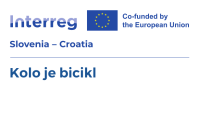
Project title:Cycling without borders
Project budget (ERDF co-financing): EUR 24.800,00
Project duration: 1.4.2025 – 31.12.2025
Project Partners: Ljubljanska kolesarska mreža, društvo za vzpodbujanje kolesarjenja in trajnostnega prometa, Udruga Sindikat biciklista, Občina Brežice, Općina Brdovec
The Cycling without borders project faces a key challenge – sustainable mobility options are not widely embraced by the residents of the border area. This deficiency hinders the community’s ability to foster mutual connection and cooperation, encouraging at the same time the dependence on motorized transport with a negative impact on the environment and the health of the population. It is particularly worrying that this negatively impacts most of those who are already in a vulnerable position in society. Cycling stands out as a practical, sustainable, and ubiquitous alternative that is accessible across all levels of society, especially because the cycling industry has developed solutions adapted to almost all groups. It is important to note that previous initiatives to encourage cycling were mainly focused on cycle tourism or sport (recreational) cycling. On the contrary, this project emphasizes cycling as a daily means of transportation (commute) and as a means of connecting within the communities of the border area. The goal is to encourage the practical use of bicycles, promoting sustainable mobility and contributing to the reduction of negative impacts on the environment and health.
Source: application form SIHR00553

Project title: Day at school for health of celiac patients and their families
Project budget (ERDF co-financing): EUR 15.974,40
Project duration: 1.4.2025 – 31.12.2025
Project Partners: CeliVita-Život s celijakijom, Celiac Slovenija – društvo bolnikov s celiakijo
The common challenge of the program area is celiac disease as a very unrecognized and often inadequately treated disease, as well as the low level of knowledge about celiac disease and the treatment-implementation of a strict gluten-free diet in patients and family members.
The only cure for celiac disease, a lifelong autoimmune systemic disease caused by gluten intake in genetically predisposed people, is a strict gluten-free diet. Untreated celiac disease can result in malignant and non-malignant complications of the disease, reflects on the quality of life of the patients and generates a public health problem in which individuals become dysfunctional members of society at the expense of the entire community. The implementation of such a diet is complex due to the challenges in choosing suitable foods and the environment in which the food is prepared. Therefore, the knowledge and skills of patients and family members are crucial for diet adherance, physical and mental health of patients. Community support is also of great importnace, especialy from those who are already dealing with the same challenges and are usually members of patient organizations.
The changes we expect after the implementation of the project are an increase in the level of knowledge of patients and family members who will participate in educational events, but also of all future users of the association who need knowledge and skills to live on a strict gluten-free diet. In this way, we ensure consistent and correct adherence to this demanding diet, increase the quality of life and preserve the physical and mental health of patients and family members. Also, the expected change is the exchange of experience and knowledge at the level of associations, which will continue to use available educational tools and materials in their work and thus make them available to a wider range of users. By connecting associations and the resources they use, we increase our own capacities and, indirectly, the capacities of our main target groups – people on a strictly health-conditioned gluten-free diet and their families.
The fairly low level of knowledge among respondents in Croatia and Slovenia, established within the CD SKILLS project – Improving celiac disease management in the Danube region by raising awareness, improving knowledge and developing better skills, is a challenge that we will deal with as part of our project. Our goal is to raise awareness of celiac disease, increase the level of knowledge about one’s own disease or the disease of family members through existing available learning tools, but also through educational events that we will be held in Slovenia and Croatia. Also, our goal is to create a network of mutual support, at the level of celiac disease associations, but also at the level of individuals. At the educational events, among other things, the e-learning tools “All about celiac disease” will be used, as well as the Gluten-free products Registry, created in previously mentioned CD SKILLS project. Since the Slovenian partner did not directly participate in the CD SKILLS project activities , this will be an opportunity to exchange experience and knowledge in the field of education of patients and family members.
The main outcomes of the project are two educational events held in Croatia and Slovenia, which will consist of a series of lectures covering all relevant topics about celiac disease, gluten-free diet and life with celiac disease. Also, we will provide enough time for discussion, questions to experts and mutual exchange of experience through informal socializing between and after lectures. We plan to invite local gluten-free food producers to the educational events, who will present their offer and provide refreshments for all participants. Special attention will be put on educational content for children who will attend the event with their parents, where basic facts about celiac disease and gluten-free diet will be communicated to them in an appropriate way. The direct beneficiaries of the educational events are people with celiac disease and family members, as well as the association itself, who will also adopt some new knowledge, good practices and experiences of their partners.
This is the first joint effort of neighbors from Slovenia and Croatia to increase the level of knowledge of patients and family members, but also of the wider community, and to strengthen long-term mutual support between associations, encouraging the transfer of knowledge and good practices. Through regional cooperation, we strengthen the capacities of people who live in a very close area, who often use the same language, go shopping in neighboring countries or visit limited number of events intended for people on a strict gluten-free diet. We also create an opportunity for personal contact, conversation and socializing, all with the aim of mutual support and longterm protection of mental health of this vulnerable groups.
Source: application form SIHR00579
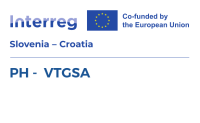
Project title: Pannonian house – the return of traditional building trends to modern architecture
Project budget (ERDF co-financing): EUR 15,974.40
Project duration: 1.4.2025 – 30.11.2025
Project Partners: ZAVOD LONČARSKA VAS FILOVCI, Zavod za turizem, kulturo in proizvodnjo keramike, Zavičajni muzej Ozalj
With the project Panonian House – bringing back traditional construction trends into modern architecture, we address the challenges of preserving knowledge about traditional Pannonian architecture and the shortage of craftsmen and roofers who can implement these techniques. This reflects the multifaceted challenges of preserving cultural heritage while also promoting sustainable development. The project’s goal is to revive the traditional craft of thatching roofs with straw through intergenerational and cross-border collaboration among local residents and craftsmen, presenting traditional Pannonian architecture in general. The project also aims to strengthen mutual trust, encourage socializing, and exchange knowledge in a relaxed and inclusive environment that facilitates knowledge transfer and connections. Cross-border collaboration is crucial due to common goals and challenges, providing an excellent opportunity to establish lasting cooperation among different groups of people.
The project is implemented by two partners, Lončarska vas Filovci, an open-air museum with two of the most characteristic representatives of Pannonian architecture – cimprači, and the Homeland Museum Ozalj, which showcases traditional architecture and artifacts of pre-industrial daily life in its Ethno Park, 1 km outside the center of Ozalj. Both partners have in-depth knowledge of the subject and extensive experience in project implementation, cultural events, and education. The partners jointly plan, execute, and finance the project, and each partner will allocate staff to ensure the highest quality of implementation. Project partnership is crucial for the successful execution of the project outlined in the application. Each partner will contribute specific knowledge and experience, enabling the acquisition of new perspectives, understanding different approaches, and learning. Collaboration will also establish a strong network and long-term partnership, allowing resource sharing, cost-effective project implementation, and the possibility of joint efforts to achieve common goals – preserving the material cultural heritage of the area and bringing it back to life, as sustainable construction also contributes to achieving environmental goals that benefit everyone.
Pannonian indigenous architecture, involving construction with clay, wood, and thatched roofs, not only preserves cultural heritage but also promotes energy efficiency. Even in ancient times, these houses were considered energy-efficient and comfortable for living due to good insulation and the use of natural materials. Today, construction trends are again turning towards the choice of natural materials, such as the rise of wooden frame constructions compared to brick. Within the project, two events are planned, namely lectures on the Slovenian side in the village of Filovci, where experts will conduct a series of lectures on traditional Pannonian construction, parallels between traditional methods and current trends in architecture, and roof thatching with rye straw. A practical workshop, demonstrating the bundling of rye straw and attaching it to the roof, will follow the event in Slovenia in a month.
The benefits of the project will primarily affect the local population, preserving local cultural identity, facilitating the transfer of knowledge across generations and borders, improving living spaces, creating new employment opportunities, and fostering new connections among the local population. Project results will increase the awareness of the local community about the importance of preserving cultural heritage and the opportunities to follow traditional construction techniques in today’s times, recognizing the advantages it brings. The project directly contributes to the revival of traditional artisan skills characteristic of the Pannonian region, with a focus on thatching roofs with straw. Ultimately, the joint result of the project is the sustainable development of the local community on both sides of the border, promoting mutual respect, friendship, and economic activity, where traditional and sustainable aspects intertwine.
Source: application form SIHR00592
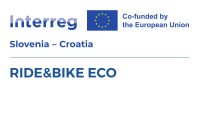
Project title: Networking the local population from Krapina-Zagorje County and the Savinja Region for the preservation of the environment and the NATURA 2000 areas
Project budget (ERDF co-financing): EUR 24,800.00
Project duration: 1.5.2025 – 30.4.2026
Project Partners: Zagorska razvojna agencija, Razvojna agencija Kozjansko
ZARA and RAKO, living,working,and observing their surroundings,have identified key challenges that the cross-border area of KZŽ and the Savinja region has been facing in recent years:1) a lack of communication among the local population, beyond established family and/or friendship ties,2) insufficient collaboration among the local population,further exacerbated by border closures and physical movement restrictions after the COVID-19 pandemic,3) insufficient awareness of the importance of the Natura 2000 ecological network for the local population,4) lack of recognition of the possibilities for capitalizing on the ecological network and its benefits for the local population,and 5) increasing alienation from nature, ultimately leading to health issues related to mental health and obesity.The RIDE&BIKE ECO project will play a significant role in reconnecting cross-border areas, fostering mutual socializing and experience exchange, and being an important starting point for initiating new joint initiatives by the population.The project will organize 2 events-a cycling event (1xHR) and a trail (1xSI),to raise awareness among the population that they are part of the Natura 2000 ecological network and the importance of environmental conservation.Additionally,by actively spending time in nature, it will enhance awareness of the importance of physical activity as a means of preventing obesity and the use of bicycles as a sustainable mode of transportation.Therefore, the project focuses on building additional trust among residents and will make them aware that the full impact of environmental protection and planet conservation can only be achieved through collaboration.The main goal of the project is to improve cross-border partnerships in the field of environmental conservation and sustainable practices through cross-border initiatives in Natura 2000 areas.The specific objective of the project is to increase awareness of the importance of nature conservation in the Natura 2000 through the organization of a cross-border cycling event in the KZŽ and a trail in the Savinja region.The main focus is to ensure the improvement of cross-border collaboration between the local population of the border area of KZŽ and the Savinja region in the field of environmental protection and the promotion of Natura 2000 areas and their capitalization.Local residents will have the opportunity to build and upgrade strained mutual trust, strengthen awareness of the importance of the Natura 2000 ecological network,and the possibilities of capitalizing on living in or directly near Natura 2000 areas.Additionally,the project promotes a healthy lifestyle and the importance of spending time in nature and using bicycles as a sustainable mode of transportation.The main outcomes of the project will be two public events (cycling event-1xHR, trail-1xSI) and two new cross-border cooperation initiatives.Although individual collaboration exists,and partners are familiar with each other, there are still opportunities for improvement and enhancement of collaboration.Therefore,the project focuses on local communities and their active involvement in active stays in nature on both sides of the border for a shared experience and connection, simultaneously informing them about the richness of biodiversity and natural values in Natura 2000 areas.Through active stays in nature,i.e.,cycling and trail running, opportunities will be created for event participants to establish connections and partnerships and enhance cross-border collaboration.In addition,through informational corners,actions for environmental conservation will be encouraged, and cultural exchange between communities will be promoted,thus fostering mutual understanding and respect for diversity.Cross-border collaboration,in this case, is of utmost importance since (in)action on one side of the border has a direct impact on the other side of the border.Specifically,the environment and nature remember every human action,and the effects of negative impacts on the environment are transmitted to other areas and other local communities.Therefore, although the project activity (cycling and trail events) can be independently organized, the expected effects and benefits of implementing this project are not possible without cross-border collaboration and the participation of a broader range of local communities on both sides of the border.Common practices for raising awareness among the local population include lectures and workshops where the importance of environmental conservation is verbalized.However,this project leads by example,learning through action,and demonstrating respect for the environment and its conservation through a practical and concrete example of how to truly achieve it.Therefore, the project focuses on building additional trust among residents and will make them aware that the full impact of environmental protection and planet conservation can only be achieved through collaboration.
Source: application form SIHR00635
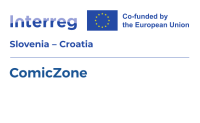
Project title: Comic zone – one day, two languages, countless stories
Project budget (ERDF co-financing): EUR 24,800.00
Project duration: 1.4.2025 – 31.1.2026
Project Partners: Knjižnica Mirana Jarca Novo mesto, Gradska knjižnica »Ivan Goran Kovačić«
With the “Comic zone – one day, two languages, countless stories” project, we invite you to the rich world of visual art, where cultural influences, imagination and creativity intertwine, telling stories that connect the cross-border programming area.
In the framework of the project, we address several cross-border territorial challenges, such as the lack of cross-border social ties, insufficient cultural exchange and cooperation in the field of comic art, poor knowledge and misunderstanding of the depth of this artistic genre, gradual loss of interest in reading physical books and classic forms of cultural experiences among younger generations, an insufficient level of reading literacy and intergenerational alienation.
The general goal of the “ComicZone” project is to encourage cooperation, integration and building trust among the general public in the cross-border area through the world of comics and visual arts. By organizing events where we will host diverse creators, aimed at the cross-border population of all generations, we strive to strengthen cultural ties, encourage passion for reading and visual arts, and establish sustainable foundations for cross-border cooperation.
The result of the project will be the cross-border cooperation of two organizations, which will jointly design and implement two culturally colored physical events intended for the general public of the local population from both sides of the border. By holding events, we will strengthen mutual trust and connection in the cross-border area by getting to know the world of comics and visual art, and at the same time contribute to increasing reading literacy, which is a prerequisite for the development of individual potentials and successful cooperation in society.
The project primarily targets the local community, while also bringing benefits to comic book creators, other cultural contributors, and local authorities.
The need for cross-border cooperation stems from the recognition of the cross-border territorial challenges addressed by the project. At the same time, the innovativeness of the project is expressed precisely in the unique approach to addressing these challenges, which further emphasizes the importance of cross-border integration.
The project uses the benefits derived from cultural content to address the more complex social challenges facing the cross-border program area. Despite the fact that it basically focuses on comic art, it does not treat comics as an isolated art form, but rather includes the exploration of the entire spectrum of visual art. With an emphasis on encouraging interdisciplinary thinking, the project creates a deeper understanding of how art transcends traditional boundaries, not only between artistic genres, but also between cultures and generations. Through project activities, the local cross-border community is brought closer to the fact that we ourselves are only part of a wider cultural structure that co-creates a rich and diverse whole.
By placing art in the context of more complex social challenges, we contribute to the creation of an open, connected and diverse community in the cross-border area.
Source: application form SIHR00651
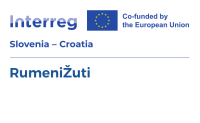
Project title: RumeniŽuti
Project budget (ERDF co-financing): EUR 15,974.40
Project duration: 1.4.2025 – 31.12.2025
Project Partners: ISTENIČ proizvodnja vin in prodaja d.o.o., Lu-Ma Eksluziv d.o.o., Nespecijalizirana trgovina na veliko
With the RumeniŽuti project, the project partners Istenič and LU-MA Ekskluziv are focusing on solving several challenges and exploiting opportunities in the wine industry in the cross-border area of Slovenia and Croatia. The main challenges we are addressing include the preservation of wine heritage, the lack of knowledge and awareness of the specific grape variety called Rumeni plavec, which grows in Bizeljsko (Slovenia) and the area of Plešivica and Jastrebarsko (Croatia), the creation of a wine community, international cooperation and global visibility, and sustainable tourism attractiveness. The project aims to raise awareness of the importance of preserving this specific grape variety and to encourage cross-border cooperation and networking with the aim of sustainable development of the wine sector on both sides of the border.
The project also aims to strengthen cooperation between producers, professionals and wine lovers, to promote knowledge exchange and to contribute to the development of the wine community in the cross-border area. The project will enable participants to acquire new knowledge about the Rumeni plavec and to adopt a sustainable and innovative approach to viticulture and wine-making.
The training events to be held in Zagreb and Bizeljsko will be key to achieving the project’s objectives. Both events will host top experts in the field who will deepen the knowledge of the Rumeni plavec, focus on sustainable viticulture and wine/sparkling wine production, and present the history, culture and state-of-the-art research in the field. In addition, the two events will offer participants an insight into local viticulture practices, share knowledge and experience between stakeholders and encourage the search for common opportunities for the development of the region in a wider context.
The project will be implemented through carefully planned activities aimed at achieving the set objectives. The evaluation of the project at all stages of its implementation will provide feedback and a basis for improvements in the next steps and in the next joint undertakings.
Both project partners, Istenič and LU-MA Ekskluziv, expect to enrich their knowledge and experience and strengthen their cooperation, which will contribute to improving the quality of the wine sector on both sides of the border. With the RumeniŽuti project, we are committed to cross-border sustainable development and networking in the wine sector and to strengthening the region’s visibility and reputation in the world of the wine industry.
The RumeniŽuti project is an innovative way of linking Slovenian and Croatian winemakers on the basis of the specific grape variety called Rumeni plavec. By focusing on sustainability, sharing knowledge and strengthening the wine community, we will make an important contribution to raising the quality and visibility of the wine sector in the region.
Source: application form SIHR00683
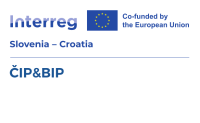
Project title: Strengthening comprehensive palliative care in the cross-border regions of Croatia and Slovenia
Project budget (ERDF co-financing): EUR 688.059,26
Project duration: 1. 3. 2024 – 28. 2. 2026
Project Partners: Županijska bolnica Čakovec, Dom zdravlja Čakovec, Slovensko društvo Hospic, Splošna bolnišnica Murska Sobota
The project addresses common challenges in the program area related to palliative care, ensuring quality education for palliative care professionals,the lack of regulatory framework of the area,the absence of cross-border cooperation in palliative care despite the proximity of the border and similarities in the healthcare workforce structure and finally,the project deals with the insufficient awareness among palliative care professionals and the general public.Given the aging population and the increasing prevalence of incurable diseases,which consequently leads to an increase in the number of palliative care service users across the entire cross-border region,it is crucial that the quality of these services be of the highest quality.Providers of palliative care services come from various sectors or professions,including:healthcare professionals, psychologists, social workers, and spiritual care providers (referred to as professionals hereinafter).None of these professionals receives sufficient education and training in palliative care during their formal education, which poses a challenge to their work in this field.The field of palliative care covers various areas of practice, and its beneficiaries are not only patients but also their families and society at large.Therefore, professionals in this field need to have knowledge and skills in different areas, including the principles and organization of palliative care,patient care (physical, psychosocial, spiritual), family care (support for pain and grieving),ethics in palliative care, interdisciplinary teamwork, and communication(which is crucial as the palliative care team works together to care for the individual).The palliative care system at the national level in none of the partner countries has not been established. Therefore, professionals are in a situation where they need to establish a system in the cross-border area through this project with joint solutions and pilot actions, they aim to enhance and improve the quality of healthcare services in palliative care.
The main common objective of the project is to strengthen the capacity of professionals in the field of palliative care and establish cross-border cooperation in the exchange of knowledge and experience in palliative care. This will be achieved through the development of joint sustainable solutions to improve access to palliative care for users in the cross-border area.
The objective will be achieved through the implementation of project activities that are purposefully designed to approach palliative care in a more integrated and systematic way, and that are designed to be multiplied in all regions in the cross-border area, as well as in other EU regions.
The main outcomes that will be achieved are:
1.A joint action plan for the provision of palliative care services in the cross-border area and protocols as a unified document for the establishment and improvement of the palliative care system in each healthcare institution and/or community in the cross-border area.
2.Joint participation of 4 institutions, whose extensive experience and expertise of their professionals in this field is an indication that the implementation of project activities will guarantee an improvement in the palliative care service, not only in the border area but also as a catalyst momentum for the development of the field at national and EU levels.
3.Joint educational pilot material in the form of educational digital resources on palliative care to bridge the gap between the necessary knowledge in providing palliative care services and the knowledge obtained through formal education of healthcare professionals and other stakeholders in palliative care.
Already at the time of the development of the project idea, areas and systematic approaches were identified that are regulated better than elsewhere at certain local, regional and national levels. Cross-border cooperation is therefore necessary to address common issues, transfer work methods, knowledge, and regulations, demonstrate in a real environment, and pilot test shared experiences.All project outcomes will serve as a professional basis for systematic or normative regulations in the field.From the above mentioned, it is clear that the implementation of this project with only a local, regional, or national approach would not be possible, as it would not lead to international cooperation and intensive transfer of knowledge, work methods, and new practices between areas with different regulatory systems.
The project is innovative in its approach as it also contributes to reducing inequalities within and between regions in the cross-border area.All professional staff employed by project partners will have equal participation in developing their competencies and shaping a unique learning model.Consequently,end-users of palliative care,regardless of their location, will have equal access to hospital-based or home-based palliative care, according to their needs.
Source: application form SIHR00063

Project title: Organization of sports events for persons with disabilities in the cross-border area of Međimurje County and Pomurje Region
Project budget (ERDF co-financing): EUR 9,216.00
Project duration: 1. 4. 2025 – 31. 8. 2025
Project Partners: Međimurska županija, Občina Beltinci
The project „Organization of sports events for persons with disabilities in the cross-border area of Međimurje County and Pomurska Region“, the project acronym Sport4All, is focused on solving the common challenges of the programme area and that is focus on promoting the inclusion of persons with disabilities in sports and recreational activities, who are faced with significant social exclusions, especially due to measures to prevent the spread of the COVID-19 disease. The main goal of the project is to build confidence and comprehension between the target groups of the cross-border area by organizing two physical sports events on the Mura river in Slovenia and on the Drava River in Croatia with accompanying activities that will contribute to reducing social marginalisation for at least 60 persons with disabilities. Still a small number of persons with disabilities participate in sports activities, and the project activities aim to achieve the active involvement of persons with disabilities and children with developmental disabilities in sports and recreational activities, as well as the acquisition of healthy habits and becoming active in the local community. Cross-border socializing will encourage the creation of mutual confidence and comprehension between people living in the cross-border area. Along to sports activities, project activities will also focus on proper behavior in nature and how to carry out activities in nature without having a bad impact on the environment. After participating in the project activities, the target groups will be aware of and responsible for the environment and nature. The main outcomes that will be achieved are Outcome 1.1. Ensured a higher level of cooperation and strengthening of connectivity, networking and intergenerational solidarity of cross-border associations and Outcome 1.2. Organized 2 cross-border physical sports events for persons with disabilities. Benefits from organized sports events and established cooperation will have regional and local public bodies (decision makers), interest groups – associations from Slovenia and Croatia that are focused on improving the quality of life of persons with disabilities, schools where work is focused on improvement and development of children with developmental disabilites and their families and other target groups. Joint cross-border sports events are important for increasing the connection and networking between people living in the border area, especially for persons with disabilities, as it will contribute to increasing the quality of life of these people. The project will use an approach of mutual cooperation and networking with the aim of building mutual confidence and strengthening connections between people living in the cross-border area of Međimurje and Pomurje, especially persons with disabilities and children with developmental disabilities. The value of the project is reflected in the inclusion that enriches sport, individuals and society in the cross-border area. The innovations that the Sport4All project brings are visible in the area of establishing a higher level of cooperation and strengthening connectivity and networking for persons with disabilities in the cross-border area, as well as the inclusiveness of persons with disabilities and children with developmental disabilities in sports and recreational activities with the aim of acquiring healthy habits.
Source: application form SIHR00384
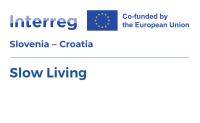
Project title: Live slower, preserve the natural and cultural heritage of the Karst and Northern Istria
Project budget (ERDF co-financing): EUR 24,800.00
Project duration: 20. 3. 2025 – 19. 10. 2025
Project Partners: Fair Legacy Hub, Inštitut za pravično in trajnostno dediščino, Modelna šuma Istra
The guiding principle of our project is the concept of Slow Living, closely linked with sustainable development principles, honoring natural and cultural, tangible and intangible heritage. It advocates not only for a “slower” pace but also for more thoughtful, caring, and profound living, emphasizing quality interpersonal relationships, respect for tradition, and all sustainability principles – zero waste, circular economy, DIY, green is smart, less is more, degrowth, yesterday for tomorrow, back to nature, “Refuse Reduce Reuse Recycle Repurpose”, RE-think.
The project will take place in two regions – the Slovenian Karst and Northern Istria, Croatia, addressing the populations of both rural areas. Contrary to popular stereotypes, life in these regions isn’t just idyllic and carefree, or everyone here lives happily and in harmony with nature and tradition. Indeed, many residents equate “progress” with hasty, instant development which ultimately harms the same and all subsequent generations. By fostering mutual trust, we aim to overcome the mistaken and dangerous mindset in Karst and Northern Istria, where success and future prospects are often seen in accelerated, overly consumeristic, atomized lifestyles, accumulating material goods, competitiveness, thoughtless interventions in the environment, and view the preservation of pristine nature and respect for heritage only as a “development obstacle.”
Our goal is to enhance mutual trust among the residents of Kras and Northern Istria, raise awareness about the importance of responsible management of natural resources, encourage appreciation and preservation of our natural and cultural heritage, promote creativity rooted in nature and tradition, and revive sustainable practices passed down by our grandparents, in harmony with nature. This will inspire local communities in the cross-border area towards developing a sustainable economy respectful of the environment, heritage, and inhabitants.
Some youth will be encouraged to consider returning or staying in their hometowns to develop their businesses, fostering intergenerational connections, mutual transfer of knowledge and skills between the old and the young, tradition and heritage preservation, and environmental conservation. One of the sectors is certainly inclusive sustainable tourism. Thus, Slow Living will not remain just a romantic concept but will become a guiding principle.
Our cross-border project will have two main effects. Firstly, it will involve two organizations: Fair Legacy Hub from Kras, Slovenia, and Modelna šuma Istra from Istria, Croatia, fostering cross-border collaboration. Secondly, these organizations will jointly organize two major public cross-border events, enhancing cross-border trust and encouraging collaboration among residents. The benefits of the project will primarily accrue to the residents of Karst and Northern Istria, but indirectly, both partner organizations and their employees will benefit from the experiences gained.
Cross-border cooperation is crucial for our project to achieve the expected long-term, enduring changes The general goal of the project requires a change in mindset, values, priorities, collective responsibility not only in the narrower local environment but also in the broader cross-border area. Only through cross-border collaboration and trust-building can the project contribute to changing habits and lifestyles, ultimately leading to a more sustainable way of life for people in the wider cross-border region.
For the residents of Kras and Northern Istria, we’ll organize two major cross-border events: in the Karst grove near the village of Tomaj, in the forest and the village Brest pod Učkom in Istria. We’ll strengthen the concept of Slow Living through six themes based on Karst and Northern Istrian environment and heritage; at each event, 3 topics will be presented by an expert from Istria, and 3 by an expert from Kras: SLOW TEAM WORK (Karst: UNESCO’s intangible heritage demonstration – dry stone walling skills; Istria: demonstration of “karbunice«, wooden »pyres« burned to produce charcoal), SLOW FOOD (presentation of dishes from wild herbs of the Karst; presentation of mushroom dishes and mushrooms from the Istrian forest), SLOW BEAUTY AND HEALTH (natural cosmetics from Istrian plants such as laurel, immortelle, dog rose, and Karst plants marigold, lavender, Karst satureja), SLOW CREATIVITY (art therapy in the Istrian nature, presentation of textile dyeing techniques using Karst natural materials – terracotta, clay, plants), SLOW AWARENESS (physical therapy in the Karst grove, forest bathing in the Istrian forest), SLOW PLAYFULNESS (Karst shepherd games and treasure hunt for the Karst Ward’s glass; toys made from Istrian felt wool).
We’ll ensure sustainability also in refreshment ingredients and packaging (e.g., reusing used yogurt cups). After the events, people will “cross-border socialize” in an FB group “Slow down Kras, Slow down Istria.”
Source: application form SIHR00402
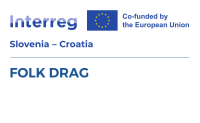 Project title: Folklor nam je DRAG
Project title: Folklor nam je DRAG
Project budget (ERDF co-financing): EUR 24.800,00
Project duration: 1.5.2025 – 31.12.2025
Project Partners: Studentsko kulturno-umjetničko društvo “Ivan Goran Kovačić”, Folklorna skupina Dragatuš
The common challenge in the field of programming is the lack of connectivity and understanding among the residents of cross-border areas between Slovenia and Croatia. The project “Folklor nam je DRAG” will address this challenge through cross-border collaboration by organizing concert events featuring traditional music.
The main goal of the project is to establish mutual connections among children’s folklore groups and create long-term friendships between them through learning, preparation, and performance. This will be achieved by organizing two concert events in Zagreb and Semič, where over 100 members of children’s groups participating as project partners will showcase various examples of traditional cultural heritage from the border areas of the Republic of Croatia and Slovenia.
Cross-border collaboration is crucial as it will facilitate the exchange of traditional cultural heritage between Slovenia and Croatia, contributing to building mutual trust and strengthening connections. We expect to achieve increased connectivity, understanding, and intergenerational support among the residents of Slovenia and Croatia through these concert events. This aims to reduce the gap between communities and encourage knowledge exchange and interaction.
The project outcomes include the organization of two concerts featuring traditional music, one in Semič and one in Zagreb. The events will involve 75 members of the Children’s Folk Ensemble “Ivana Gorana Kovačića” from Zagreb, divided into younger (5 to 10 years), middle (10 to 14 years), and older groups (14 to 16 years), as well as a children’s folk orchestra. Additionally, 35 members of the Children’s Folk Group Dragatuš (9 to 13 years old) will participate with their children’s instrumental group. Members of children’s folklore groups will present traditional music from the Croatian-Slovenian border area to the interested public. In preparation for the concerts, members will learn and perform various cross-border traditional songs and instrumental pieces through preparatory workshops and joint rehearsals. The children from Dragatuš will learn to sing and play traditional music from Croatian border areas, while the children from Zagreb will learn traditional music from Slovenian border areas. They will have the opportunity to showcase their learned musical pieces at the concerts in Semič and Zagreb.
The benefits will extend to the local population on both sides of the involved border, including over 100 members of children’s folklore groups from Semič and Zagreb, their families, group leaders, staff involved in organizing the events, local small and medium-sized businesses collaborating in the event organization, and the broader interested audience from the border areas attending the concerts. We expect an increase in awareness among the local population about the cultural richness of the border area.
The innovation of the “Folklor nam je DRAG” project lies in its focus on traditional music and connecting children’s folklore groups from different regions. This “from citizens to citizens” approach, through cultural exchange, aims to deepen mutual understanding, especially among young people. The project has the potential to have a long-term impact on cross-border communities, promoting collaboration and connectivity within the regions.
Source: application form SIHR00419
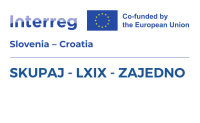 Project title: Connected like 2000 years ago
Project title: Connected like 2000 years ago
Project budget (ERDF co-financing): EUR 24.800,00
Project duration: 1.5.2025 – 31.10.2025
Project Partners: Poetovio LXIX društvo za rimsko zgodovino in kulturo Ptuj, Udruga žena “Naši cajti” Varaždinske Toplice
The project SKUPAJ – LXIX – ZAJEDNO was developed and will be implemented by the Poetovio LXIX Society for Roman History and Culture from Ptuj and the Women’s Association “Naši cajti” from Varaždinske Toplice. They are connected by the preservation of cultural heritage and traditions from the time of the Romans.
We will organize two cross-border historically relevant events that will allow visitors to enjoy the era of ancient Rome, get to know each other, and build mutual connections. Various activities will take place in Roman tents (baking traditional Roman bread Libum and tasting Roman wine Mulsum, cooking meat and vegetable dishes, preparing fish, roasting meat on an open fire, making Roman desserts, exhibition and production of pottery and wooden products…) alongside cultural programs (Vestal dance, Roman Army presentation, craftsmen…). The events will be held in Ptuj and Varaždinske Toplice, open to the local residents of the Podravje and Varaždin regions. We expect around 200 visitors and dozens of performers at each event.
The goal of the events is to contribute to the realization of the program priority of the “Mutual Reconnection”, which also contributes to the general objective of our project, “strengthening mutual trust among residents of the Podravje and Varaždin regions through get-to-know each other and establishing connections at two major cross-border events.” We expect participants to be inspired for more cross-border cooperation, and local associations/organizations to lay the ground for lasting mutual collaboration. The main effects of the project will be the joint organization of two cross-border events and close cooperation between the two project partners in the development and implementation of the project. The effects are aimed at residents living along the border to overcome the limitations set by the border and improve the quality of life.
Unlike most local events, the organized events stand out because they are not designed like concerts, markets, or sports events. The events will include both music and the presentation of historical customs, active participation of visitors, as well as various tastings. The target audience is very broad, with a focus on children and families. Organization requires partners from both sides of the border to jointly ensure a sufficient number of participants and effective promotion among visitors on both sides of the border.
Source: application form SIHR00442
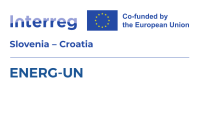 Project title: ENERGy and Renewable Resources: Youth UNited for Sustainable Practices of the Future
Project title: ENERGy and Renewable Resources: Youth UNited for Sustainable Practices of the Future
Project budget (ERDF co-financing): EUR 15,974.40
Project duration: 1.5.2025 – 31.12.2025
Project Partners: Srednja škola Ivanec, Evropski kulturni in tehnološki center Maribor so.p.
The shared challenge of the program area addressed through cross-border cooperation within our ENERG-UN project revolves around connecting the learning youth of both countries. The project aims to promote mobility in education, implement best practices into educational systems, and enhance environmental awareness among the youth. Slovenia and Croatia face challenges related to global warming, increasing emissions, and the need to transition to sustainable energy sources.
Youth play a crucial role in shaping a sustainable future, but they often lack awareness, knowledge, and opportunities for active engagement in sustainable practices, particularly in the realm of climate change. The ENERG-UN project focuses on addressing this challenge through collaboration between Slovenian and Croatian students. Through the exchange of knowledge, experiences, and ideas, awareness of the importance of environmental sustainability is fostered.
The innovative integration of didactic tools for renewable energy sources and hands-on experiments enables students to gain practical experience and knowledge about using green energy sources and measures to reduce carbon footprints. Joint workshops promote cross-cultural connections. By participating in the project, students learn about different approaches and ways of thinking and acting regarding cross-border environmental issues, strengthening trust and contributing to better cooperation between the two countries.
Additionally, students develop skills such as teamwork, communication, critical thinking, and practical problem-solving. These skills will benefit them in their further education and life. Through collaborative efforts to address challenges for a sustainable future, students cultivate a sense of community, belonging, and an understanding of the importance of the task of preserving our planet.
The overarching goal of the ENERG-UN project is to strengthen mutual trust and create an ecosystem of cross-border cooperation, connecting youth from Slovenia and Croatia in the field of environmental awareness. By organizing youth events during the project’s duration, we aim to enable students to actively participate in solving environmental problems. A qualitative measure of the project’s success is the increased knowledge and awareness of youth about their pivotal role in addressing environmental issues. The project also aims to improve intercultural understanding among students and to strengthen and continuously enhance their teamwork, communication, critical thinking, and problem-solving skills in the context of environmental sustainability. Project activities encourage the exchange of knowledge, experiences, and best practices among organizations, contributing to the development of new innovative approaches in the field of sustainable development.
The unique project idea includes the development of innovative pilot activities in the educational process on the topic of sustainable development through practical work, utilizing technologically advanced didactic tools for cross-border involvement of youth. The project raises awareness among participants that everyone has an equally important role in solving environmental problems, without discrimination. Collaboration with key partners, such as the Ivanec High School and the European Cultural and Technological Center Maribor, highlights the crucial role of partnerships and collaboration with educational institutions, emphasizing involvement in cross-border networking. Partner collaboration contributes to increasing the impact of the project at the local and cross-border levels, strengthening the role of promoting sustainable practices among youth, and gaining recognition in the region.
Source: application form SIHR00448
 Project title: The Lore of Čičarija
Project title: The Lore of Čičarija
Project budget (ERDF co-financing): EUR 15,974.40
Project duration: 1.4.2025 – 30.11.2025
Project Partners: ZAVOD DOBRA POT, ZAVOD ZA KULTURO IN SONARAVNO DELOVANJE, Babucera – Udruga za zaštitu i revitalizaciju sela Brgudac
“The Lore of Čičarija” project specifically addresses the challenges faced by Čičarije, an area of the landscape in the northeastern part of Istria that stretches across the Slovenian-Croatian border. This region has experienced drastic demographic and tumultuous historical changes that have resulted in disconnection between communities on both sides of the border. The primary challenge is the weakening of cultural and social ties, exacerbated by the influx of newcomers who are often disconnected from or have a distorted view of local heritage.
The main aim of the project is to reconnect the people living in the area, both long-term residents and newcomers, by reviving the region’s rich cultural heritage. This initiative is focused on strengthening mutual understanding and cooperation through cultural engagement. The expected change is a strengthened sense of community, a restoration of mutual trust and a renewed respect for a common cultural heritage that will bridge the gap created by historical and demographic shifts.
Key results of the project include:
A documentary that delves into the cultural heritage of the Čičari region, with the aim of telling the stories and traditions that define the area.
A series of 4 cultural events on both sides of the border (2 on each side) designed to promote cross-border interaction, allowing participants from both sides of the border to participate in heritage-related activities.
The beneficiaries of these outcomes are local residents, community leaders, educators, youth, creatives and heritage professionals who will benefit from increased cultural awareness and community building activities.
The project’s approach is cross-border by desing, because the challenges faced by Čičaria are not limited to a single nation, but are shared across borders. This cross-border approach is essential to effectively address issues of cultural disconnection and promote a more unified regional identity.
The project is original in its basic approach to cultural revitalization, which focuses on directly involving local communities in the storytelling process. It emphasizes non-tourism cultural engagement, ensuring that initiatives are deeply rooted in the needs and interests of the local population, thus ensuring sustainability and long-lasting impact.
Source: application form SIHR00454

Project title: COASTAL STORIES
Project budget (ERDF co-financing): EUR 24.800,00
Project duration: 1.4.2025 – 31.12.2025
Project Partners: NASTAVNI ZAVOD ZA JAVNO ZDRAVSTVO ISTARSKE ŽUPANIJE, Obalni dom upokojencev Koper – Casa costiera del pensionato Capodistria, DOM ZA STARIJE I NEMOĆNE OSOBE POREČ
The “Coastal Stories” project stems from a common challenge in the program area of the Republic of Croatia-NE, where we are faced with a lack of initiatives that encourage intergenerational cooperation and promote a healthy lifestyle, especially among older citizens. The cross-border cooperation established through the project is aimed at connecting institutions from Croatia and Slovenia in order to jointly face this challenge.
The main goal of the project is to build mutual trust by encouraging action by citizens for citizens, creating a cross-border platform for the promotion of movement and healthy eating. Through the activities of the project, the aim is to encourage the community, especially older citizens, to an active life and healthy eating habits.
Expected changes:
We expect a positive change in the perception of the elderly population about the importance of an active life, and encouragement to adopt healthy eating habits. Through participation in events and the adoption of healthy eating recommendations, we want to achieve a long-term effect on the health and quality of life of the general population, especially older citizens.
The main outcomes of the project:
Cross-border events: 2 bilateral cross-border events dedicated to the promotion of movement and healthy eating habits, with an emphasis on senior citizens, will be organized. These events will include various activities, such as walks, exercises and advice from experts, and tasting of traditional dishes that will be prepared for the occasion. During the project, a brochure will be produced in three languages (Croatian, Slovenian, Italian).
The brochure will contain general guidelines for proper nutrition for the elderly population, nutrients that are most often deficient in the elderly population and which foods can be used to prevent deficits, as well as recipes for traditional dishes in the cross-border area that will be adapted to the elderly, and which will be created in collaboration by nutritionists and cooks. The brochures will be available to the general population, local restaurants and homes and will promote proper nutrition in old age.
The wider community will benefit, especially senior citizens, who will have the opportunity to participate in events, improve their health and make new connections. Local restaurants, social and health institutions will have the opportunity to implement healthy menus, which will positively affect the quality and attractiveness of their offer.
Project approach:
The approach of the “Coastal Stories” project includes the active participation of partner institutions in the design of the program, the cooperation of movement experts and nutritionists, and the integration of innovative approaches, such as experiential education and motivation (joint exercise and tasting of selected healthy traditional dishes from the cross-border area at joint bilateral mass events). Cross-border cooperation is essential in order to share best practices and face challenges concerning the elderly population on the coast between Croatia and Slovenia.
Innovativeness of the project:
The “Coastal Stories” project is innovative in its approach to cross-border cooperation through several key aspects:
-Cultural diversity as a resource: instead of perceiving cultural diversity as an obstacle, this project promotes it as a resource. Through cooperation with partners from Croatia and Slovenia, efforts will be made to create bridges between communities. We will integrate local heritage into the project activities, thus promoting understanding and respect between the citizens of both countries.
-Common challenge: the project identifies a common challenge of the cross-border area – the promotion of a healthy lifestyle among the population, with an emphasis on the elderly. Through joint events and the creation of healthy menus that reflect local culinary traditions, we will face the challenge of inactivity and unhealthy eating that affects both communities.
– Creation of a network of local stakeholders: cooperation will not be limited only to partner institutions. Local communities, civil society organizations, business entities and the public sector will be actively involved. This will create a sustainable network that will remain active even after the end of the project, encouraging further cooperation and exchange of experiences.
-Education and motivation through experience: instead of traditional educational approaches, this project offers experiential education. Through 2 bilateral events, citizens will be encouraged to participate in the creation of positive changes themselves. This participatory method encourages civic engagement and long-term sustainability of change.
Source: application form SIHR00470

Project title: Panoramic descent down Mura River
Project budget (ERDF co-financing): EUR 6.144,00
Project duration: 1.4.2025 – 31.10.2025
Project Partners: Općina Domašinec, Ekološka udruga Murščak, Društvo člonarjev Dokležovje
The project proposal Panoramic descent down Mura River, project acronym MuraTour, is aimed at solving the challenges of the cross-border area, which mostly relate to the creation of mutual understanding and trust, cohesion and solidarity, which represent solid foundations for building good neighborly relations, but also partnerships and friendships. The project will contribute to the achievement of the Programme priority specific objective 6.3: Building up mutual trust, in particular by encouraging people-to-people actions in such a way that local residents of the cross-border area are encouraged to engage in civic activism and proactively initiate and participate in new cross-border events that are an integral part of this project proposal. Accordingly, the main goal of the MuraTour project is to build mutual trust and understanding among the residents of the cross-border area and to raise awareness of joint responsibility for climate, environment and preservation of biodiversity of the Mura River.
The implementation of the work package Panoramic descent on the Mura River in rubber boats includes two activities: Activity 1.1 Descent on the Mura River from Apače to Gibini and Activity 1.2 Descent on the Mura River from Sveti Martin na Muri to Goričan.
Activity 1.1. it is enriched by sub-activities related to the implementation of educational lectures or workshops on the importance of preserving the environment, natural ecosystems and autochthonous flora and fauna of the cross-border area with the aim of raising awareness, but also practical education on ways how to protect ecosystems and the preservation of natural types of habitats and all species that live on them.Activity 1.2 includes the organization of a guided visit to the “Med dvemi vodami” Visitor Center, during which participants will have the opportunity to explore the center’s permanent exhibition and learn about the specific features of Međimurje’s natural heritage and the importance of its preservation.
The implementation of the planned activities will result in achieving following outcome: Outcome 1.1 Strengthening of cross-border cohesion and solidarity, which represents a prerequisite for the creation of partnership and future cooperation. The stated outcome will contribute to the realization of the outcome of the program RCO87 6.3: Organizations cooperating across borders.
Given that the Mura River represents a common good of the residents of cross-border area on both sides of the border, cross-border cooperation is essential in this project proposal. The Mura River is protected at the Croatian level as a Regional park, while on international level it is protected by the UNESCO program “Man and the Biosphere” as Mura-Drava-Danube Transboundary Biosphere Reserve. The above testifies to the exceptional value of the Mura River at the regional, national and international level, which can only be preserved through joint efforts of the residents of the cross-border area. It is precisely for this reason that the MuraTour project proposal was designed in an innovative way, that is, it includes new bilateral recreational-educational events and activities that will enable the target groups to build good neighborly relations, as well as new partnerships and friendships, with a common goal of preserving protected ecosystem of the Mura River.
Source: application form SIHR00481

Project title: DRAVACON
Project budget (ERDF co-financing): EUR 24,800.00
Project duration: 1.4.2025 – 31.12.2025
Project Partners: Občina Zavrč, Općina Cestica
The project is an effort to strengthen cooperation between municipalities on the Slovenian and Croatian sides of the border. The aim of the project is to foster cohesion and develop cross-border partnerships through the organisation of two “DRAVACON” events. Both events bring together diverse activities and are designed to promote cross-border dialogue, people-to-people relations and sustainable development.
At the heart of our efforts is the desire to improve relations between people on both sides of the border, which have been marked by the establishment of the Schengen border. Connecting through DRAVACON is not just a recreational river run, a local market and a social event with food and drinks; it is an effort to transcend borders and improve cooperation and understanding between communities. In parallel with the organisation of the event, we are trying to reduce our environmental impact by waste separation, the use of biodegradable materials, sustainable mobility and the promotion of sustainable use of natural resources.
The events organised are not only an opportunity to socialise, but also to highlight local identity and economic development. The local markets are an opportunity to support and get to know local suppliers who represent the richness and diversity of the region. The cultural programme and culinary experiences add a touch of uniqueness, which builds a solid foundation for local identity. Through the project we aim to increase people’s trust between the two municipalities, create lasting links and benefits and contribute to building a sustainable future for the cross-border area. We will hold 2 bilateral cross-border events (1x in SLO, 1x in HR) and 1 cooperation agreement between the municipalities will be signed, which will also be the basis for the continuation of similar meetings.
Source: application form SIHR00500

Project title: The Lens of Inclusion: Lake and Sea Biodiversity
Project budget (ERDF co-financing): EUR 15,360.00
Project duration: 1.4.2025 – 31.10.2025
Project Partners: Plavalni klub Slovenske Konjice, Klub podvodnih aktivnosti Adria
The project is an innovative and comprehensive initiative aimed at promoting cross-border cooperation, raising awareness of environmental protection problems and the social inclusion of people with disabilities and the elderly. The key goals of the project are to strengthen mutual trust, promote a sustainable way of life, connect stakeholders, and actively involve people with disabilities and the elderly in the community. The project stands out for its originality and the integration of different activities that combine diving, underwater photography, education about biodiversity and the inclusion of people with disabilities and the elderly.
PROJECT PRESENTATION
The project lays the foundation for the cross-border integration of two partners, the Swimming Club of Slovenske Konjica (PKSK) and the Diving Club Adria (KPA Adria) through the organization of two events with diving activities, underwater photography and video, as well as education about the biological diversity of Lake Velenje and the Adriatic Sea. The main goal is to strengthen mutual trust, promote cooperation and include all generations, including people with disabilities.
Project partners KPA Adria and PKSK combine the competencies of diving, underwater photography and care for people with disabilities and the elderly, to promote sustainable inclusive tourism and preserve the biodiversity of freshwater and the Adriatic Sea.
PROBLEM IDENTIFICATION
– Starting points: Lack of cross-border cooperation, limited awareness of environmental issues and social exclusion of persons with disabilities and the elderly.
– Objectives: Active contribution to creating sustainable solutions and promoting inclusive relationships at the local and cross-border level.
PRESENTATION OF THE EVENTS SPACE
– Lake Velenjsko: It was created due to lignite exploitation, or became an ecologically important area.
– Kraljevica: Primorsky castle with a cultural and historical offer.
EXPECTED CHANGES
– Strengthening cross-border cooperation: The events will establish stronger ties between local communities on both sides of the border, encouraging further cooperation and exchange.
– Raising awareness of the problems of environmental protection: Raising awareness of the importance of preserving the environment, the biological diversity of the lake and the need for social inclusion.
– Improvement of intergenerational coexistence: Equal involvement of all generations in events, promotion of cooperation and transfer of knowledge.
– Inclusion of persons with disabilities: Eliminating social exclusion of persons with disabilities, enabling adapted activities and increasing involvement in the local community.
OBJECTIVES OF THE PROJECT
– Trust-building: Promotion of joint cross-border trust-building projects.
– Sustainable lifestyle: Raising awareness of the importance of an ecologically acceptable lifestyle.
– Stakeholder connection: Strengthening the connection between local authorities, non-governmental organizations and national authorities.
– Inclusion: Active inclusion of people with disabilities and the elderly with an emphasis on diving as an accessible physical activity.
– Education: Learning about underwater photography, biodiversity, diving and biodiversity conservation.
ACTION PLAN
– Two events: Organization of events in Velenje and Kraljevica that include diving, underwater photography, education on biodiversity and inclusion.
– Various activities: Diving, underwater photography, lectures on biodiversity, commenting on recordings and sharing knowledge.
– Target groups: Local and state authorities, the general public, non-governmental organizations, members of sports and disabled associations and pensioners’ associations.
RESULTS OF THE PROJECT
– Participation and influence: Target of 30% involvement of vulnerable groups (disabled, elderly), media coverage, and posts on social networks.
– Effects on sustainability: Increasing the visibility of sustainable practices, influencing the balance of the ecosystem and promoting the sustainable development of coastal communities.
– Personal development of the participant: Assessment of personal development, acquired skills and changed social ties.
– Inspiration for further projects: Strengthening the stakeholder network for future projects and initiatives.
CONCLUSION
The project brings together lovers of diving, underwater photography and nature lovers in a unique cross-border initiative. It advocates for a sustainable connection between people and the environment and the active inclusion of vulnerable groups in the events of local communities. With the projects, we want to achieve long-term positive changes in cross-border cooperation, sustainable lifestyles and social inclusion of people with disabilities and the elderly.
Source: application form SIHR00514

Project title: Interregional switch: exchange of tenants in incubation spaces
Project budget (ERDF co-financing): EUR 10.240,00
Project duration: 1.4.2025 – 31.10.2025
Project Partners: Poduzetnički centar Krapinsko – zagorske županije, Mrežni podjetniški inkubator Vrelec, d.o.o.
Interregional Switch is an innovative collaboration project between the Entrepreneurial Center of Krapinsko-zagorska County and the Network Business Incubator Vrelec from Rogaška Slatina. The project aims to address the common challenge of fostering entrepreneurial growth and collaboration in the cross-border area of Slovenia and Croatia, specifically between Krapinsko-zagorska County and Rogaška Slatina, transcending borders to strengthen the entrepreneurial community on both sides. The main goal of the project is to establish a tangible connection between the residents of the Entrepreneurial Center of Krapinsko-zagorska County and the Network Business Incubator Vrelec, as well as among the support institutions themselves, encouraging collaboration among entrepreneurs from different regions and providing opportunities for the development of support institutions through the exchange of best practices. The project will encourage the development of new business collaborations and partnerships, increase business opportunities, and strengthen entrepreneurial ecosystems in both regions.
The project will last a total of 7 months, with a planned start on April 1st, 2025, and completion on October 31st, 2025. The development of new business collaborations and partnerships within the project will be promoted through two key events. The first will be held at Terme Tuhelj as part of the regional conference Invest in Zagorje, aimed at startups and entrepreneurs. In this event, virtual residents of the incubator spaces of the mentioned center will participate alongside physical residents of the Network Business Incubator Vrelec. During a one-day program that includes a fair, speed dating, and networking, residents of the Business and Technology Incubator and other entrepreneurs from the Krapinsko-zagorska County will have the opportunity to exchange experiences regarding the use of incubator spaces, obligations, and information on specific state regulations of both countries, and share business experiences. The second event will take place in Rogaška Slatina, using a similar approach. Residents/entrepreneurs of the Business and Technology Incubator, which operates within the Entrepreneurial Center of Krapinsko-zagorska County, will present themselves to colleagues from Slovenia and other entrepreneurs in the region through a fair. A total of 100 participants are expected to attend both events, including virtual and physical residents of both incubators and other entrepreneurs from border areas, with a special emphasis on the Savinjska region and Krapinsko-zagorska County. Expected outcomes include the establishment of new, sustainable business connections between regional entrepreneurs and residents of both incubators, an increase in business opportunities, and the strengthening of local entrepreneurial ecosystems, including support systems for entrepreneurship. Benefits will be realized by participants, entrepreneurs, the incubators themselves, as well as the communities of both regions. The main chosen approach of the project is through the organization of regional economic fairs, speed dating networking, exchange of incubator experiences, and visits to entrepreneurial spaces, all with the aim of promoting faster connections, collaboration, and building trust among entrepreneurs and local communities. Cross-border collaboration is crucial, as it enables the exchange of knowledge about local markets, needs, and challenges. The innovation of the project lies in the combination of various activities, such as speed dating networking, visits to entrepreneurial spaces, and the organization of regional fairs for incubator residents. This approach provides a holistic view of promoting collaboration and innovation among entrepreneurs.
Source: application form SIHR00528
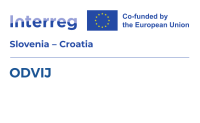
Project title: Revival of social traditions and values by the active engagement and cooperation of citizens on the local level
Project budget (ERDF co-financing): EUR 24.800,00
Project duration: 1.4.2025 – 30.9.2025
Project Partners: Turistično društvo Gornji Lakoš / Turisztikai egyesület Felsőlakos, Turistička zajednica općine Sveti Martin na Muri
The project addresses the common programme area challenge of strengthening the cultural and social connections and creating conditions for citizens involvement in the development of the cross-border community. We will encourage the building of trust and understanding between people by developing sense and appreciation for the common cultural heritage and environmental responsibility.
We will organize two full-day cross-border events (1 in Gornji Lakoš, 1 in Sveti Martin na Muri), where we will highlight traditional manual mowing and the preservation of meadows as a binding element. Meadows with rich flora and fauna are characteristic of both Pomurje and Međimurje, and traditional manual mowing is also deeply rooted in the cultural identity of the cross-border area. At both events, we will prepare a number of attractive activities that will encourage citizens across the border to get to know each other and socialize. We will perform a demonstration of traditional mowing, a mowing competition, an exhibition of old mowing tools and clothes and the traditions that accompanied mowing. In addition, we will present the importance of meadows for the preservation of the cross-border ecosystem. The experience of the participants will be enriched with a fair where we will offer local products, an entertaining quiz, culinary highlights (with an emphasis on the traditional mower meals) and a wide range of cultural performances.
We have planned all activities to enable citizens engagement. We have devoted considerable attention to intergenerational cooperation and knowledge transfer from the older to the younger generation, as well as the inclusion of vulnerable groups. By participating in the event, residents will gain an insight into the cultural and natural heritage of the cross-border area and the similarities and differences between the cultural elements of the two nations, which will strengthen their respect for diversity. Consequently, people’s awareness of the importance of cross-border cooperation will be strengthened, as this is essential for the preservation of cultural and natural identity and the development of the cross-border community.
Each of the cross-border events will be attended by at least 200 citizens from cross-border regions. At the events, we will prepare a program in duration of 20 hours and organize at least 18 cultural performances. We will ensure at least 25 local goods and services providers and the participation of at least 13 natural and cultural heritage experts (storytellers) and at least 10 demonstrators of traditional mowing. At least 40 mowers from both sides of the border will participate in the traditional mowing competition.
The ambition of TD Gornji Lakoš and TZO Sveti Martin na Muri is for the events to become a traditional gathering of citizens in the cross-border area.
Source: application form SIHR00564
 Project title: Football connects us
Project title: Football connects us
Project budget (ERDF co-financing): EUR 15.974,40
Project duration: 1.5.2025 – 31.10.2025
Project Partners: Nogometni klub Središče ob Dravi, Nogometni klub Nedelišće
The project partners are very active associations in the neighboring municipalities of Središče ob Dravi and Nedelišče, which are geographically right next to the border. Municipalities and the inhabitants of this area had in the past very good relations and cooperated a lot in the social, cultural, and sports fields. With the creation of the border, the bonds between the inhabitants were lost and there was less and less cooperation, which led to the fact that the inhabitants became distant from each other. Although physical borders have been removed in the recent past, the psychological barrier still exists. It is noticed that there is still little cooperation and integration between the inhabitants, even though the inhabitants are sympathetic to each other. For the inhabitants of this area, it is known that nationality was not a barrier to cooperation. There were also many ethnically mixed marriages in the past.
Football is the most popular sport in this area, so we want to use sport to connect or encourage young people in this area to cooperate and to create a social network. The target group will be primarily younger residents and athletes. In the project, we will use football as a tool for connecting young people, through which they will get to know each other and create friendships. Based on this, we will be able to build on greater cooperation between the residents of this area in the future.
Football club Središče and Football club Nedelišće have a long tradition of activity. NK Središče was founded in 1977, while NK Nedelišće was founded in 1946. Both clubs are very active in their activities and pay a lot of attention to younger selections of football players. In the past, the two clubs cooperated mainly with member teams, while there was no cooperation with younger selections. Now we would like to expand the cooperation or strengthen especially in the younger selections.
The project partners will hold two events, namely soccer camps for children, which will be led by professionals and qualified soccer coaches. The first camp will be in Središče ob Drava, where NK Središče will be the host, and a program has been prepared for the participants, which includes football training, social activities, getting to know nature and the landscape, and socializing of all participants in the project. The second camp will be in Nedelišće, where NK Nedelišće will be the host, and the program consists of a football part, which includes training sessions, a tour of the landscape, and an educational part with lectures for children and coaches. Each camp will last three days, and the last day will be dedicated to playing mixed teams, parents getting together, and various football-fun games. At least 80 children will participate in each camp, coming from both clubs in approximately the same ratio.
Source: application form SIHR00583
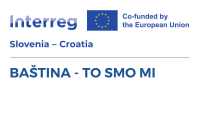 Project title: Cultural heritage unites us while the border separates us
Project title: Cultural heritage unites us while the border separates us
Project budget (ERDF co-financing): EUR 14,336.00
Project duration: 1.4.2025 – 30.9.2025
Project Partners: Kulturno-umjetnička udruga “Zvon” župne zajednice Mala Subotica, Turistično društvo Središče ob Dravi
The BAŠTINA – TO SMO MI (HERITAGE – THIS IS US) project includes project partners from Croatia and Slovenia, namely KUU Zvon from Mala Subotica (Međimurje County) and TD Središče ob Drava from Središče ob Dravi (Podravska region). At joint meetings of the partners and through mutual meetings in the project area, common territorial challenges were identified that will be mitigated by the project. Identified challenges include a significant decrease in fostering cross-border relations between related cultural associations in the border area, a lack of mutual cooperation, joint gatherings, guest appearances and performances between related cultural associations that have joint activities. The problem of lack of members of cultural associations and a significant decrease in interest in dealing with culture and passing on cultural heritage was also identified. The lack of inclusion of children and youth in cultural associations that encourage togetherness, cooperation, create new friendships and enable the acquisition of new knowledge and skills points to the challenge of social exclusion, i.e. to an increase in the number of children and youth who are at risk of social exclusion. A challenge that has also been identified is the lack of practical skills among children and young people, i.e. the lack of children engaged in making handicrafts, handicrafts, etc. Practical skills have been replaced by digital tools such as mobile phones, tablets and computers, and children and young people are increasingly turning to acquiring digital skill at the expense of practical manual skills.
Based on the identified challenges, the main goal of the project was defined, which will strengthen the local population’s awareness of the importance of preserving and promoting the intangible cultural heritage that constitutes the fundamental identity of the project area – Međimurje County and Podravka Region. The goal will be achieved by organizing two joint bilateral workshops for the local population, with an emphasis on children and young people, who through an innovative approach to heritage protection will acquire new skills and knowledge while socializing, exchanging experiences and strengthening cross-border ties and trust.
In addition to the main goal, the specific goal of the project is also linked, which is to strengthen cross-border ties, encourage socializing and cooperation between organizations and involved participants, with an emphasis on children and young people and marginalized groups, in order to contribute through social interactions to increasing the social inclusion of the population and increasing quality of life. Co-learning activities will ensure future collaboration and create a foundation for the development of future projects and initiatives.
The main outcomes of the project imply the establishment of cross-border cooperation between two organizations that will jointly contribute to the implementation of the project. The outcome also implies the implementation of joint cross-border events, and the project will organize two bilateral workshops in the cross-border area in which the local population from Croatia and Slovenia will be involved. Related to the outcomes, the main result of the project will be achieved, which involves the organization of bilateral events using an integrated, joint approach of partners to encourage the involvement of the local population.
When implementing the project, the partners will use an interdisciplinary and integrated approach and will approach the implementation of project activities jointly, with continuous communication and ensuring visibility. It is the cross-border cooperation that will contribute to the exchange of best practices, and through the past experiences of the partners and the acquired knowledge, the challenges that have been identified in the entire project area will be solved, regardless of the borders of the country. When solving the identified challenges, innovative approaches will be used in the transfer of knowledge and examples of good practice at the local level, which include the implementation of interactive workshops for children and young people and marginalized groups with the use of different, modern tools and the principle of a circular approach when conducting workshops.
Source: application form SIHR00616
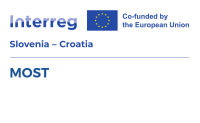 Project title: BlueSitula
Project title: BlueSitula
Project budget (ERDF co-financing): EUR 24,800.00
Project duration: 1.6.2025 – 31.5.2026
Project Partners: ZAVOD SITULA – Zavod DNŠ za varovanje kulturne dediščine, turizem in kulturo, Turistička zajednica Grada Crikvenice
The ModraSitula project addresses the common challenge of raising awareness and preserving and linking the cultural and gastronomic heritage of the cross-border regions of Novo mesto, Slovenia, and Crikvenica, Croatia, by linking the cultural and characteristic features of both areas. The partners Situla Institute and Turistička zajednica Grad Crikvenica are joining forces to address the problem of ignorance of the rich heritage and material of the bridges (MoOdraSiTula) – MOST) among the inhabitants of the border area. The ModraSitula project, which will organise two cross-border events, will make an important contribution to building mutual trust, creating lasting ties and promoting cooperation in the cultural, gastronomic and other fields.
The overall objective of the ModraSitula project is to raise awareness of the cultural characteristics, traditions and gastronomic specialities of both regions through events in Novo mesto and Crikvenica. Participants, including cultural and artistic associations, chefs and craftsmen, will present the diversity of heritage through song, dance, culinary delights, folklore and handicrafts. The events will not only be a cultural event, but an important opportunity to build lasting links, promote cooperation between local communities and individuals, and strengthen the tourism and economic potential of both areas.
Cross-border cooperation is key to achieving these objectives, as it is the only way for the inhabitants of the two regions to get to know the uniqueness and similarities of the cross-border area. Without this link, each side would focus on local issues, while cross-border cooperation allows for the interweaving of different perspectives and promotes the search for common opportunities. The two events will thus become an opportunity to disseminate knowledge, strengthen cultural values and build lasting friendships between residents.
The project also brings other benefits. Our approach raises awareness about the importance of healthy eating, in particular the inclusion of blue fish in the diet. The events will focus on presentations of important topics in the cross-border region – the characteristics and specificities of blue fish will be presented in Novo mesto, and the cultural richness of Novo mesto, based on the situla, will be presented in Crikvenica.
The challenge is also posed by the decline of town centres, so the project not only revitalises town centres, but also establishes links between the inhabitants and the providers of the cross-border region. The events will also be an excellent opportunity to learn foreign languages, especially among young people, and to promote inter-country cooperation. The ModraSitula project is thus not limited to cultural and gastronomic educational events, but also opens the door to strengthening links, raising awareness and economic opportunities in the cross-border area.
The cooperation between Situla and the Tourist Board of Crikvenica Castle brings a wealth of experience and knowledge that complement each other perfectly. Both partners will contribute to the design and implementation of event programmes, work together on promotion and engage with local communities. The involvement of local stakeholders such as food providers, artisans and others will ensure the sustainability of the project and broader community support. The evaluation of the project through regular monitoring, surveillance and impact analysis will allow for adjustments and identification of improvements for future projects.
Source: application form SIHR00638
 Project title: Connected through reading
Project title: Connected through reading
Project budget (ERDF co-financing): EUR 15,974.40
Project duration: 1.4.2025 – 31.12.2025
Project Partners: Knjižnica Mirana Jarca Novo mesto, Gradska knjižnica »Ivan Goran Kovačić«
The project “Connected through reading” with the acronym “Re(ad)Connected” invites young people into the world of words, which, by intertwining generations, cultures and perspectives, opens the door to mutual understanding through reading experiences.
With the project, we are addressing several cross-border territorial challenges, among which stand out the lack of cross-border social ties, difficult access to cultural content due to the geographical distance of the area in question from major centers, the insufficient level of reading literacy among children and young people and the gradual loss of national identity, which observed in the Slovene national minority in Croatia and Croats living on Slovenian territory.
The general goal of the “Re(ad)Connected” project is to encourage young people from the cross-border area to discover the rich world of reading culture, and at the same time, by participating in a culturally colored event, offer them the opportunity to strengthen mutual trust and forge new ties. With the project, we also want to strengthen the cooperation between the two project partners and create opportunities for new stories, which will strengthen the connection of the cross-border community.
The result of the project will be a cross-border collaboration between two organizations that will jointly design and implement two cultural physical events, one in each country. By holding events, one of which will be aimed at pre-school children and the other at primary school children, we will strengthen mutual trust and connection of young people in the cross-border area while learning about cultural content, and at the same time contribute to increasing reading literacy, which is a prerequisite for the development of individual potential and successful participation in to society.
The main target group that will benefit from the project are children from local kindergartens and primary schools, including members of the Slovenian national minority in Croatia and Croats living on Slovenian territory. Libraries and librarians, including project partners, will also benefit.
The need for cross-border cooperation arises from the identified cross-border challenges, which can only be dealt with comprehensively through the cooperation of both countries. This means combining professional knowledge and experience, which enables more effective problem solving and the creation of sustainable changes in the cross-border area. Cross-border cooperation brings a synergy of different perspectives, approaches and innovative solutions that will strengthen the positive impact of the project on local communities and create long-term social and cultural progress.
The project represents an innovative approach to cultural education, as it goes beyond the traditional framework of library activities and introduces a fresh and interactive way of promoting reading literacy and intercultural understanding among young people in the cross-border area.
Source: application form SIHR00660
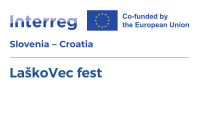 Project title: Re-establishing relations between the municipality of Laško and the town of Vrbovec through the organization of two cross-border gastro-cultural events
Project title: Re-establishing relations between the municipality of Laško and the town of Vrbovec through the organization of two cross-border gastro-cultural events
Project budget (ERDF co-financing): EUR 24,800.00
Project duration: 1.4.2025 – 31.10.2025
Project Partners: Grad Vrbovec, Občina Laško, STIK – Center za šport, turizem, informiranje in kulturo Laško
The LaškoVec fest Project – Reestablishment of relations between the Municipality of Laško and the City of Vrbovec through the organization of two cross-border gastro-cultural events will be implemented by three project partners from Croatia and Slovenia: the City of Vrbovec (HR), the Municipality of Laško (SLO), and STIK – Center for Sport, Tourism, Information, and Culture Laško (SLO), in collaboration with local associations from both regions. The project’s duration will be 6 months.
Shared challenge of the program area, that LaškoVec fest project addresses through cross-border cooperation, focuses on revitalizing and strengthening the connections between the Municipality of Laško and the City of Vrbovec. This challenge arises from the long-term neglect of cultural and social ties, resulting in the need to reestablish these connections and build trust among the local populations of both areas. The main objective of this project is to reconnect these communities through the organization of two cross-border cultural-gastronomic events. The expected outcome is a tangible change in relations between these local communities, including renewed friendships, stronger cultural ties, and the foundation for future collaboration.
The main outcomes of this project include the revitalization of cultural connections between Laško and Vrbovec, the strengthening of cross-border relations among the populations, the encouragement of understanding and cultural exchange between the two regions, and the promotion of collaboration between cultural associations. The beneficiaries of these outcomes will be the local population, cultural organizations, the gastronomic scene, and the tourist boards of both areas. The approach involves organizing meetings between members of the cultural association Laška pihalna godba (LPG) and the Brass Band and Majorettes Vrbovec (LGMV). Through shared activities such as cooking, exchanging musical and dance experiences, and socializing, this approach aims to foster mutual connections and build lasting relationships among the members of both groups. Cross-border cooperation is crucial, enabling the utilization of cultural similarities and diversities of both regions to create a rich and innovative event.
Innovation in this project is the combination of cultural and gastronomic elements through the organization of meetings and activities that encourage dialogue, collaboration, and the creation of shared experiences. This approach ensures that the project not only represents the renewal of connections but also the creation of new, innovative platforms for mutual connection and exchange between Laško and Vrbovec.
Source: application form SIHR00684
Guidelines for Beneficiaries
National control guidlines
Programme templates
In order to properly follow the visibility requirements, the Project Partners also have to publicly display at least one poster of a minimum size A3 or equivalent electronic display (at Project Partner locations) to highlight the support from Interreg.
Other guidlines
Infographics
Summary of Funded Projects
Total projects: 16
Total ERDF amount awarded to projects: €16.75 M
Beneficiary information
Beneficiaries in Slovenia
Beneficiaries in Croatia
Specific Objectives
Number of projects by specific objectives



